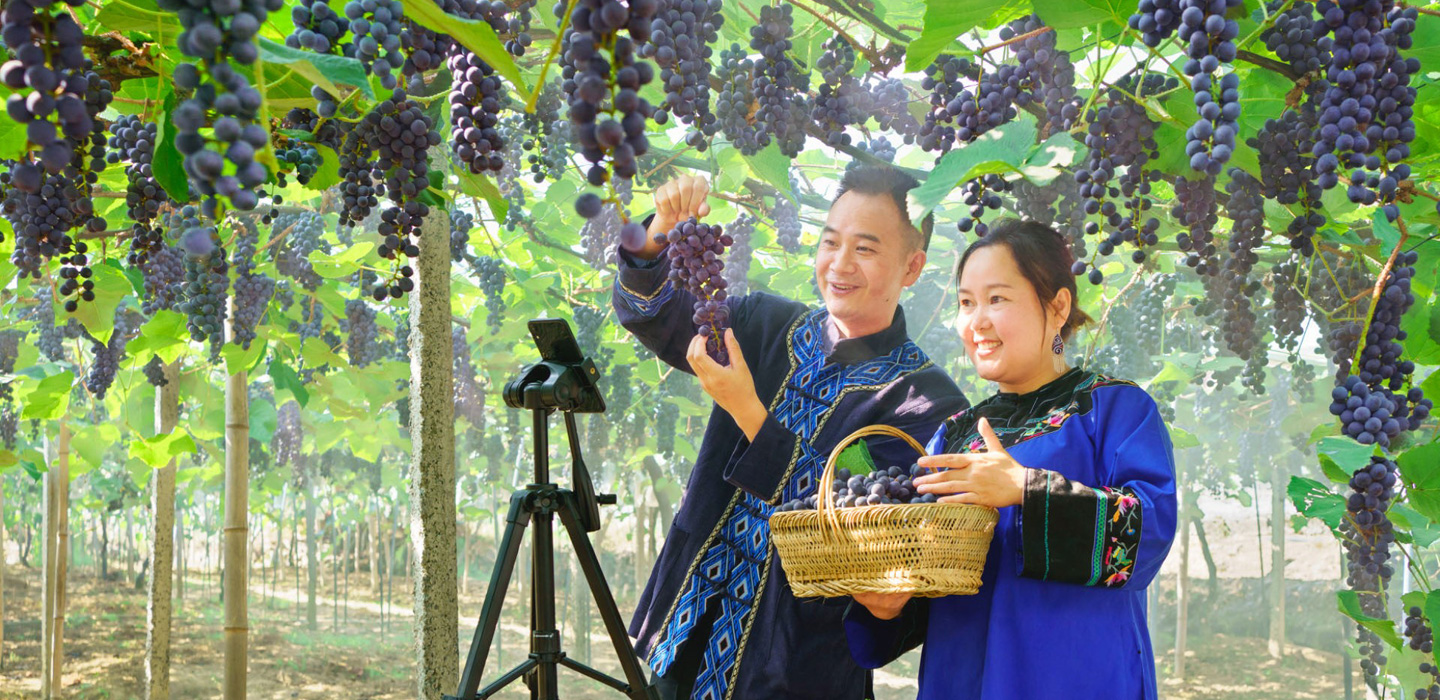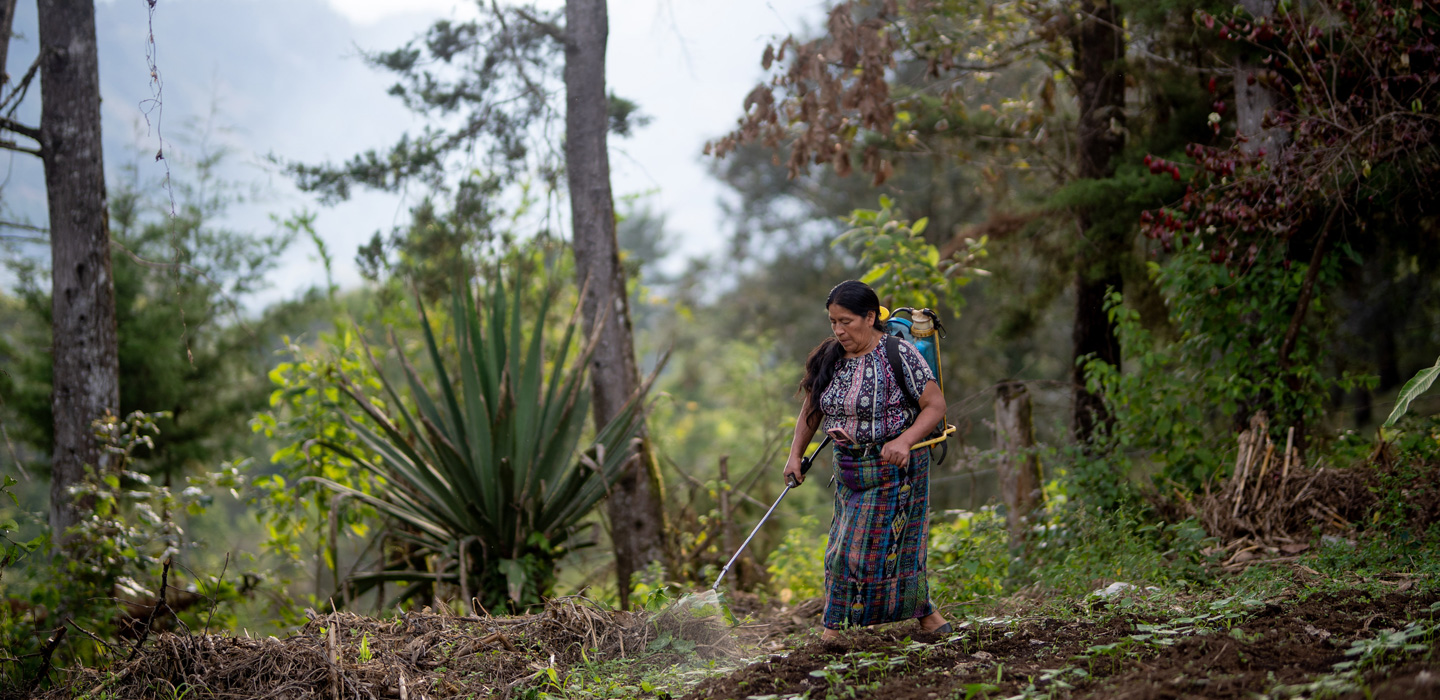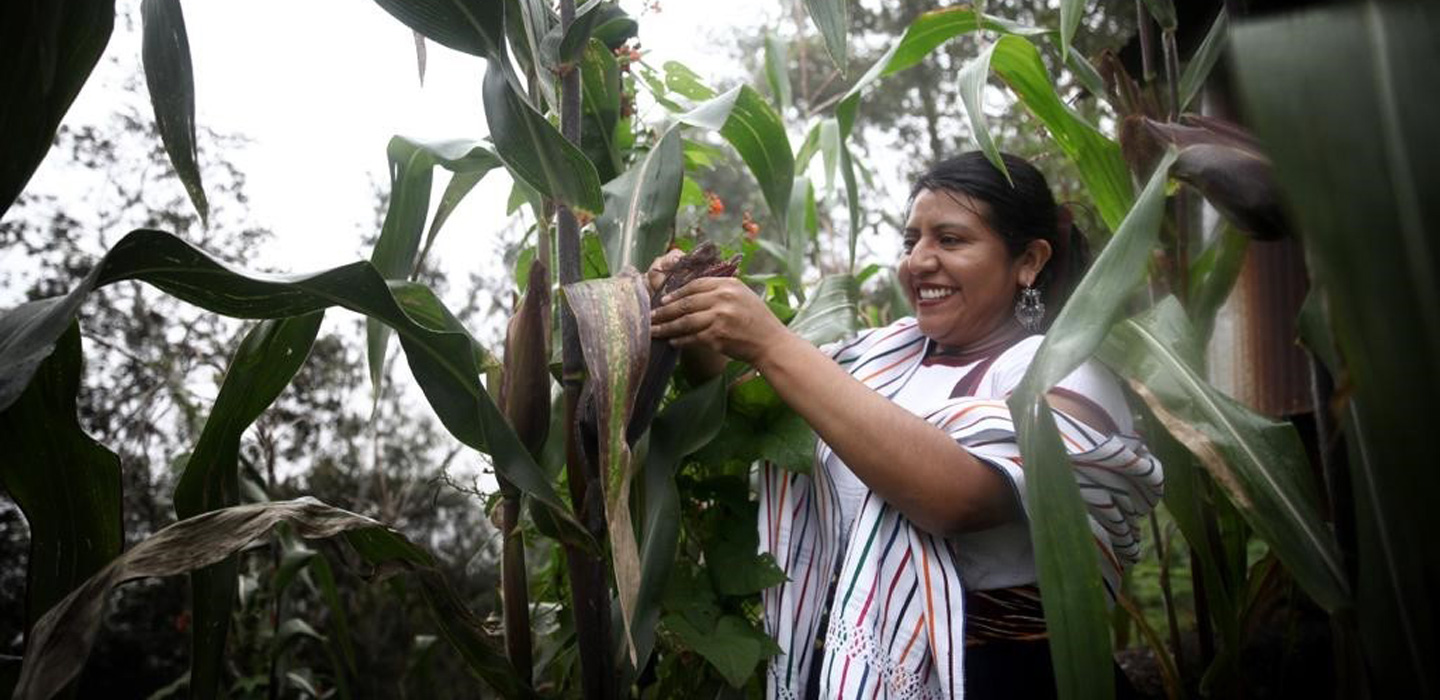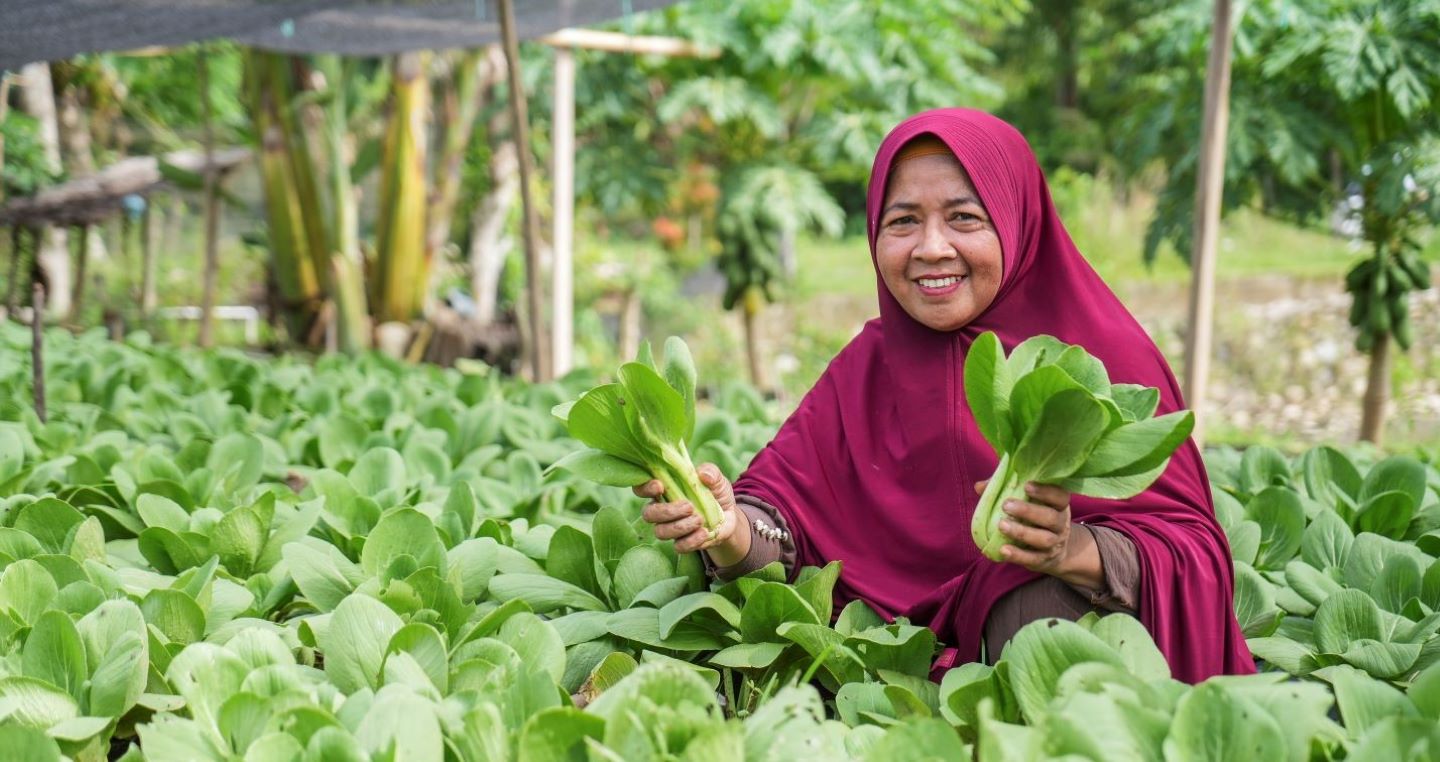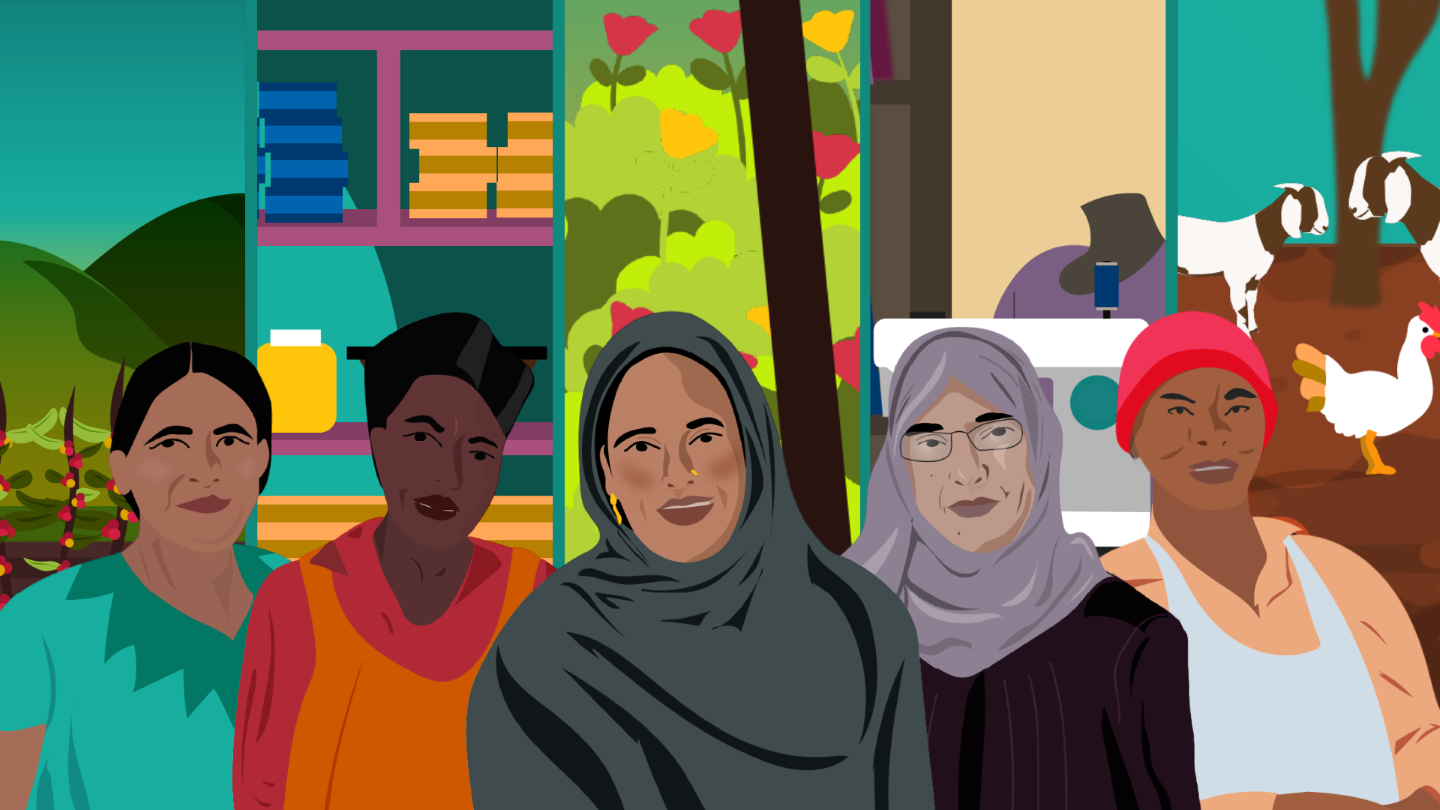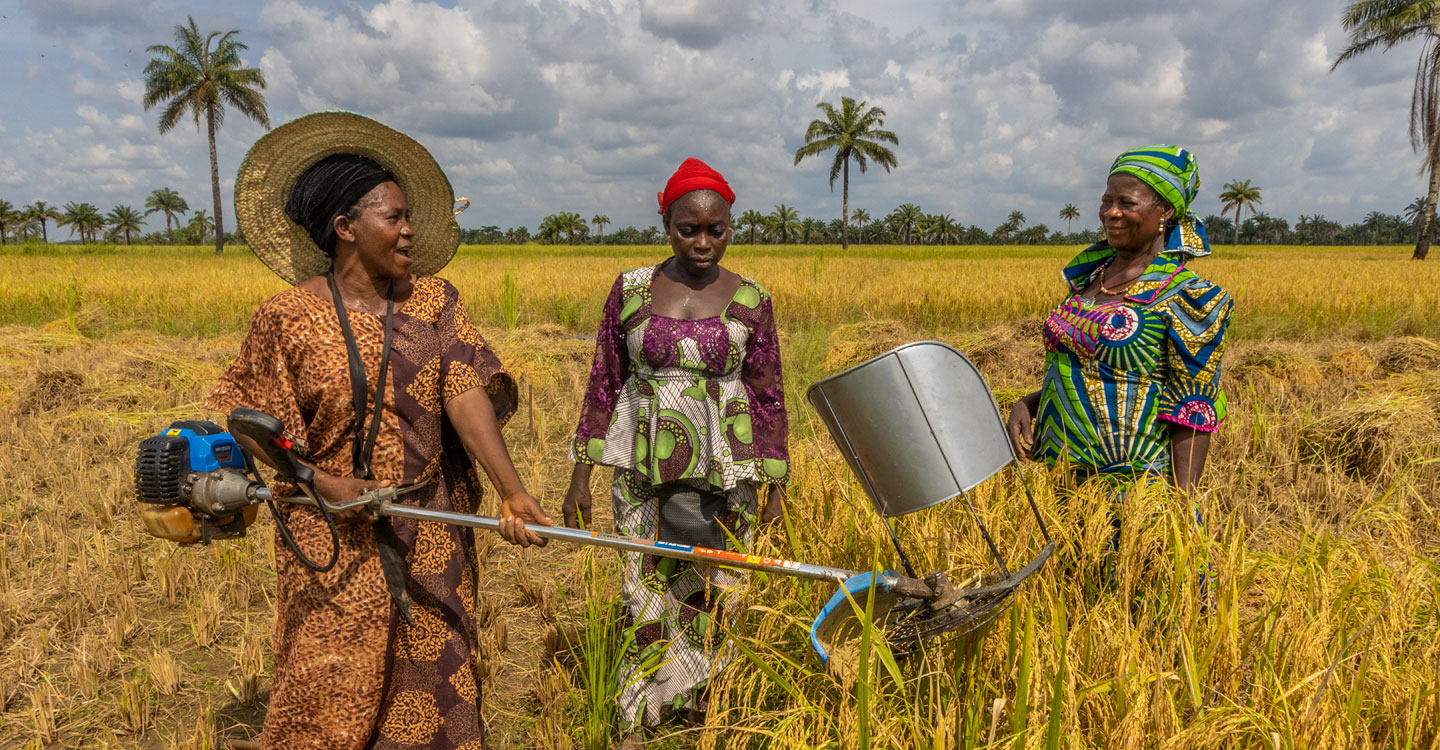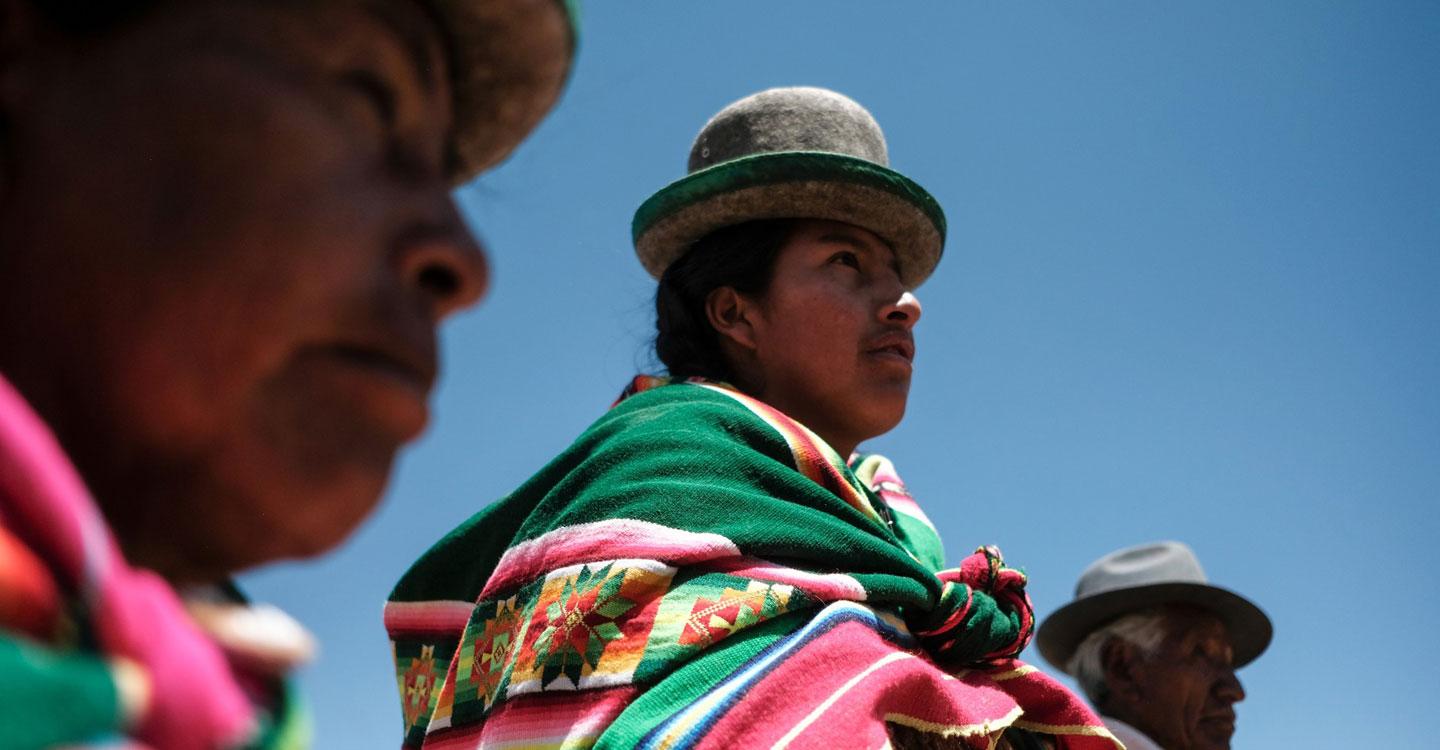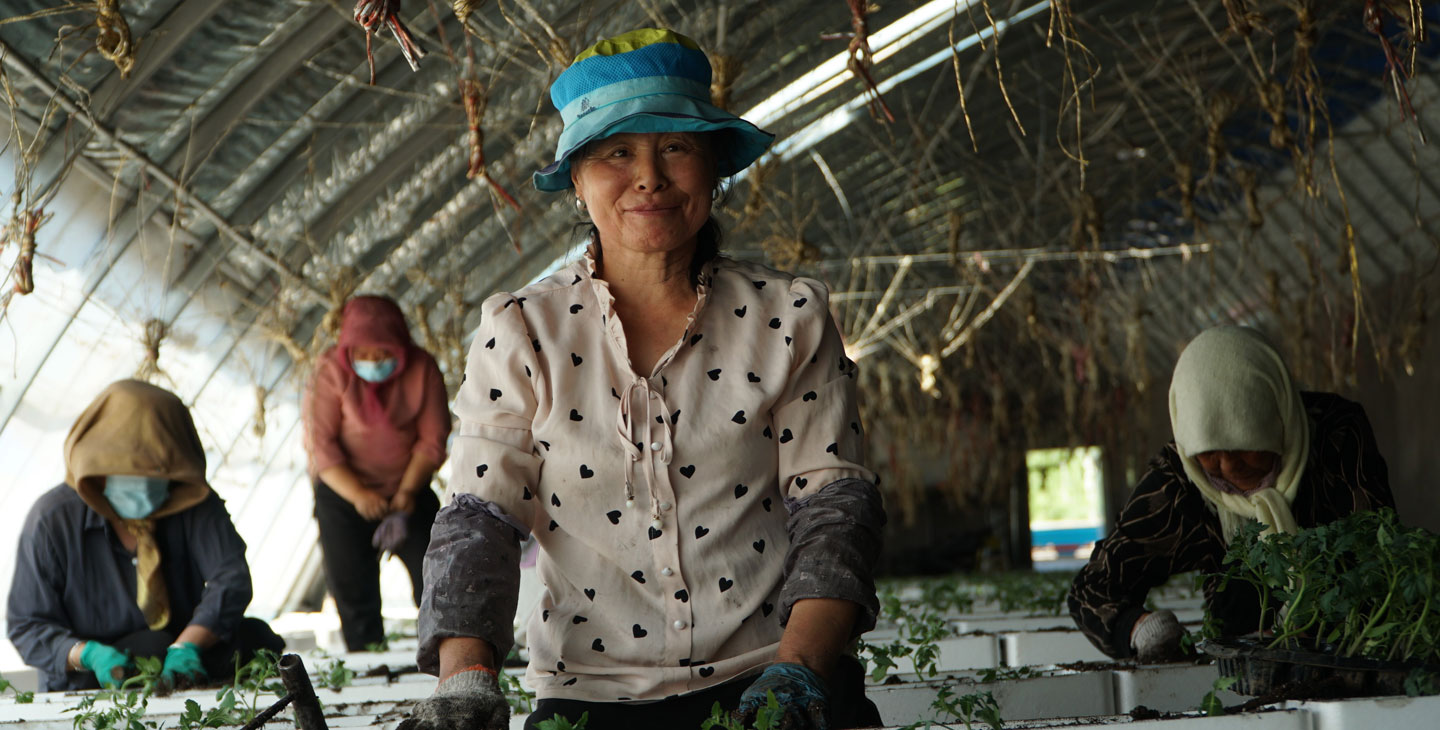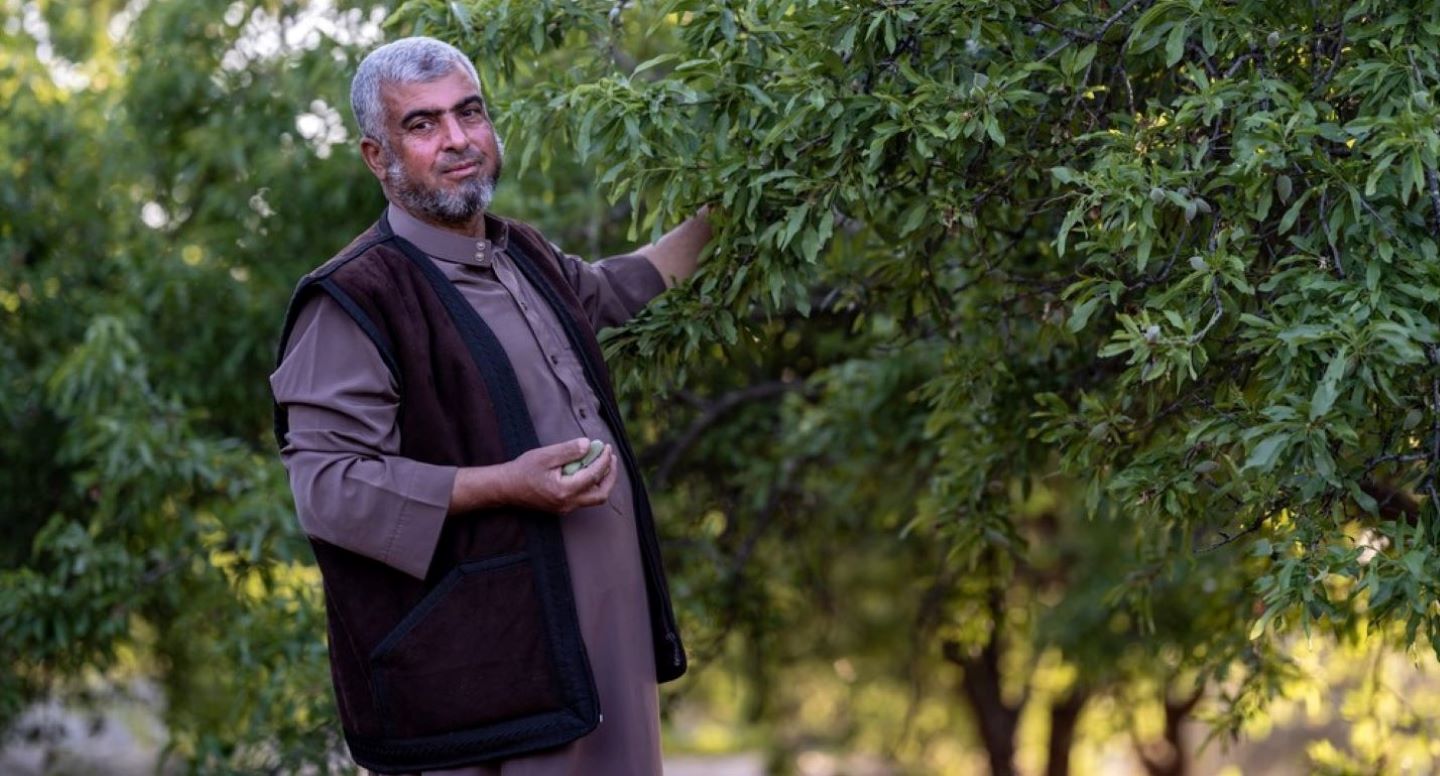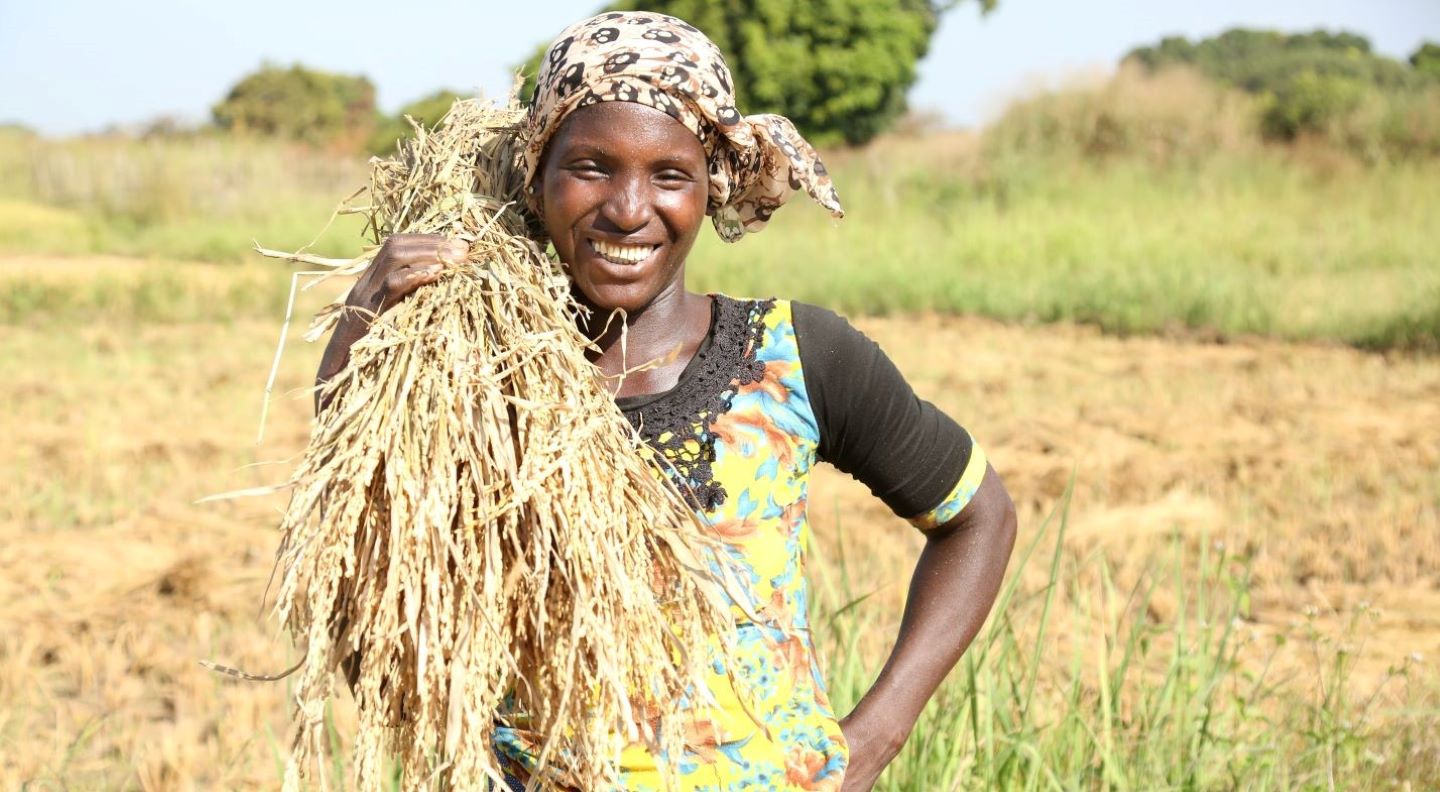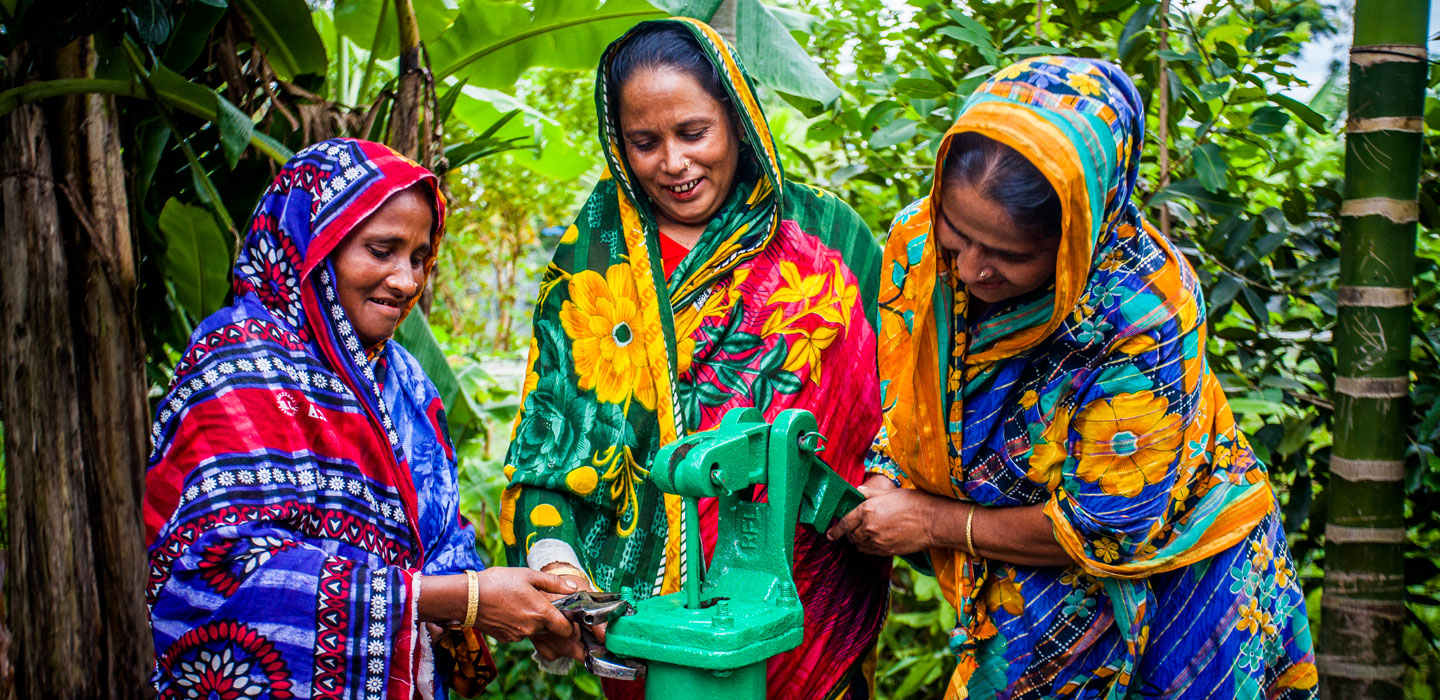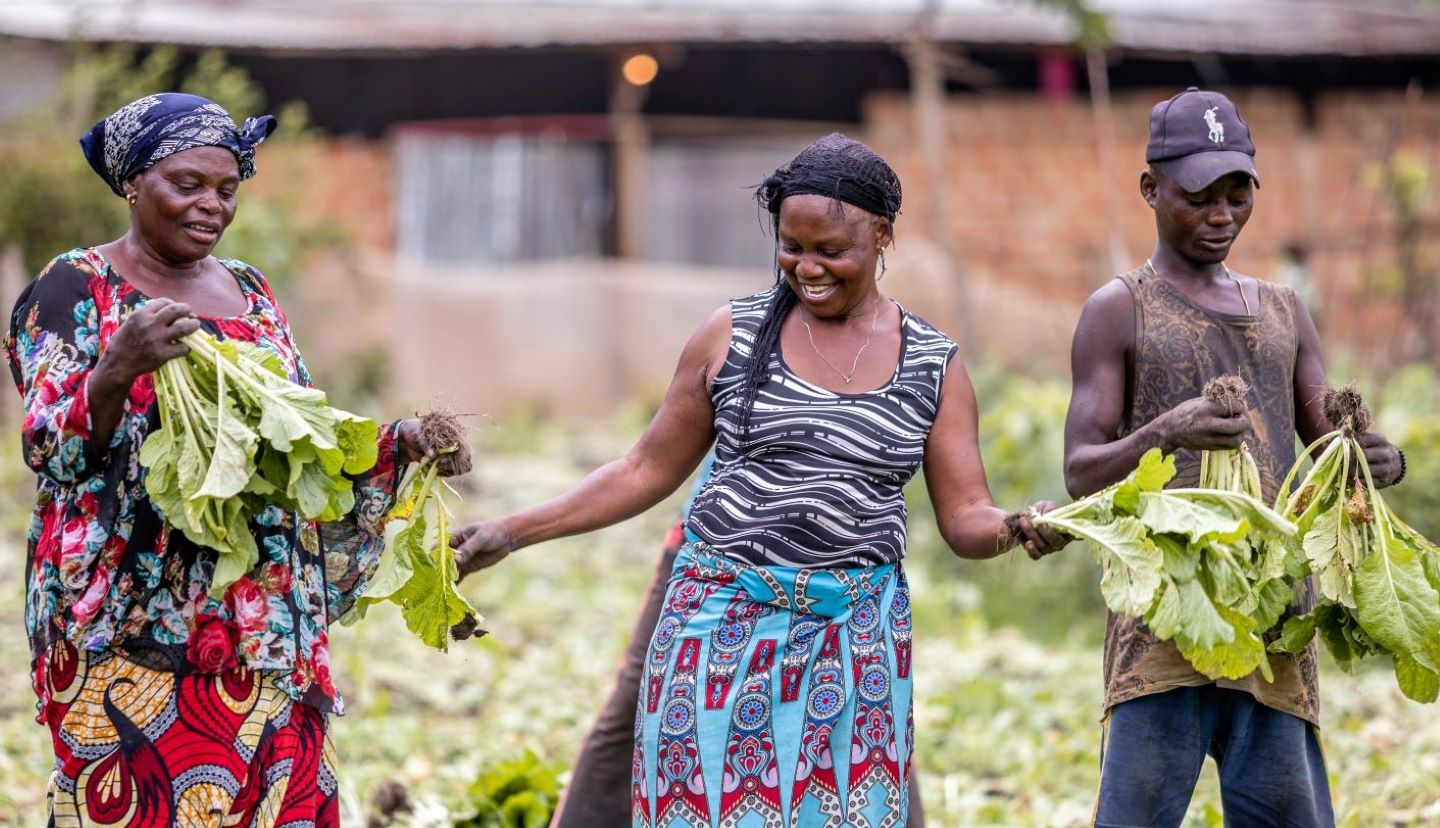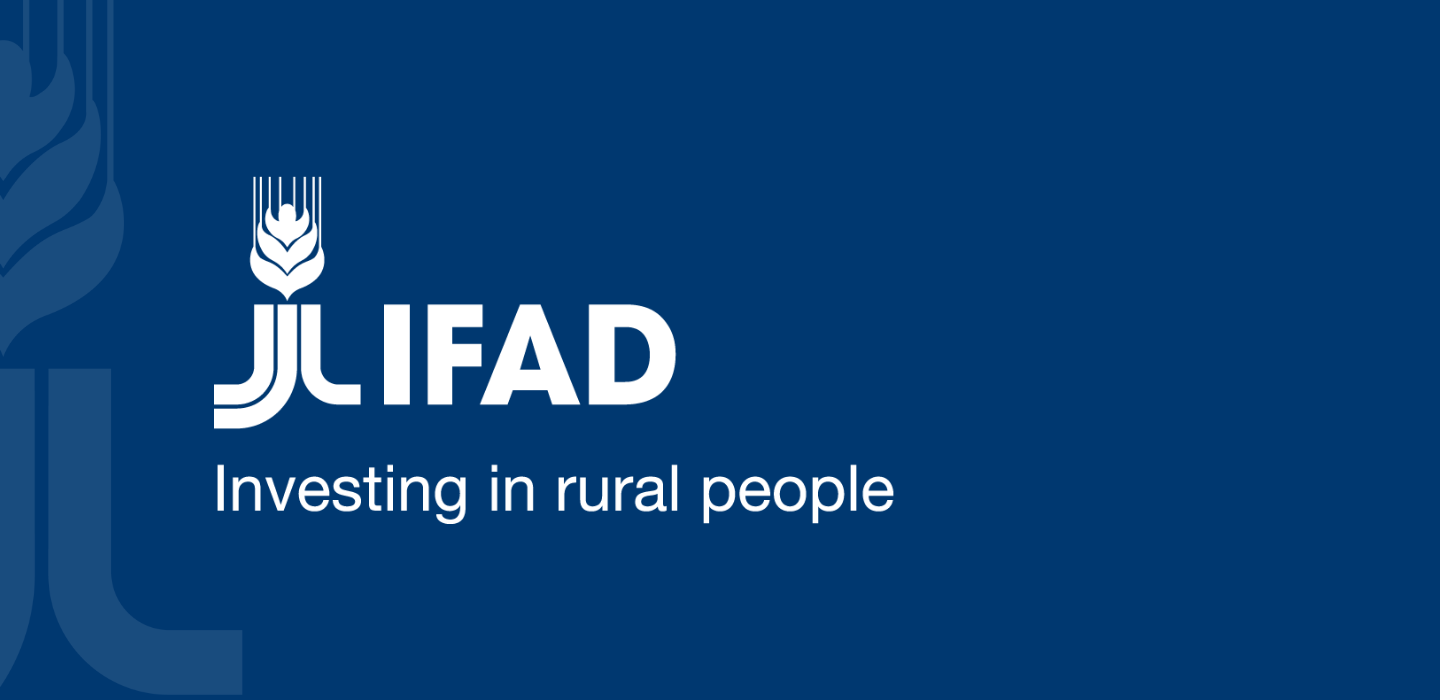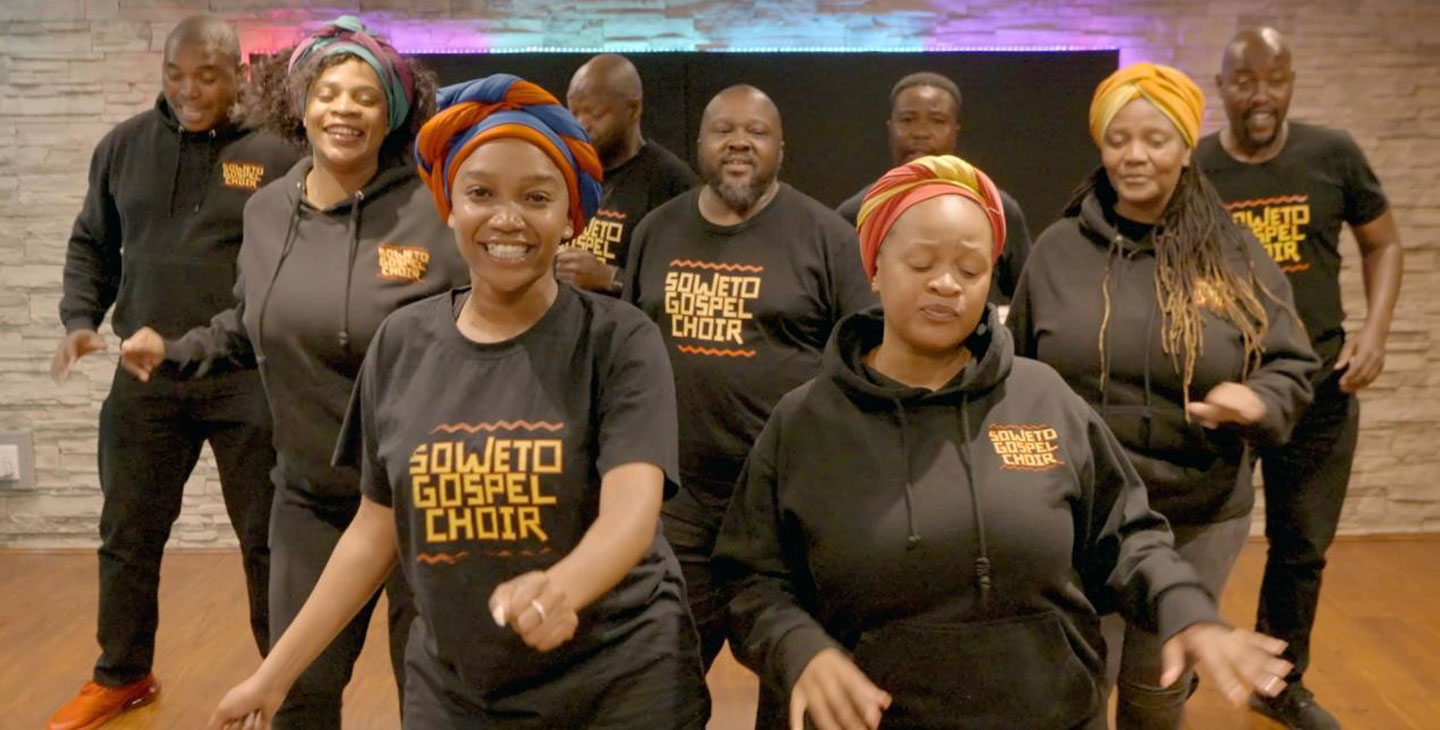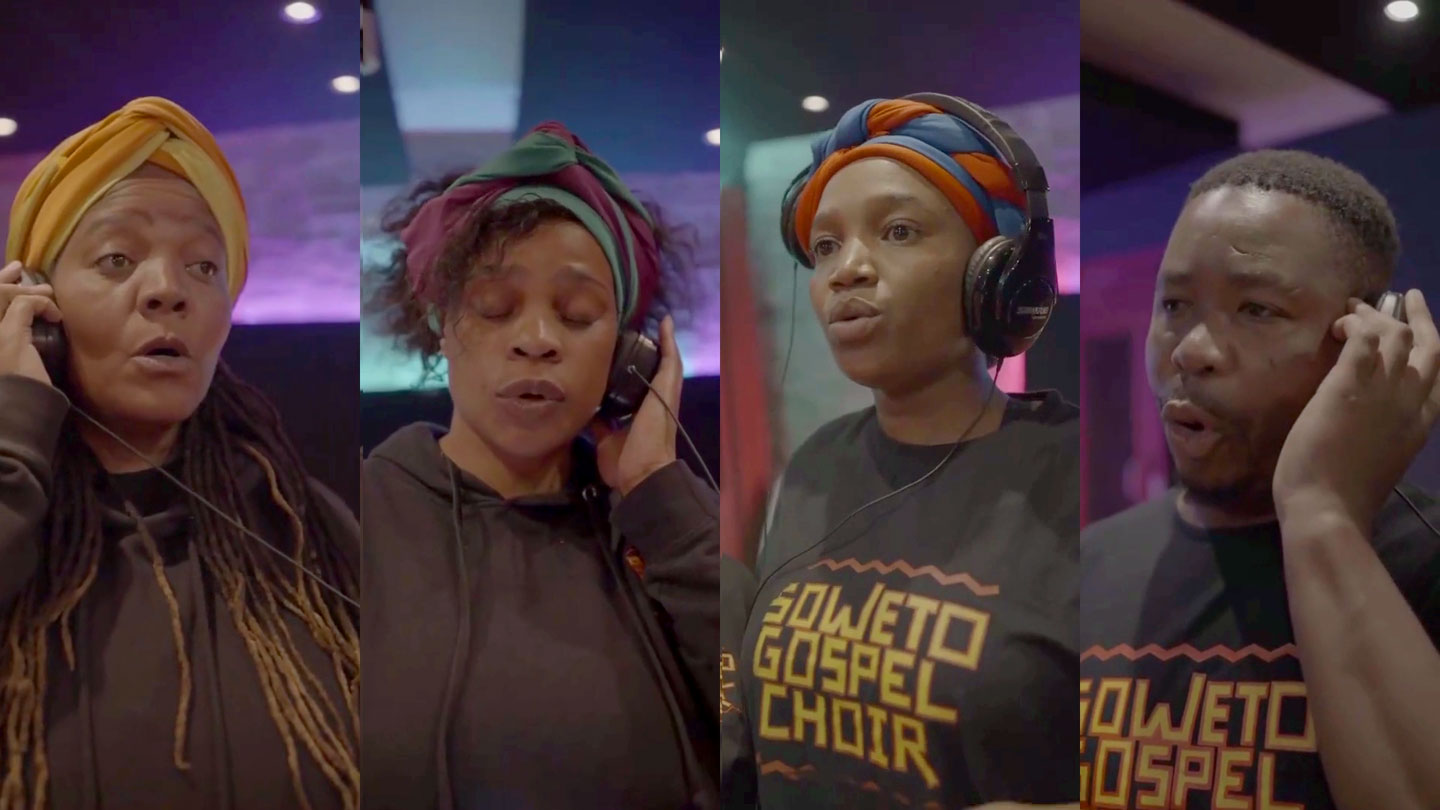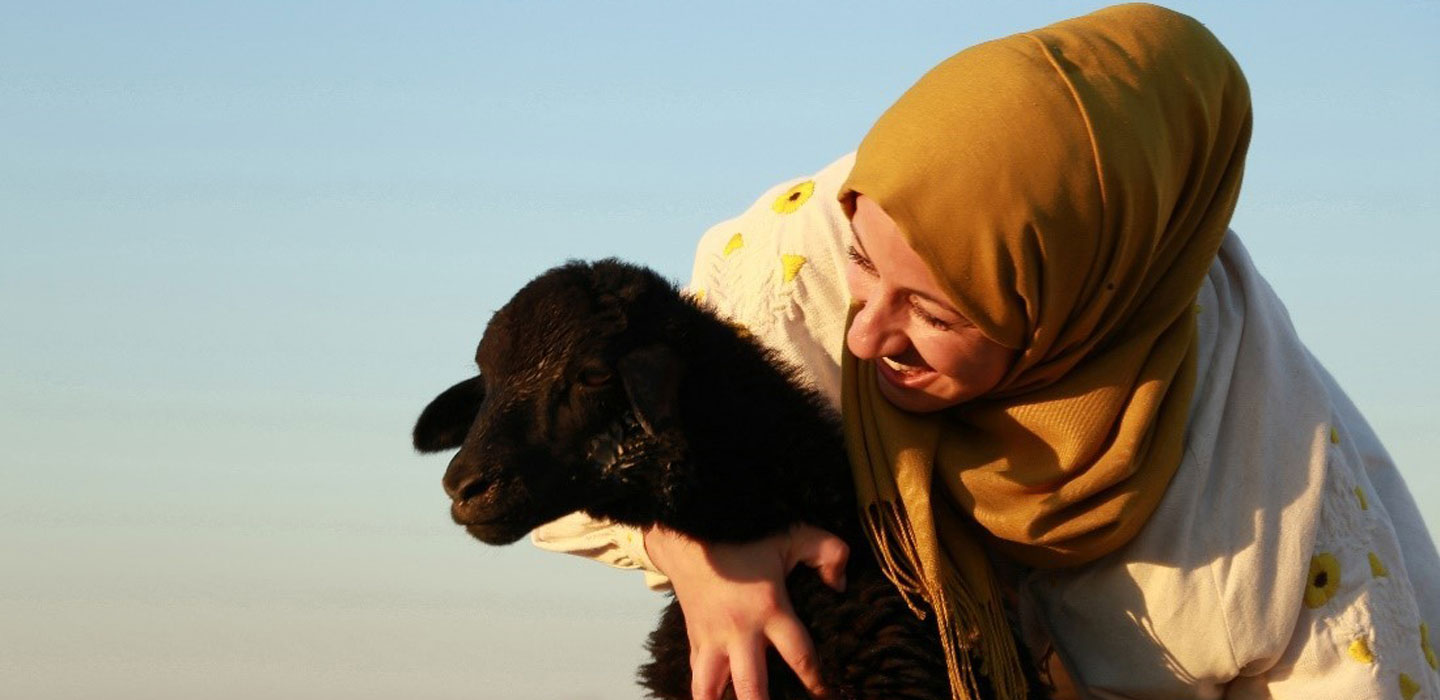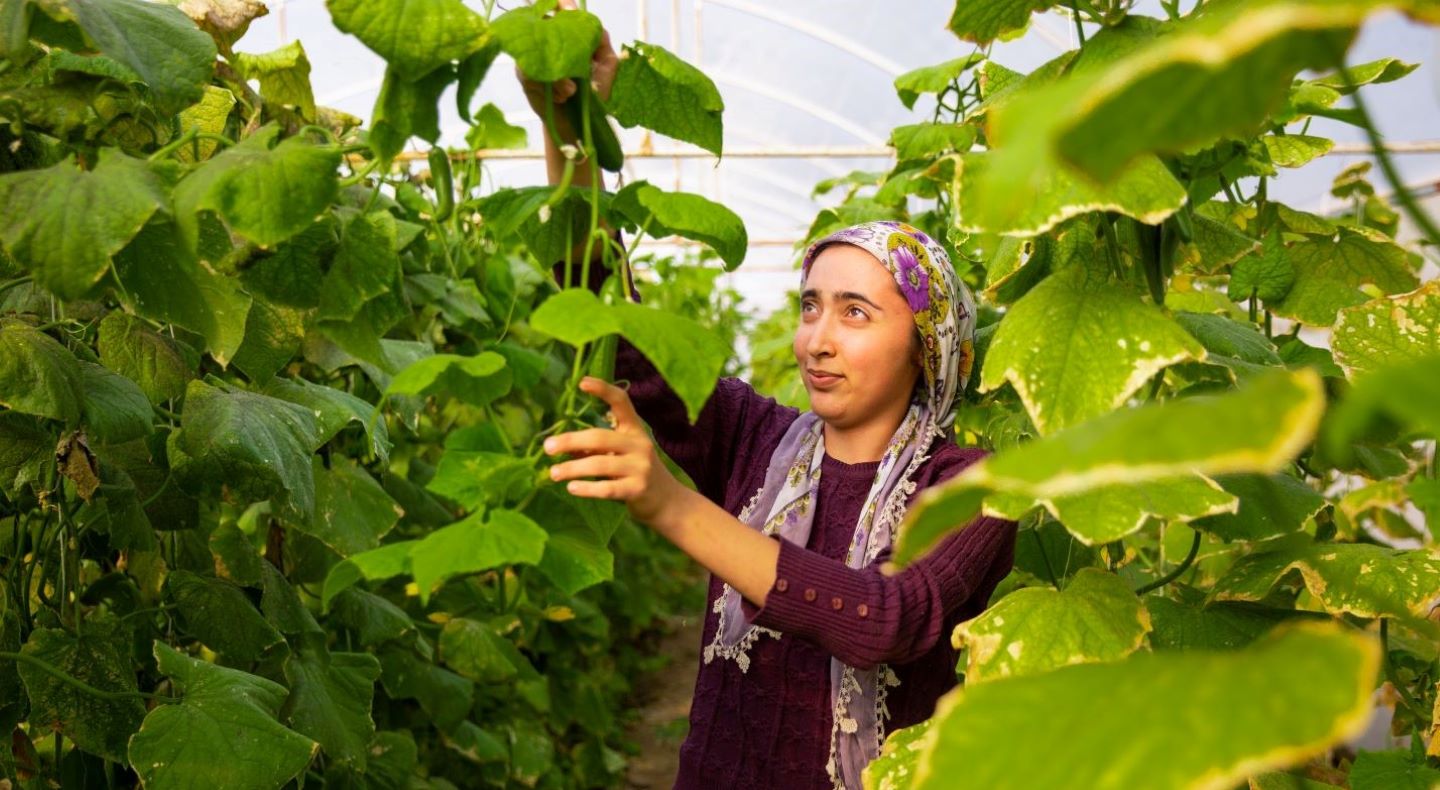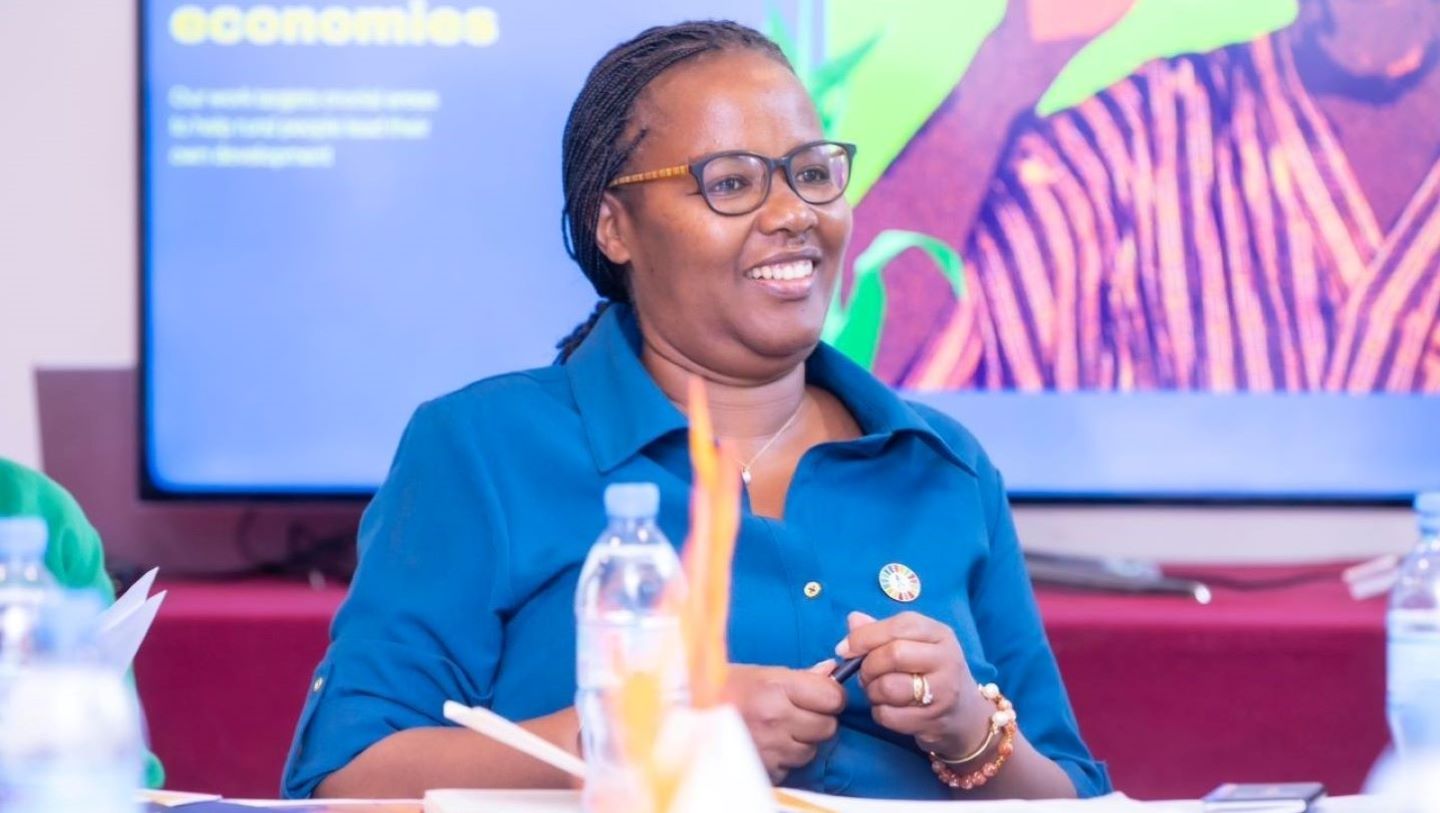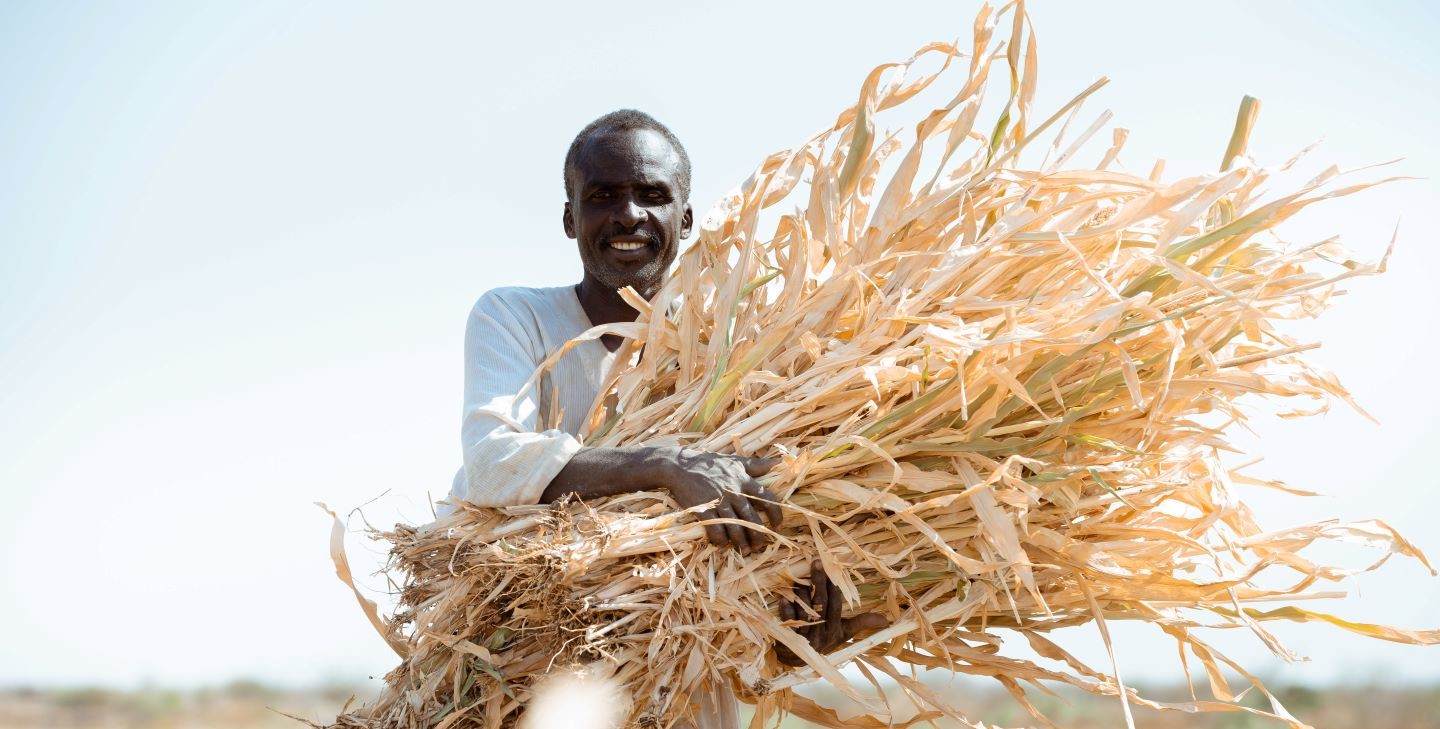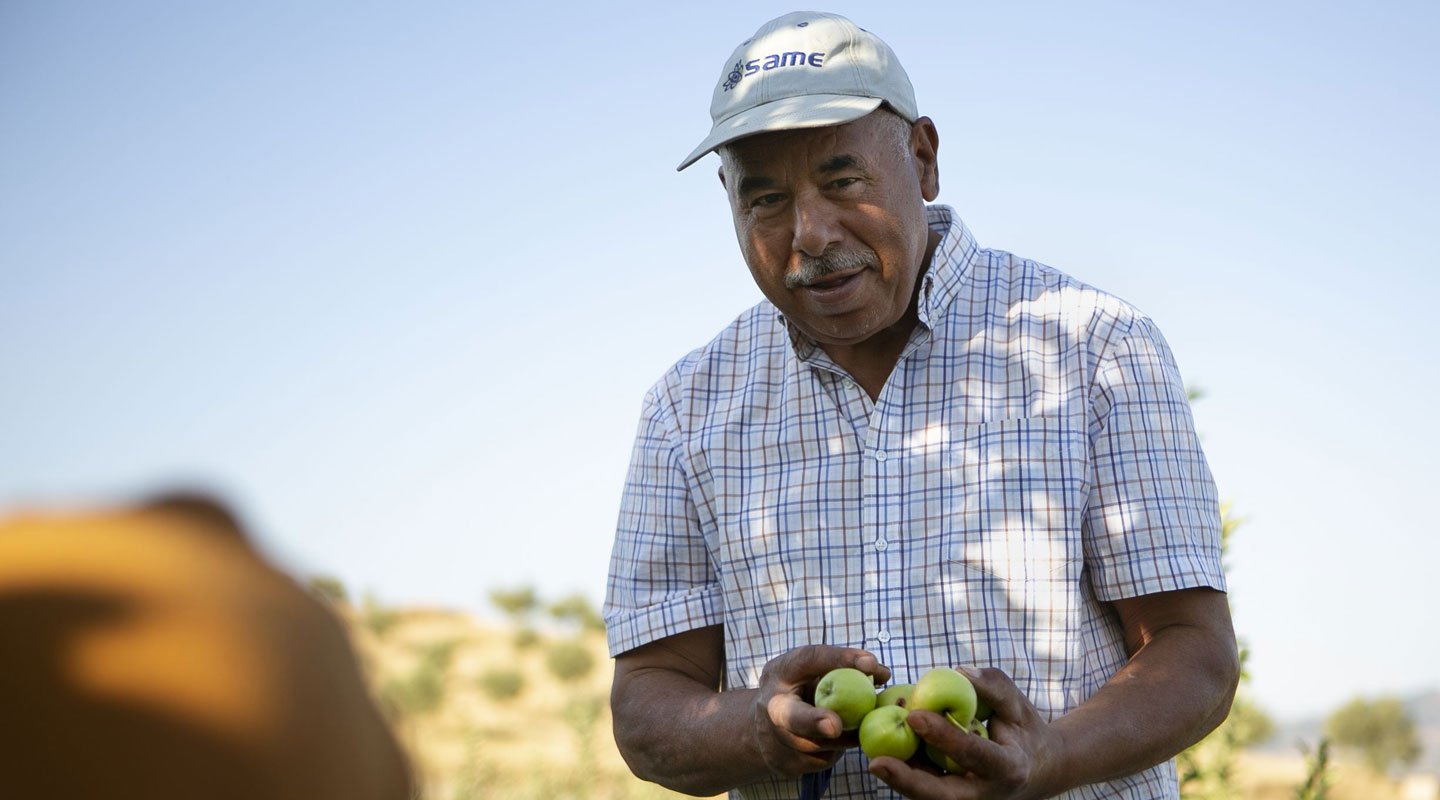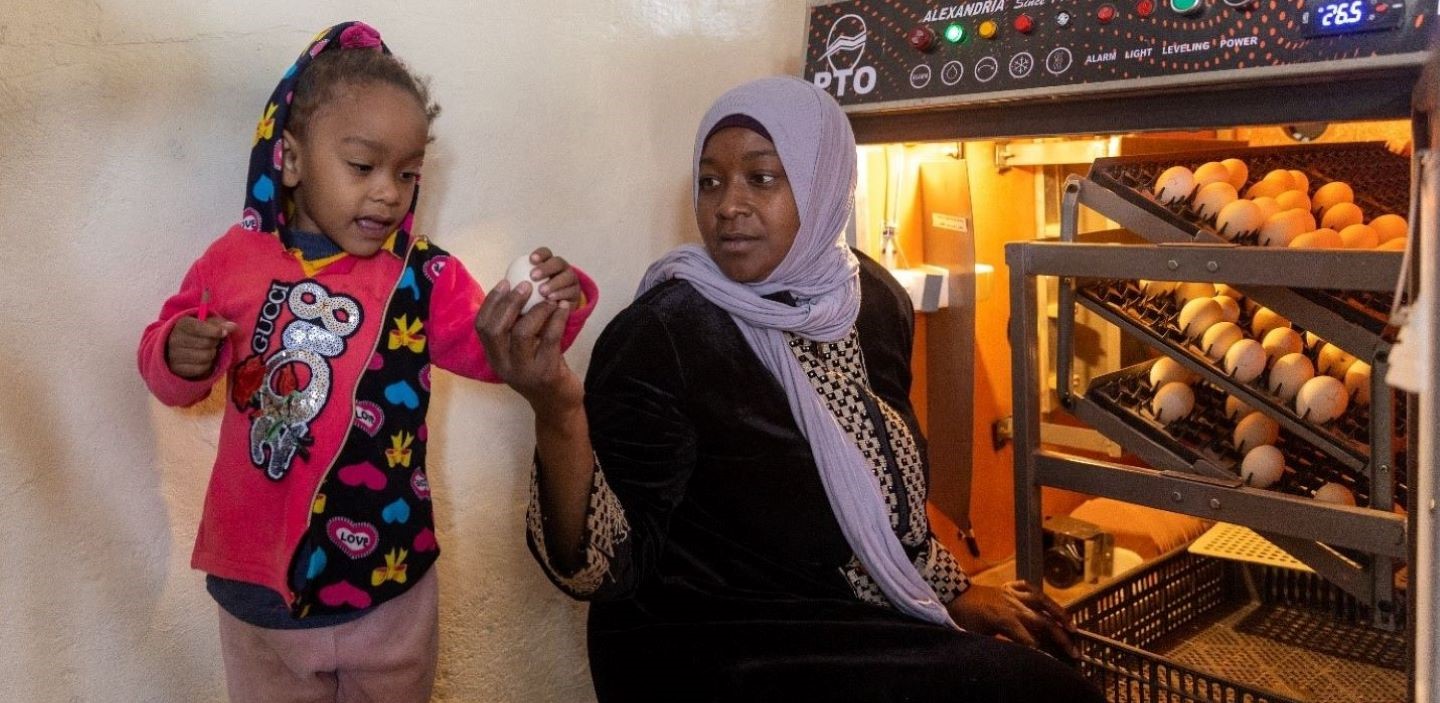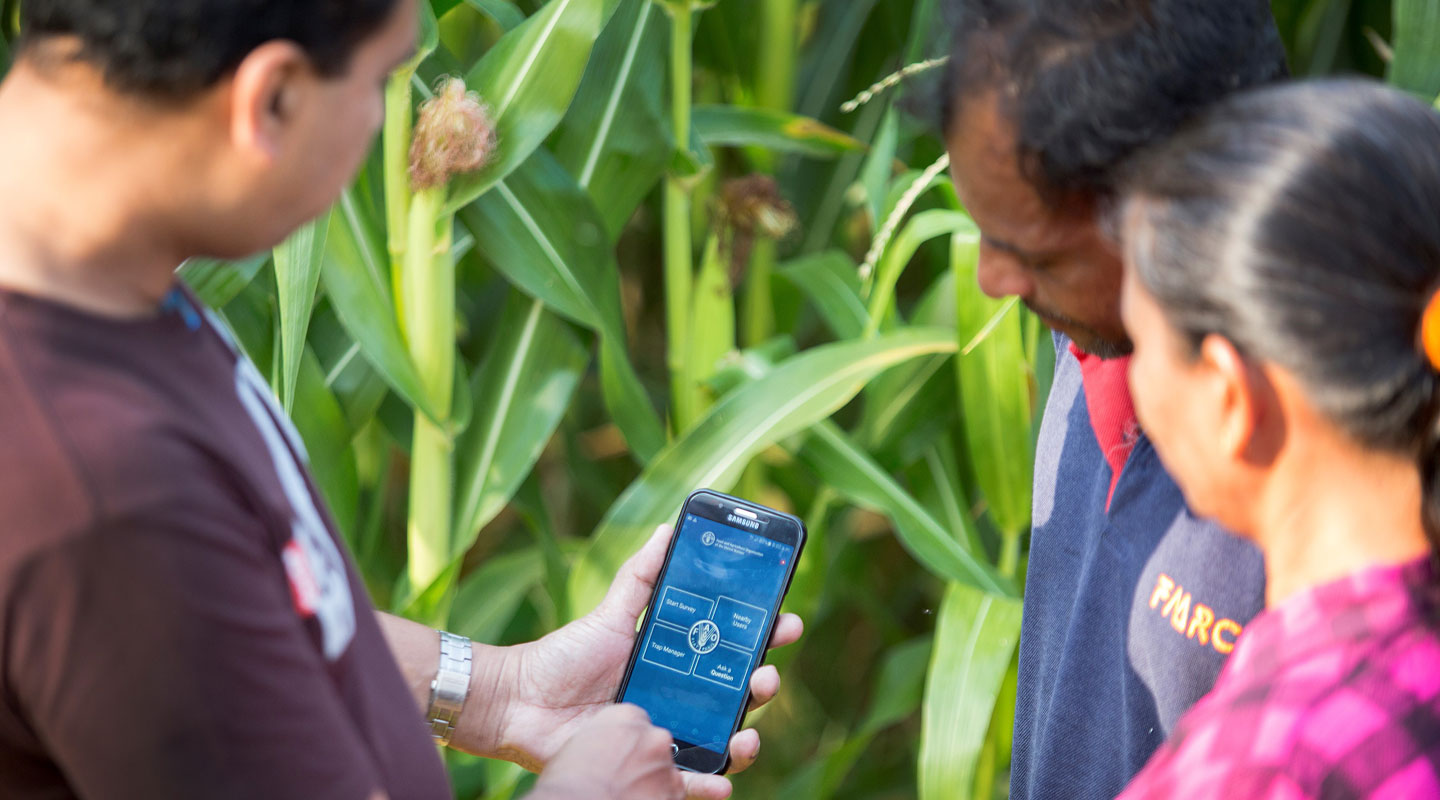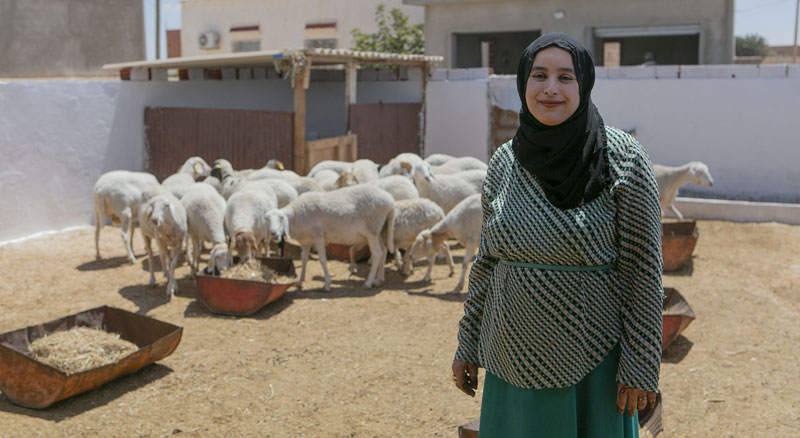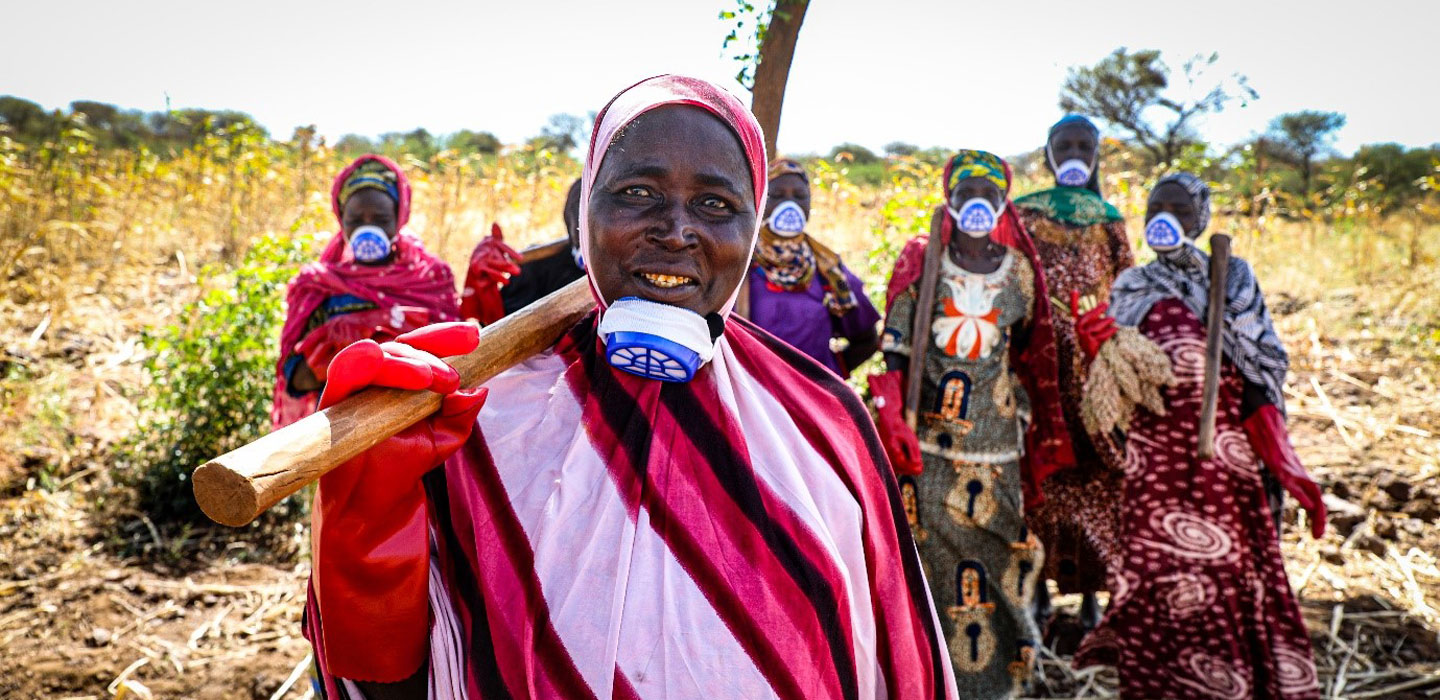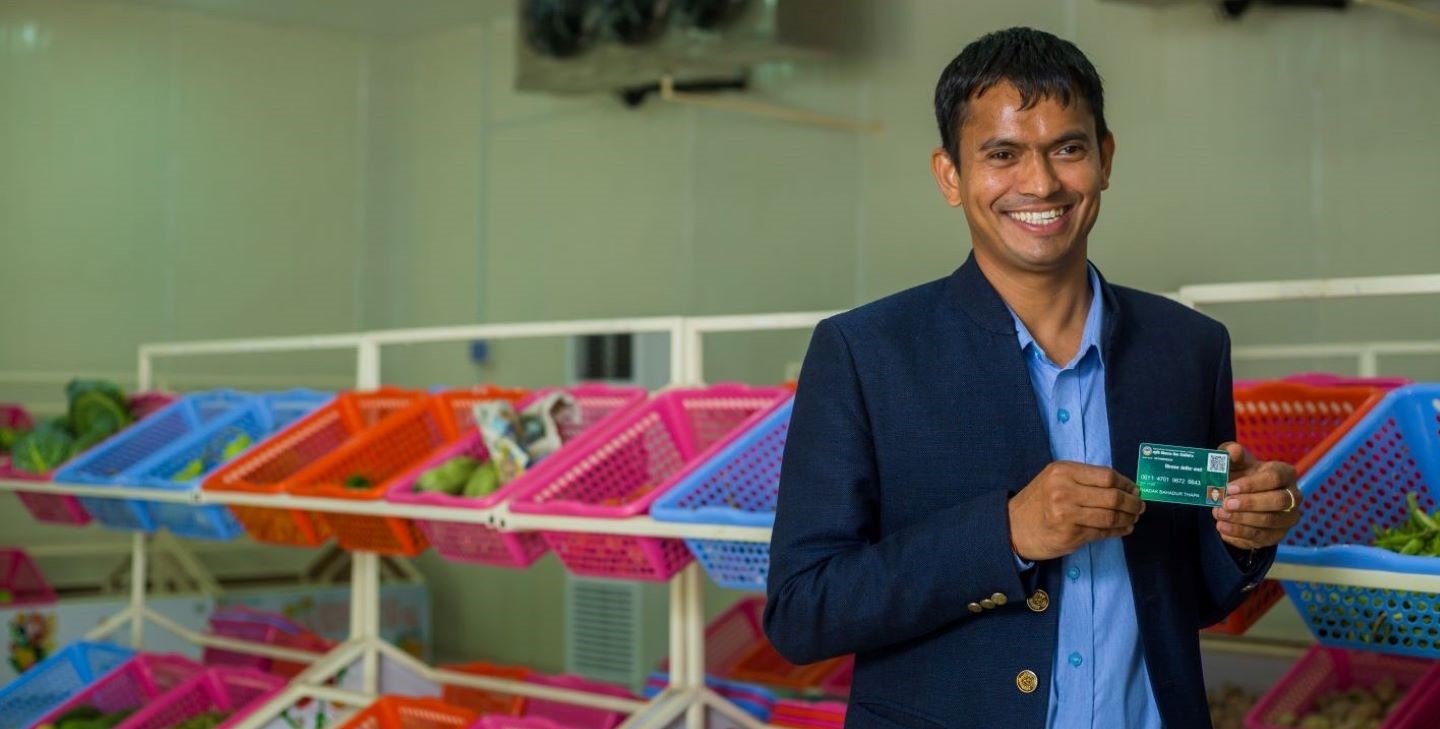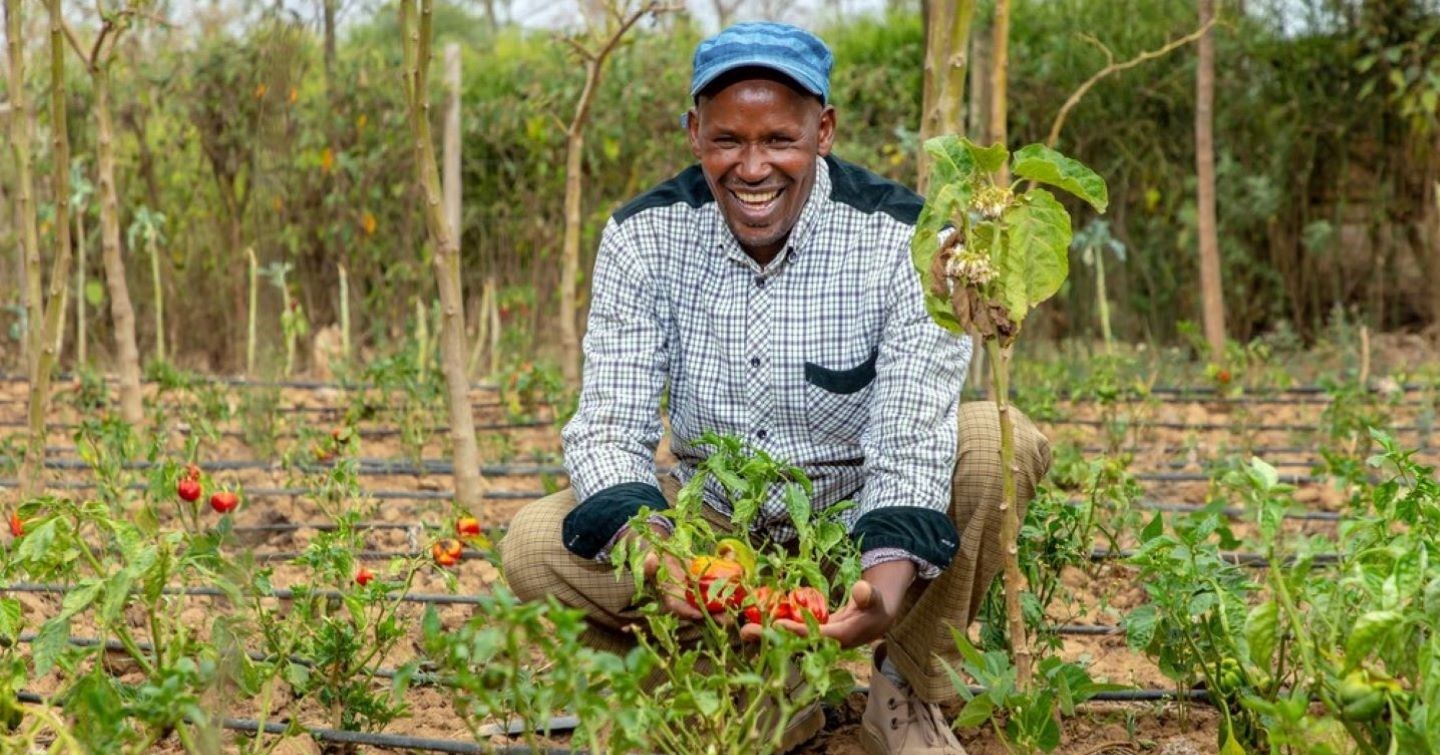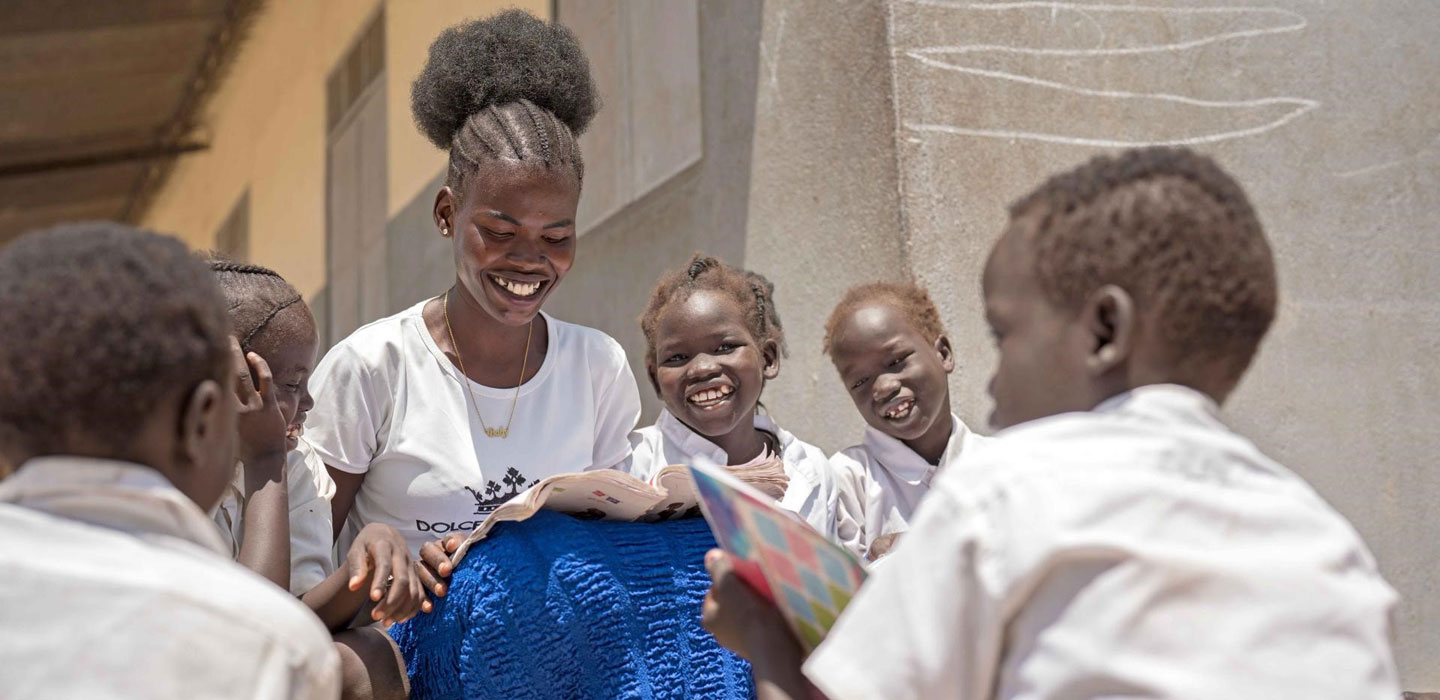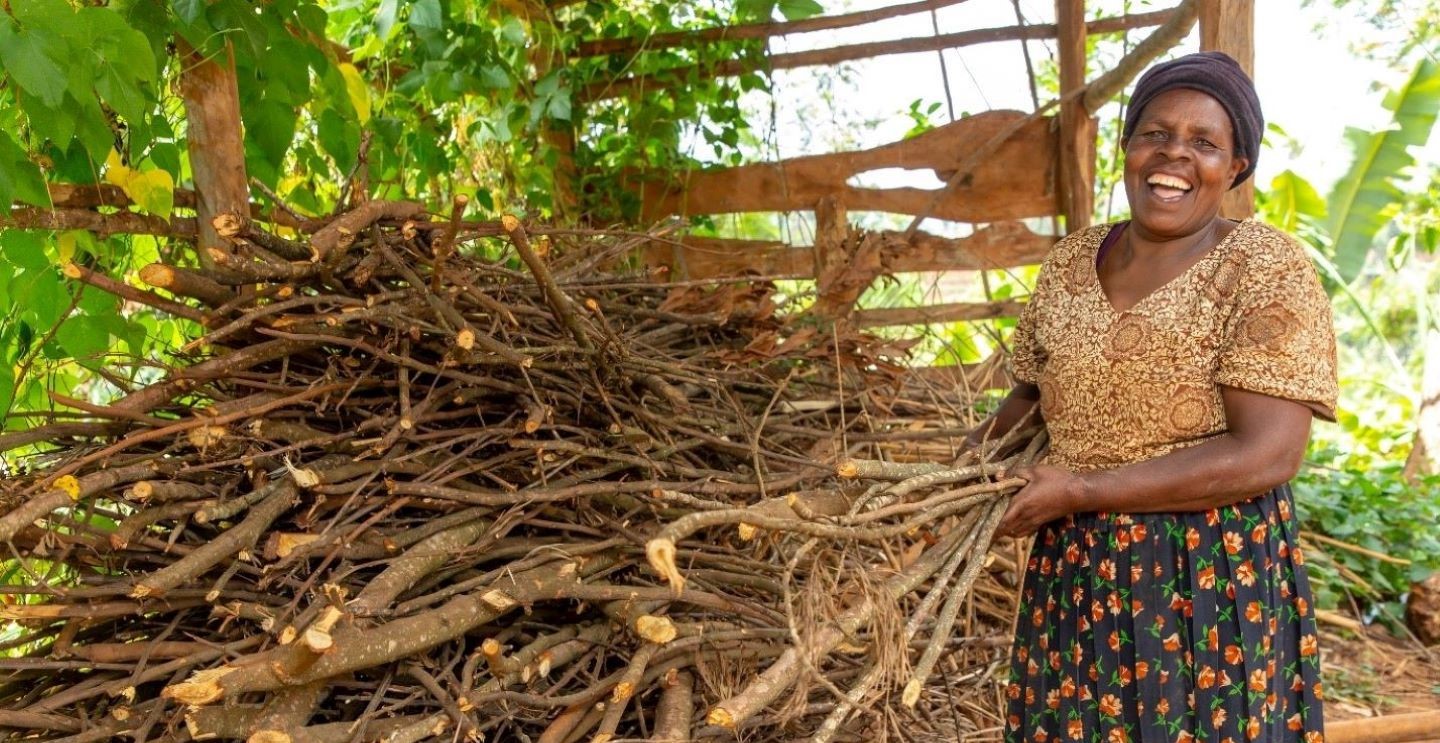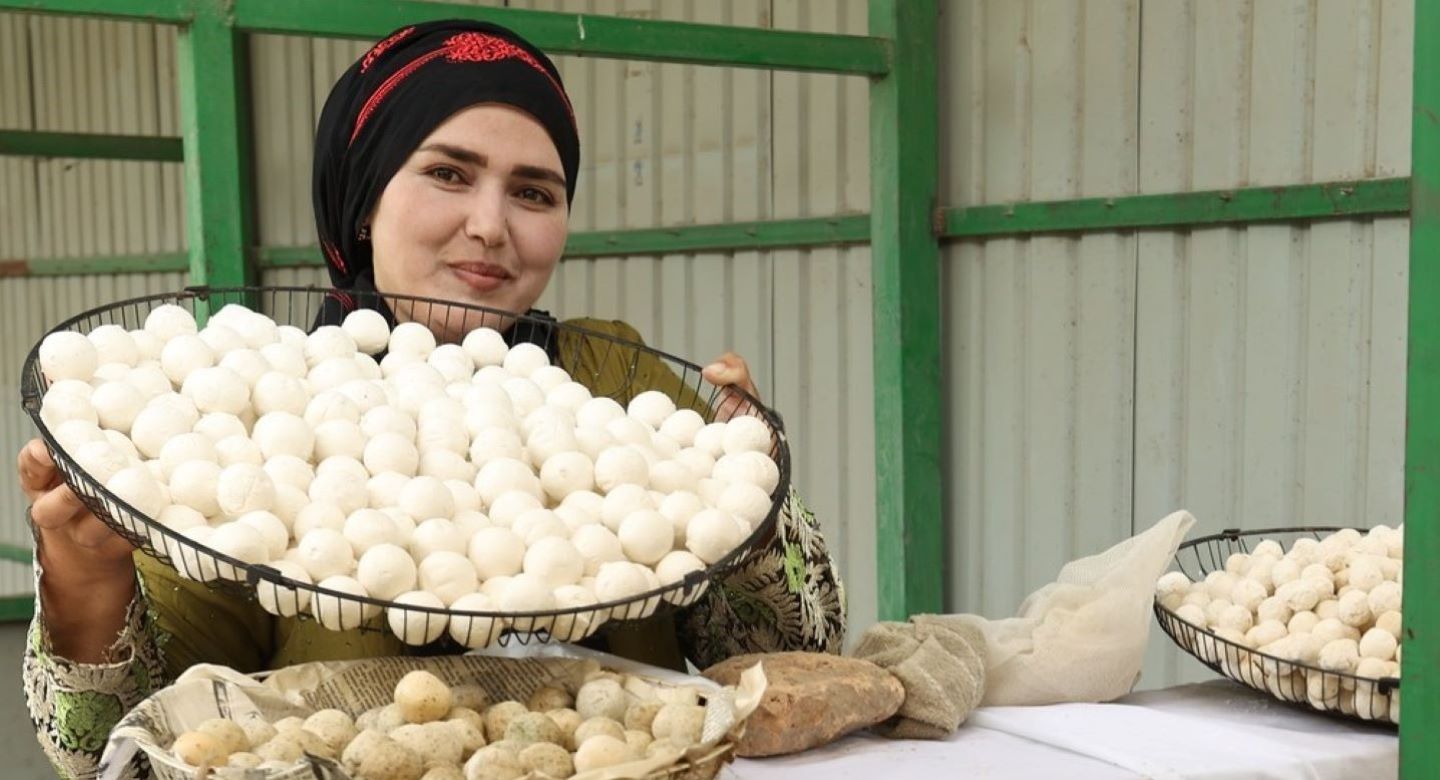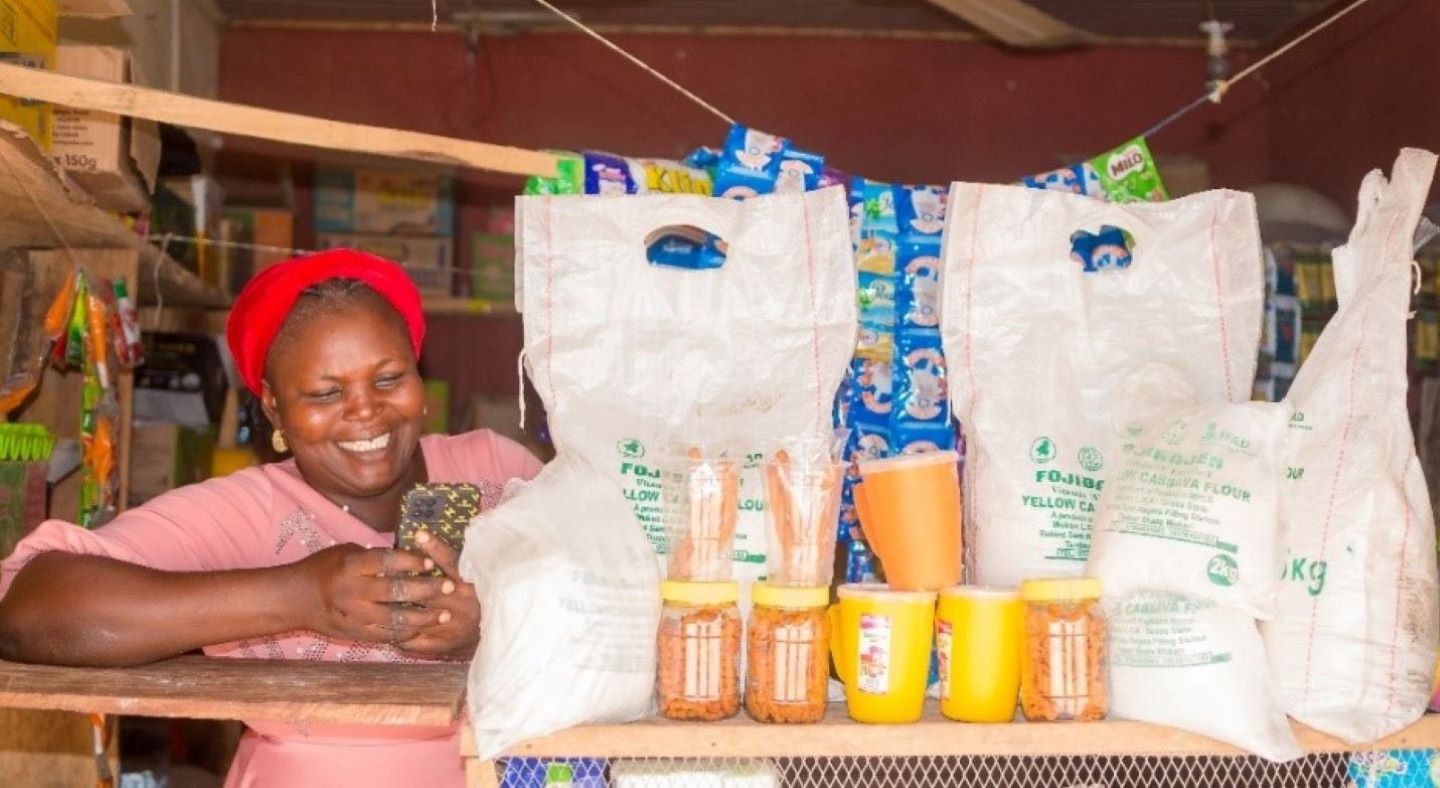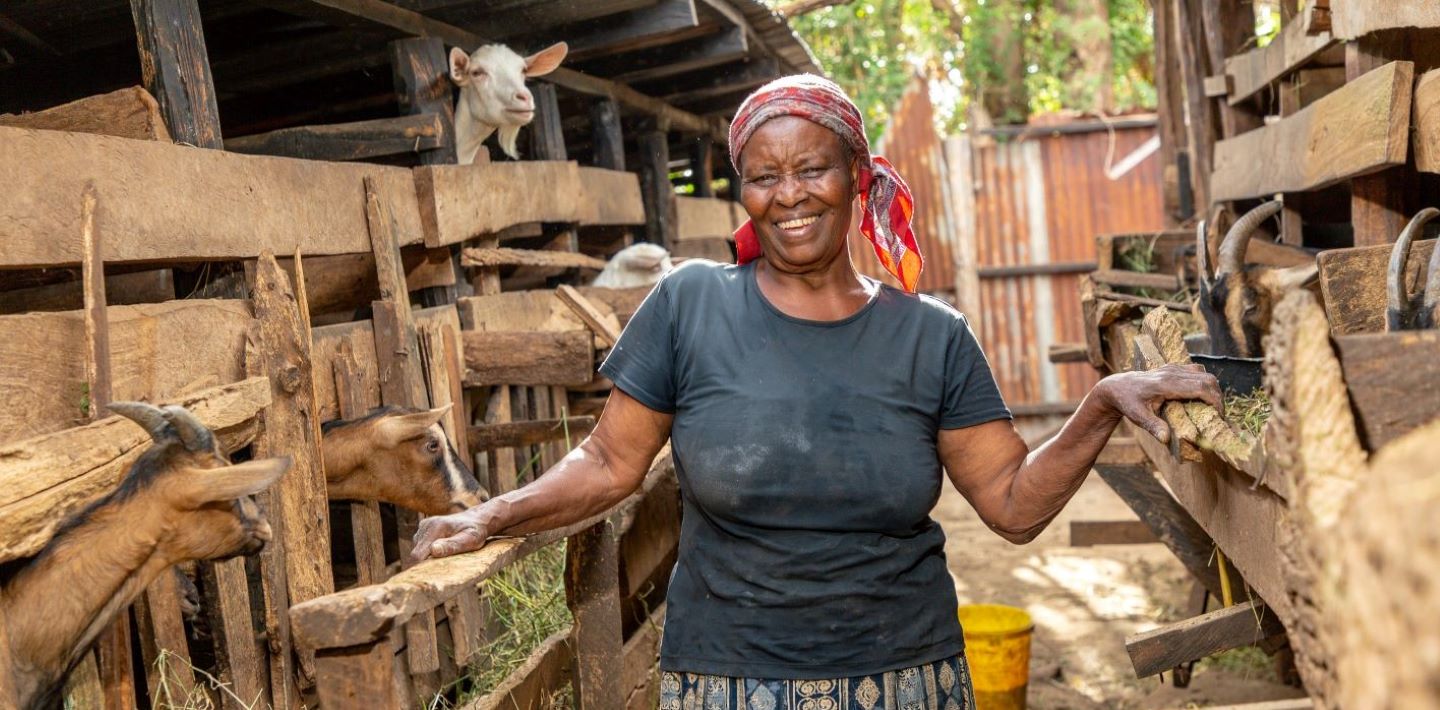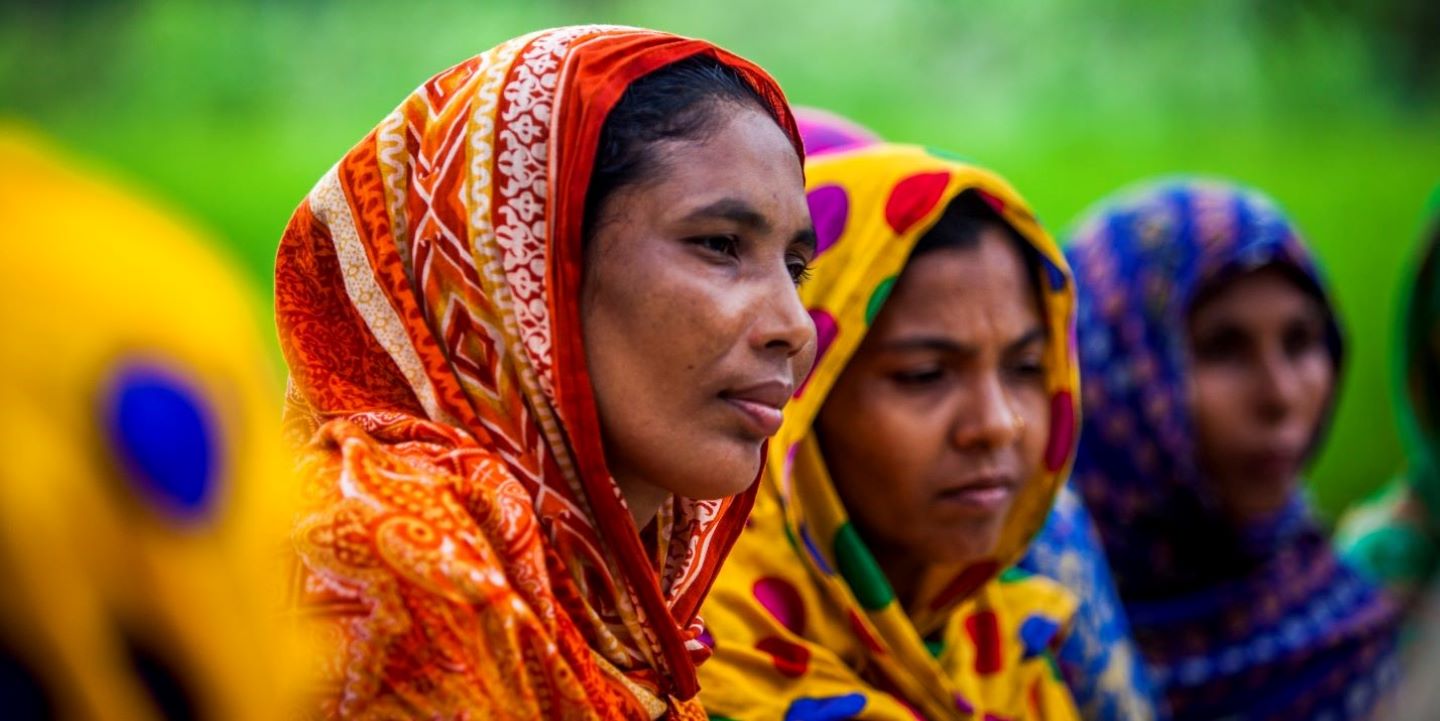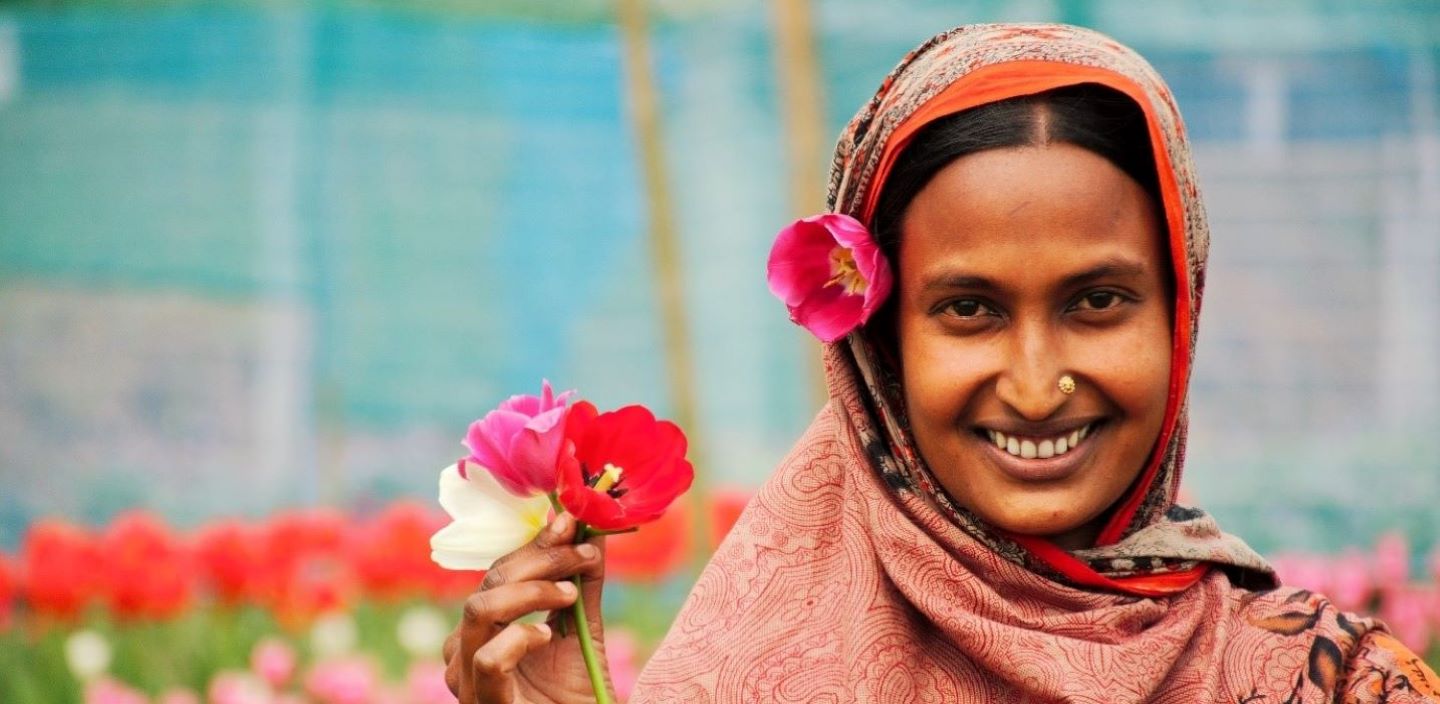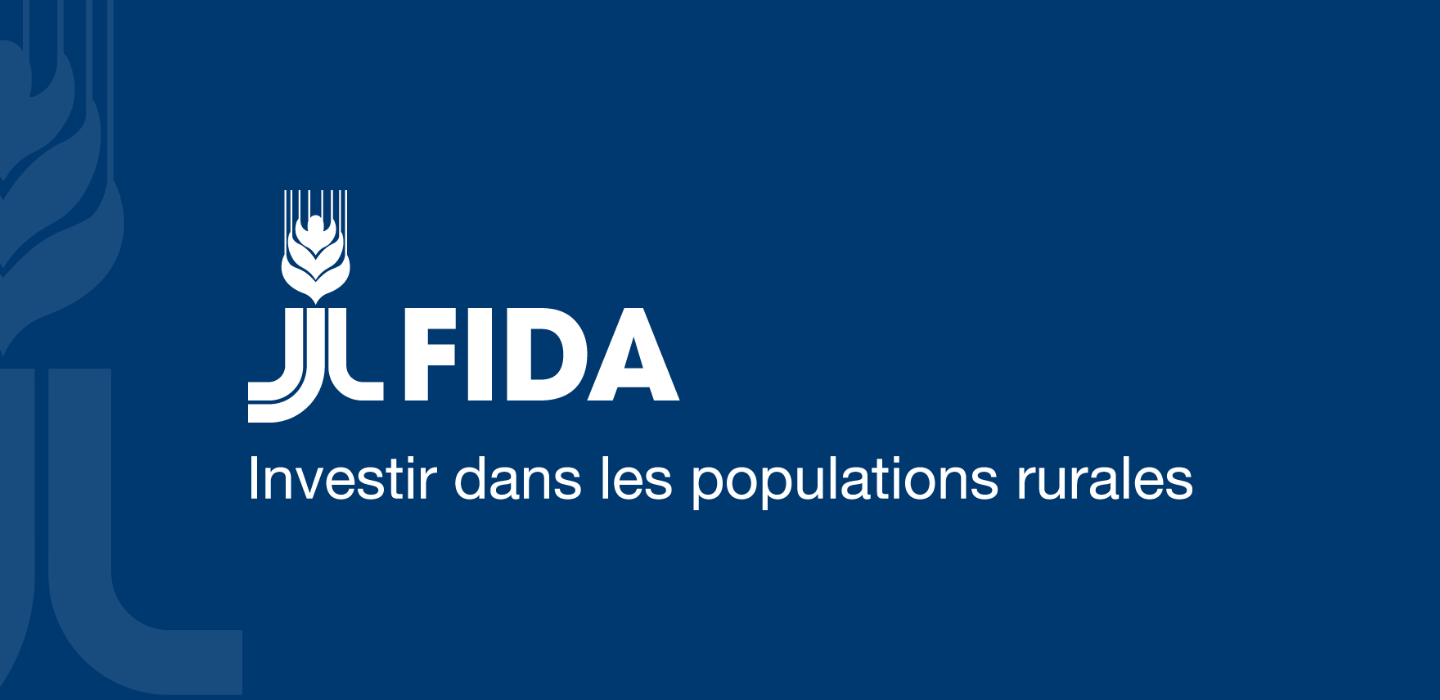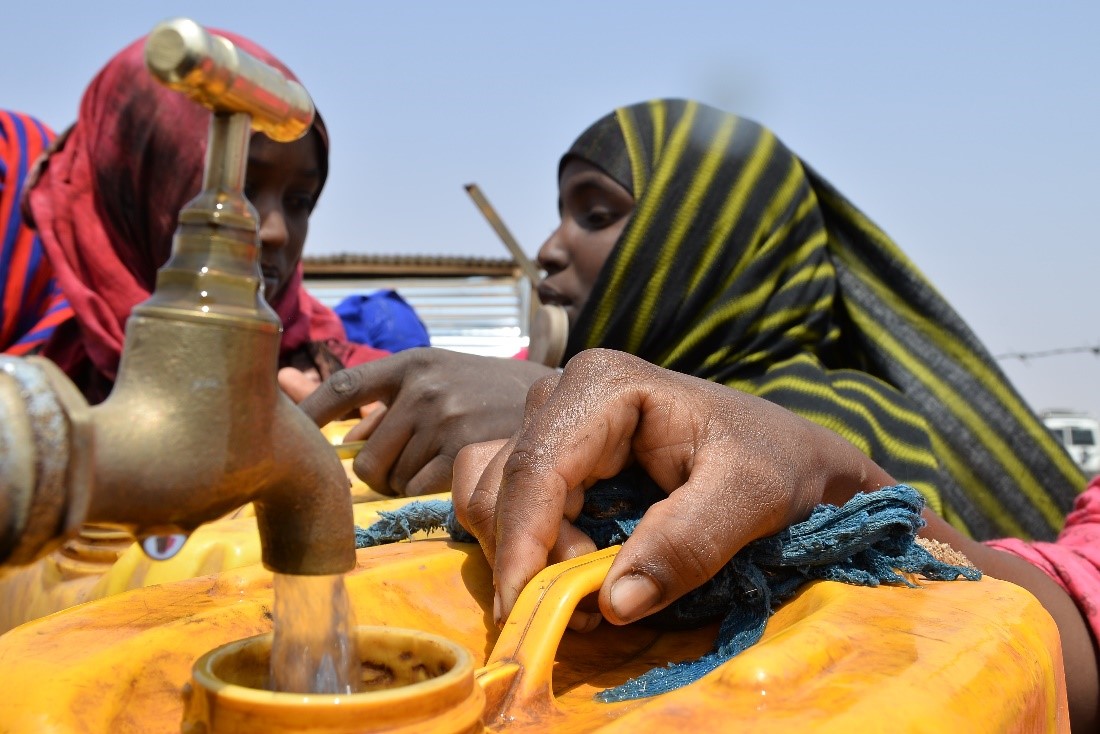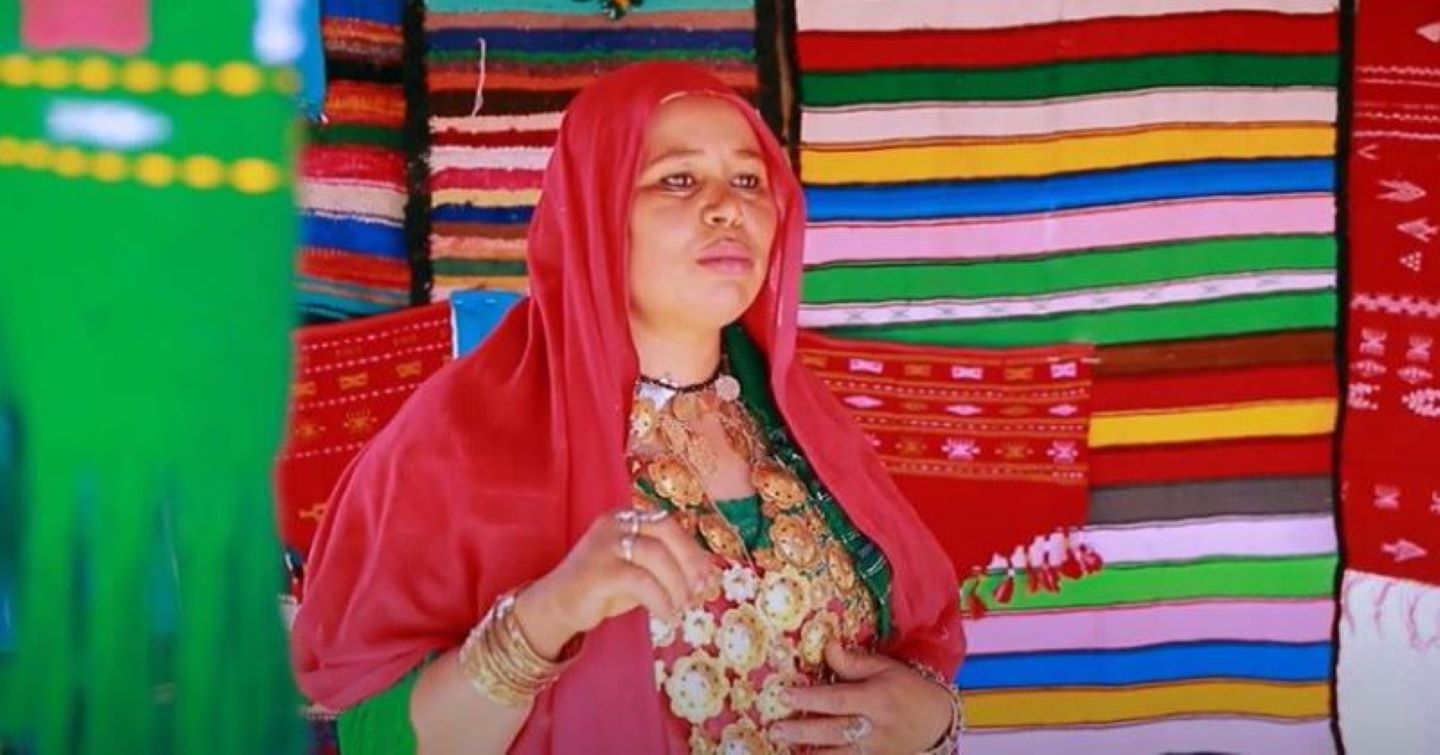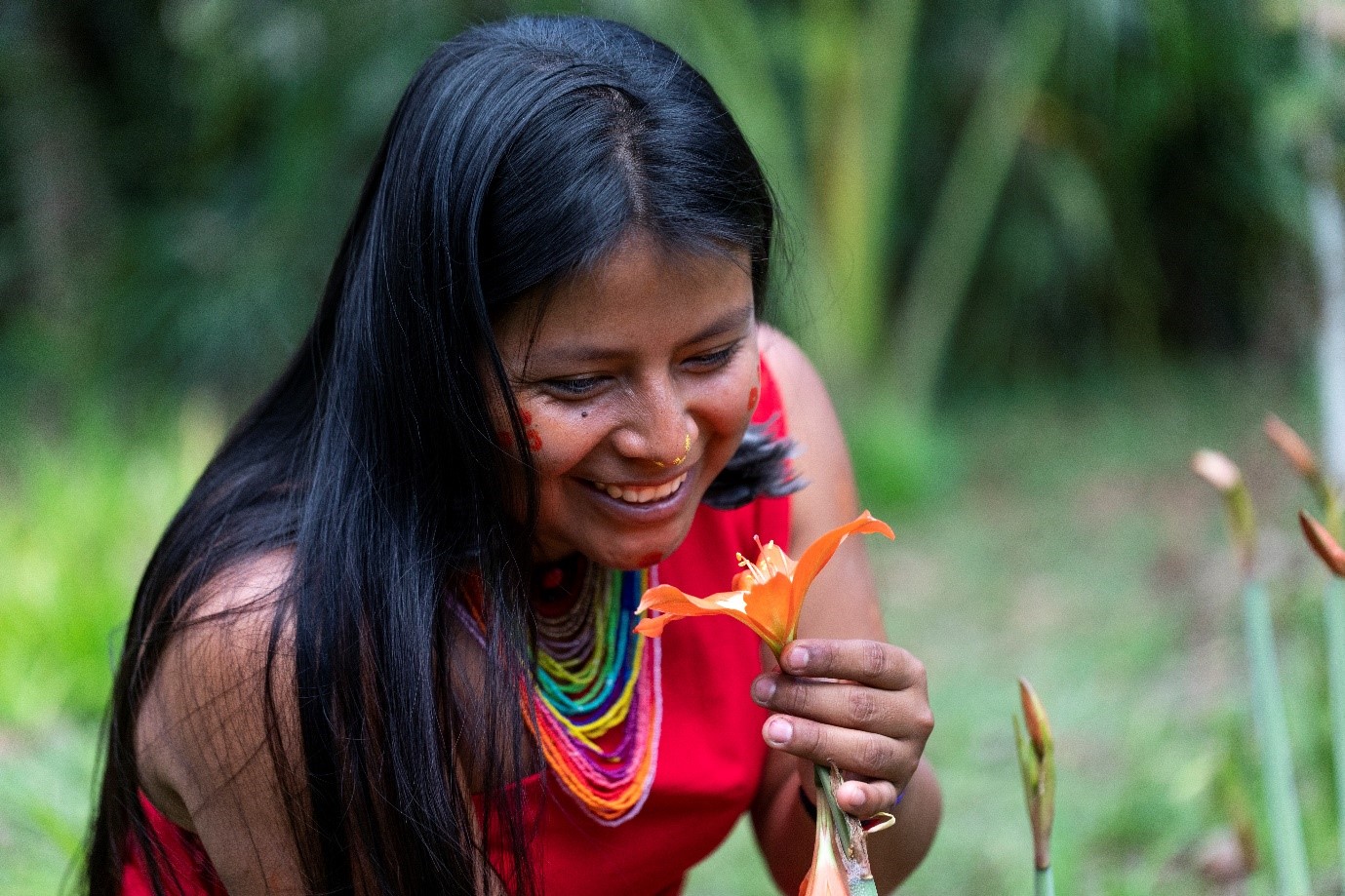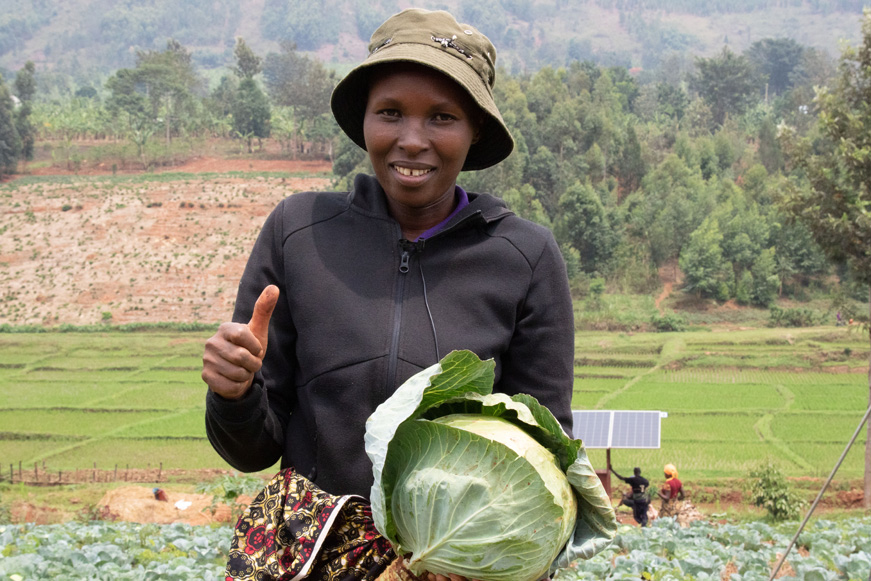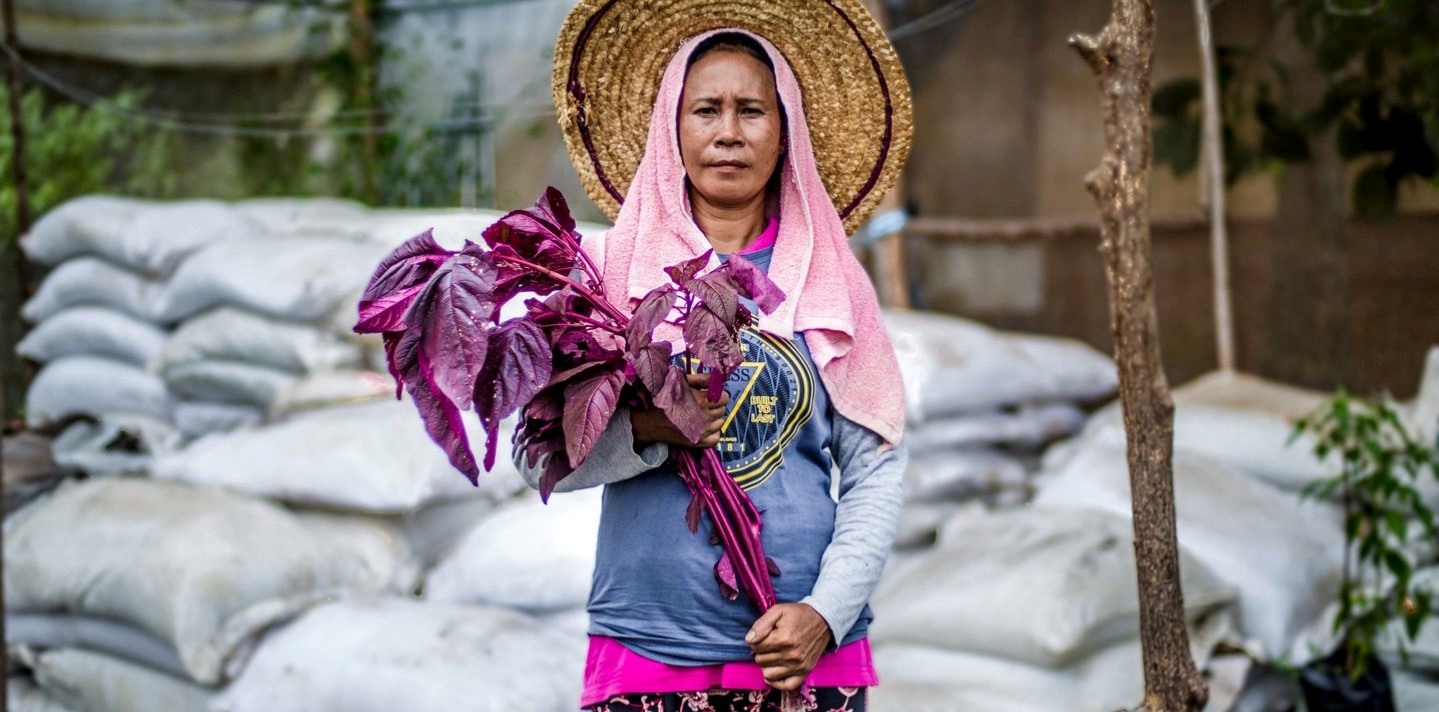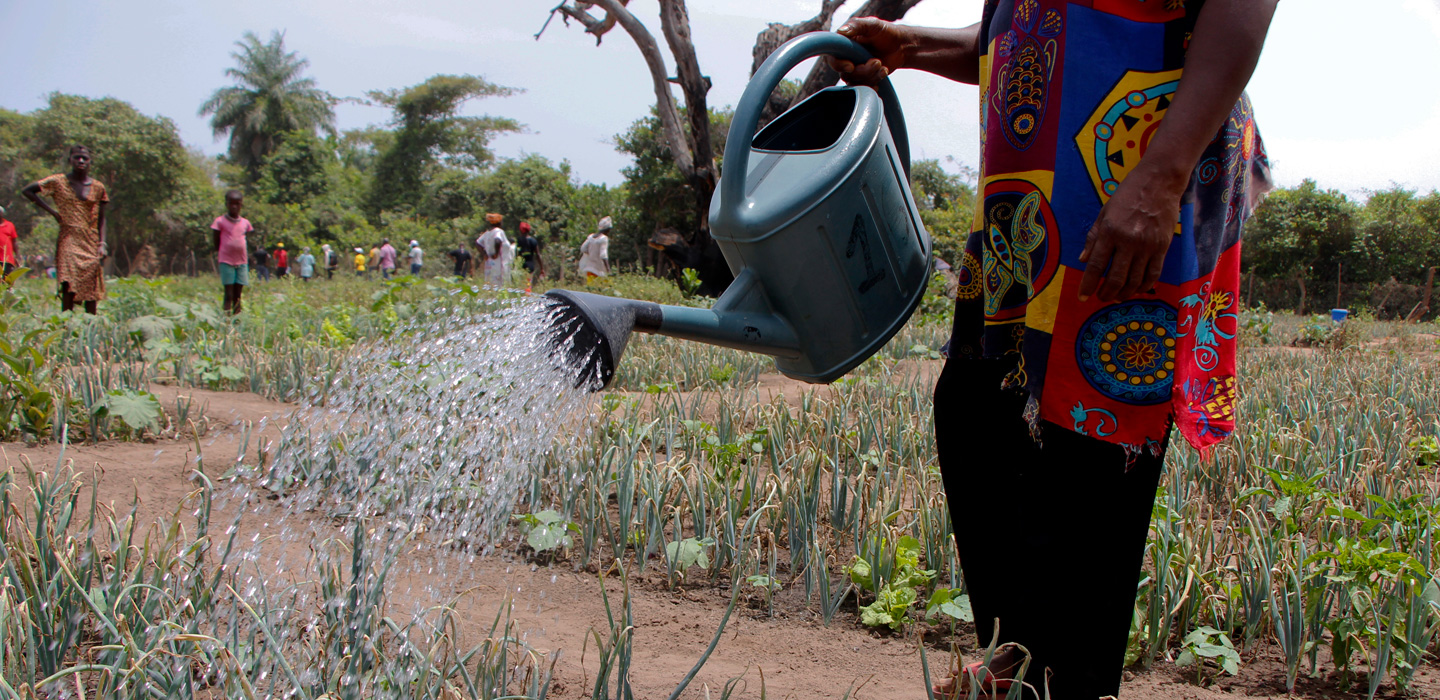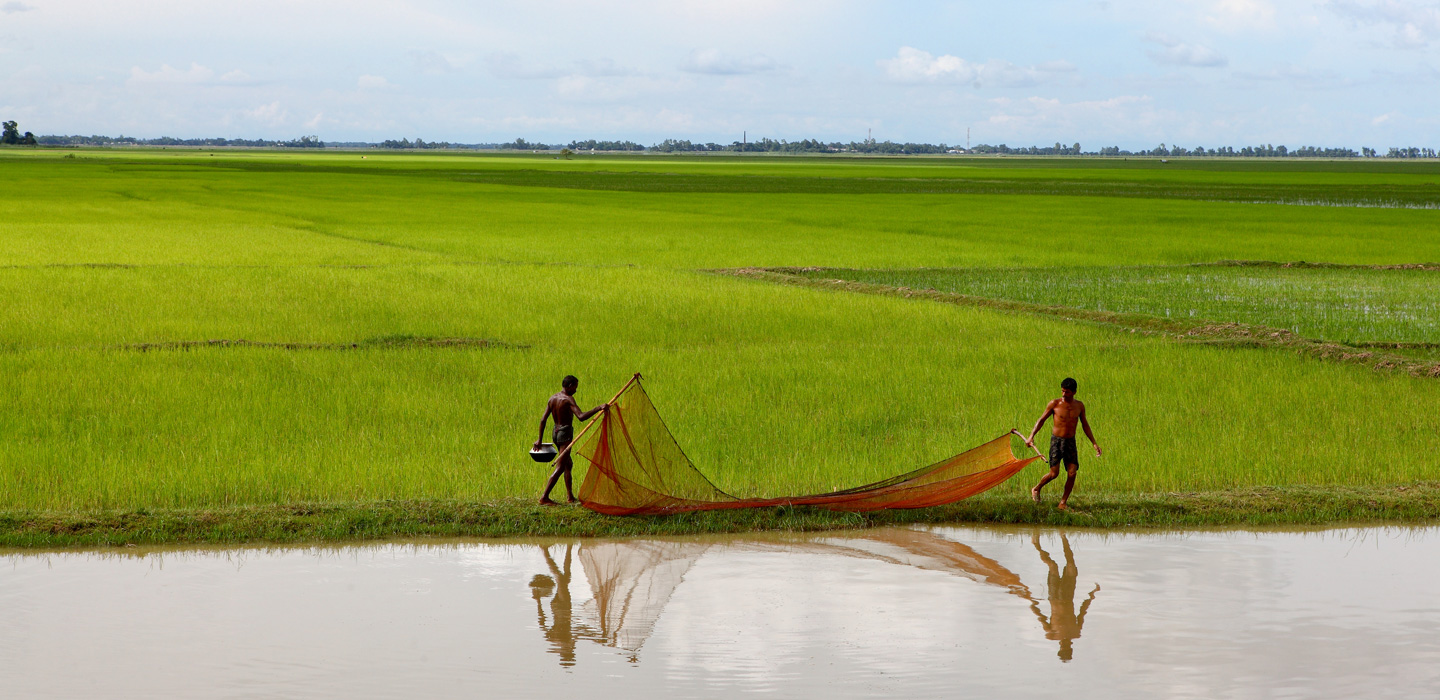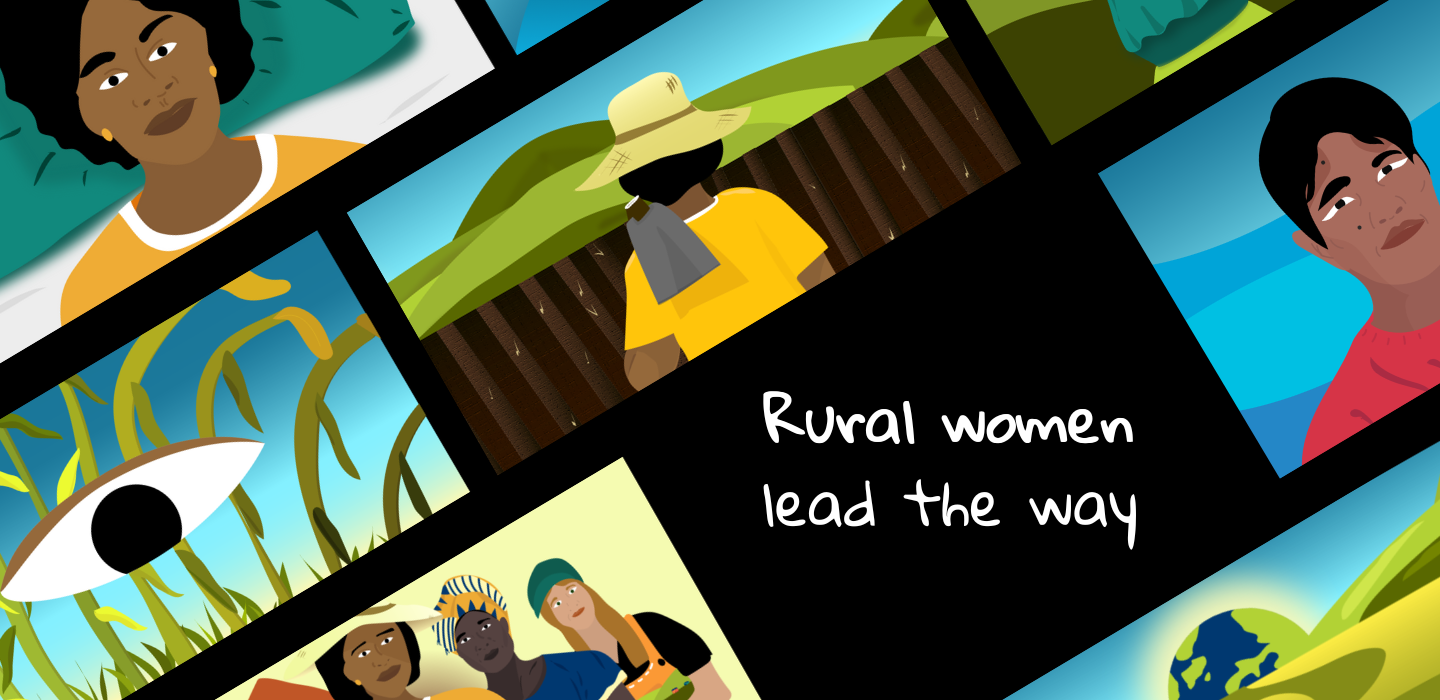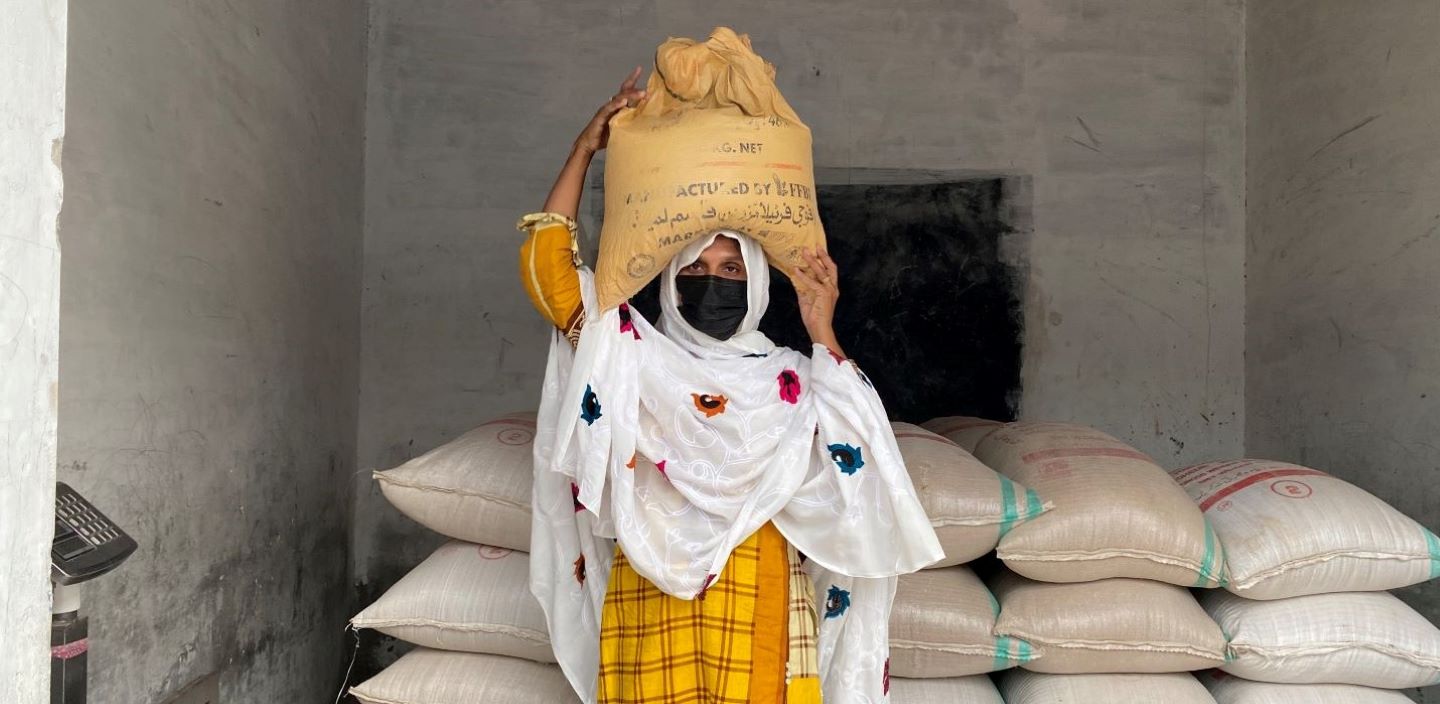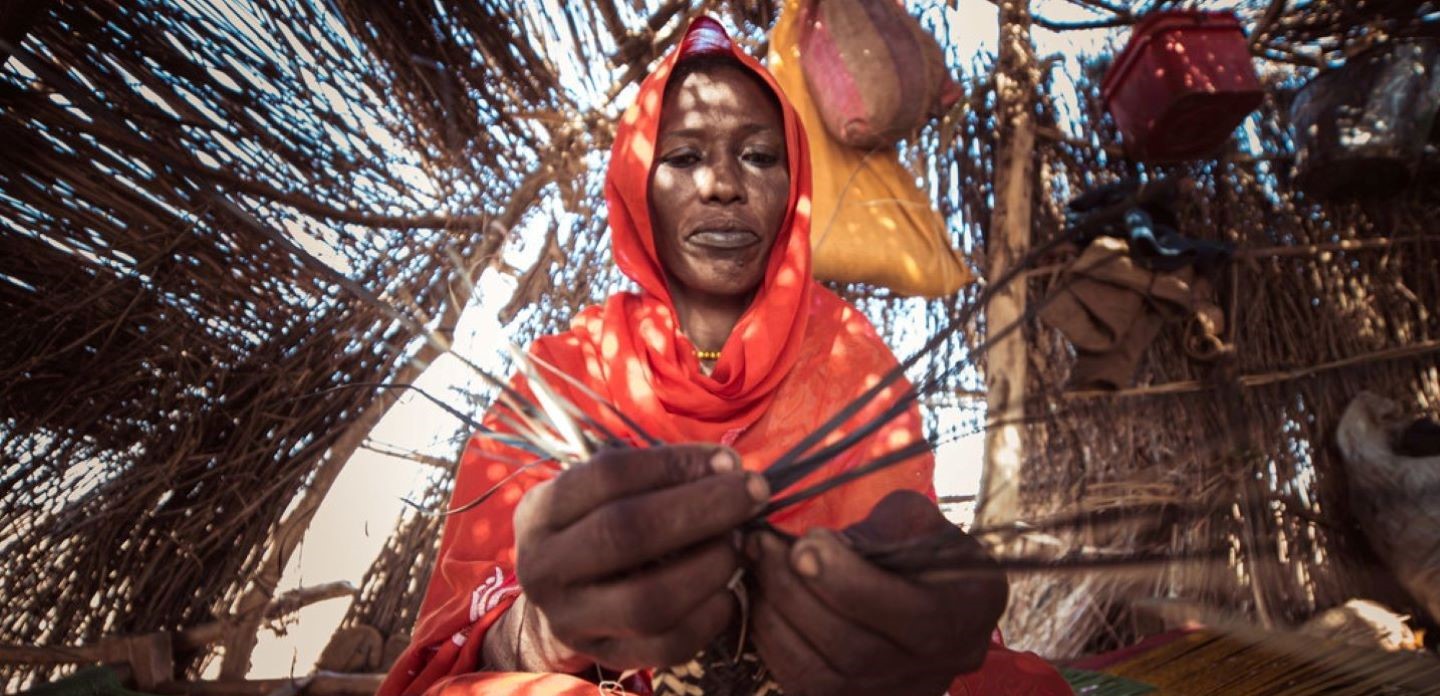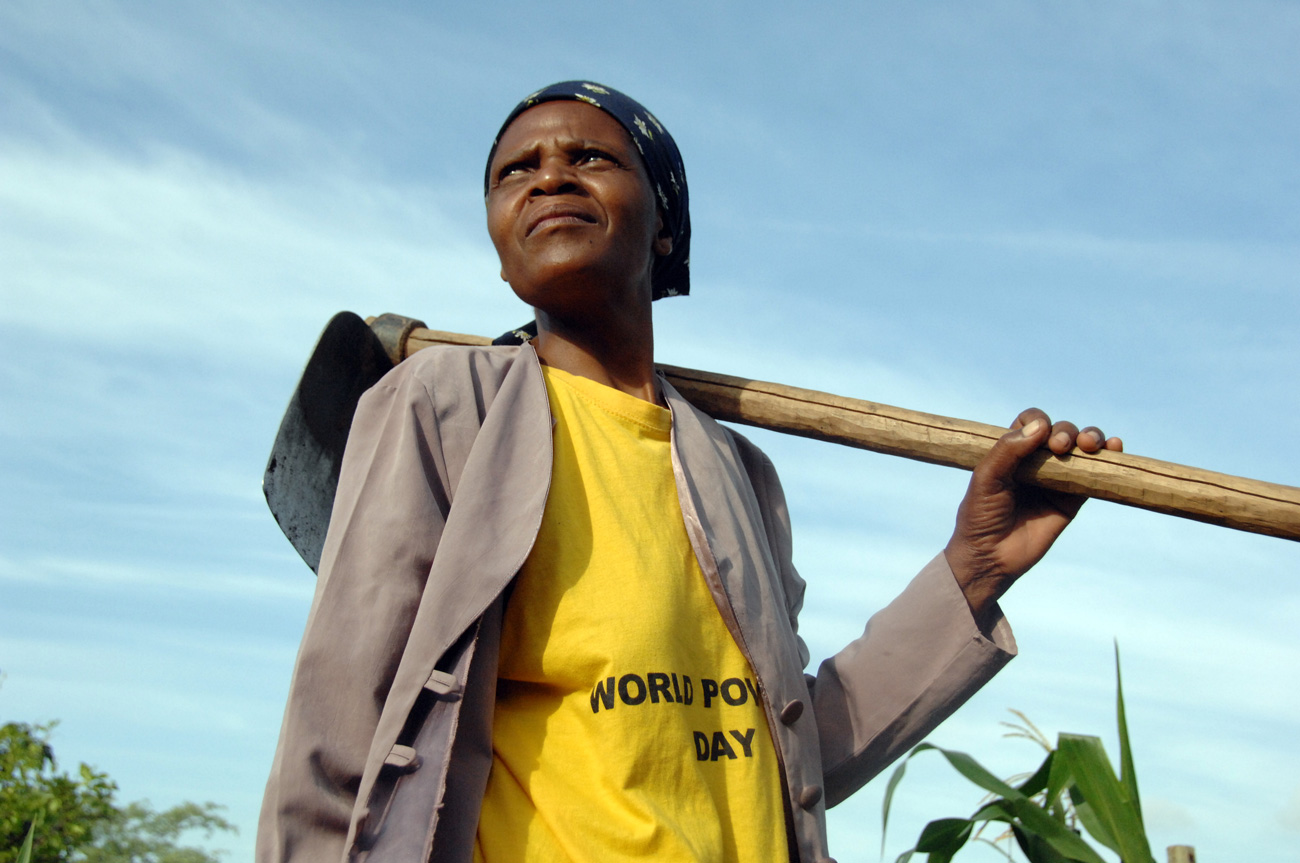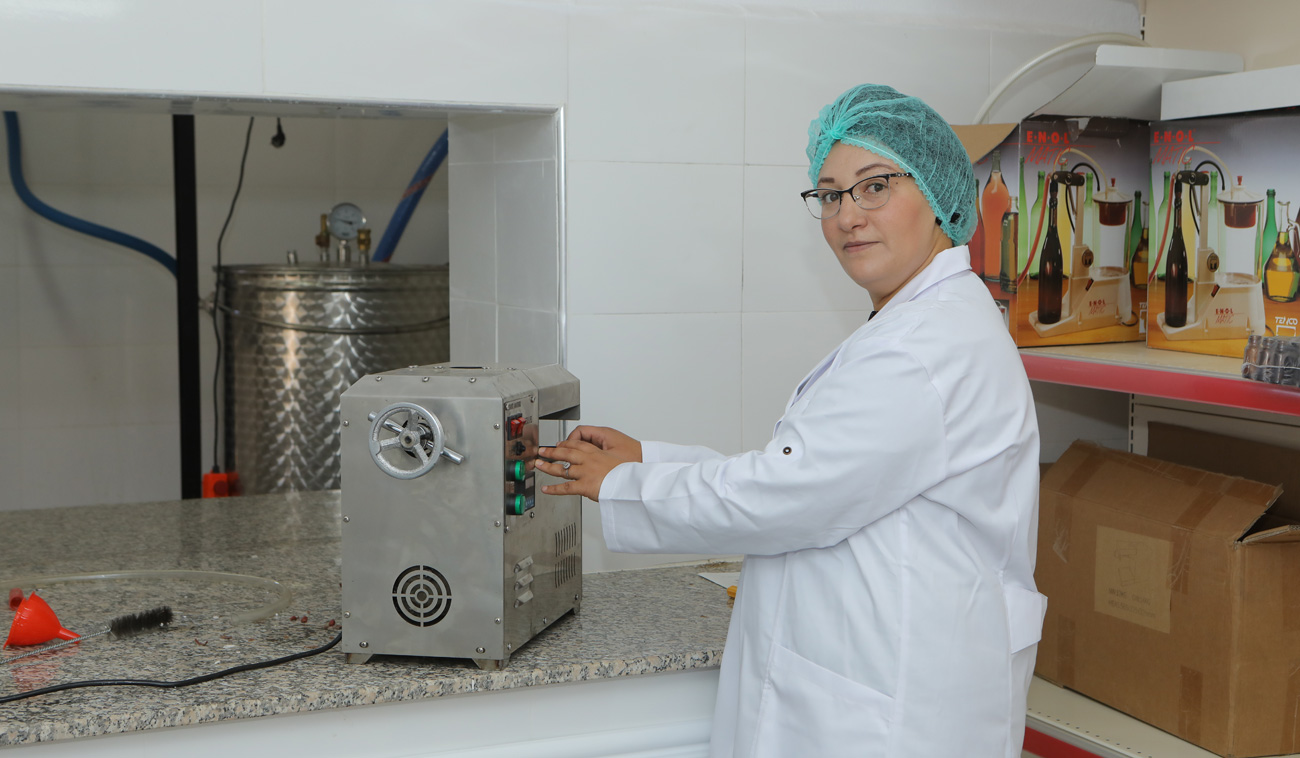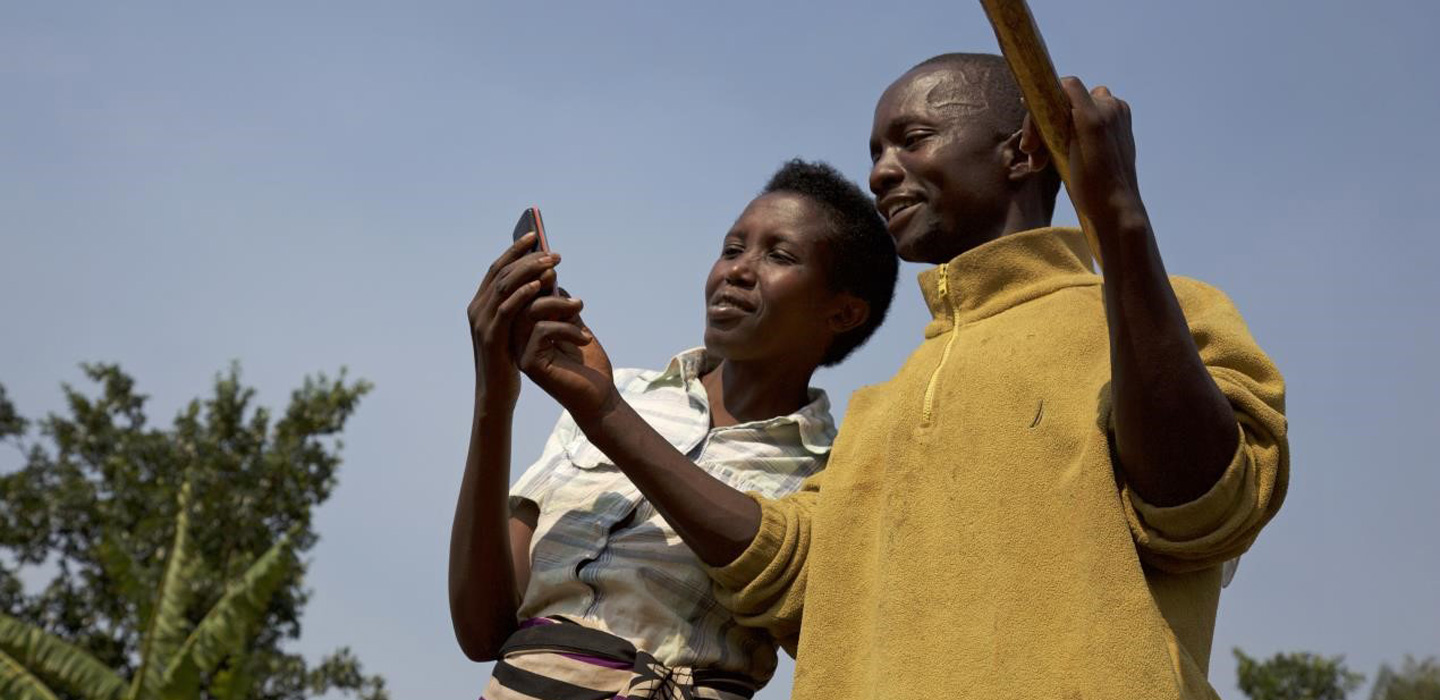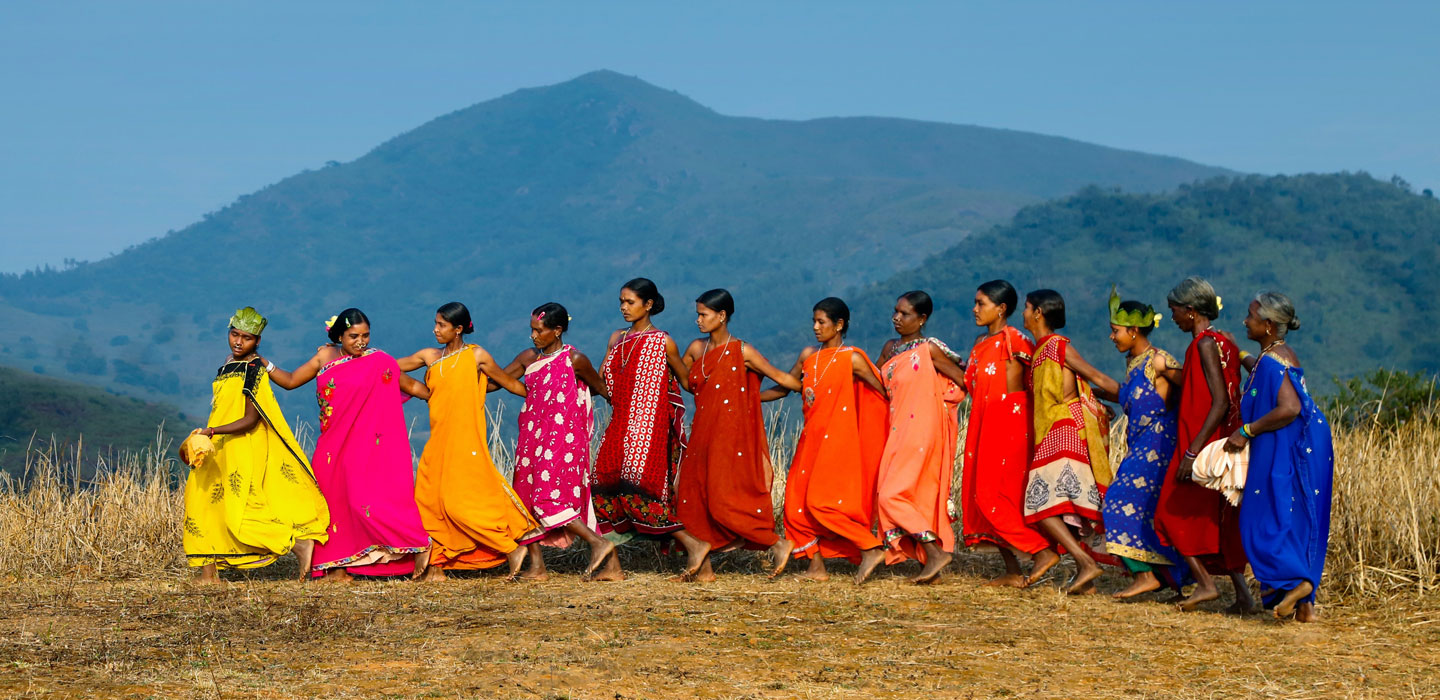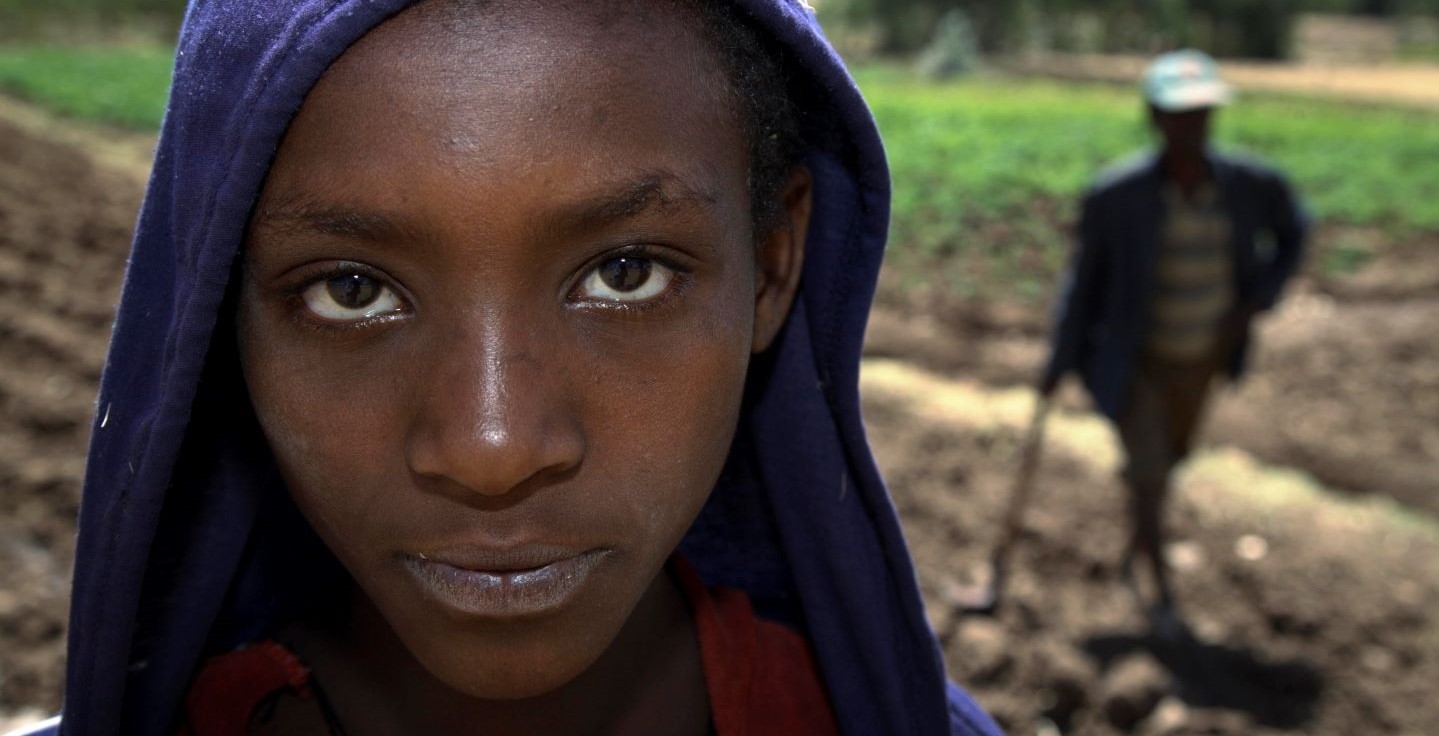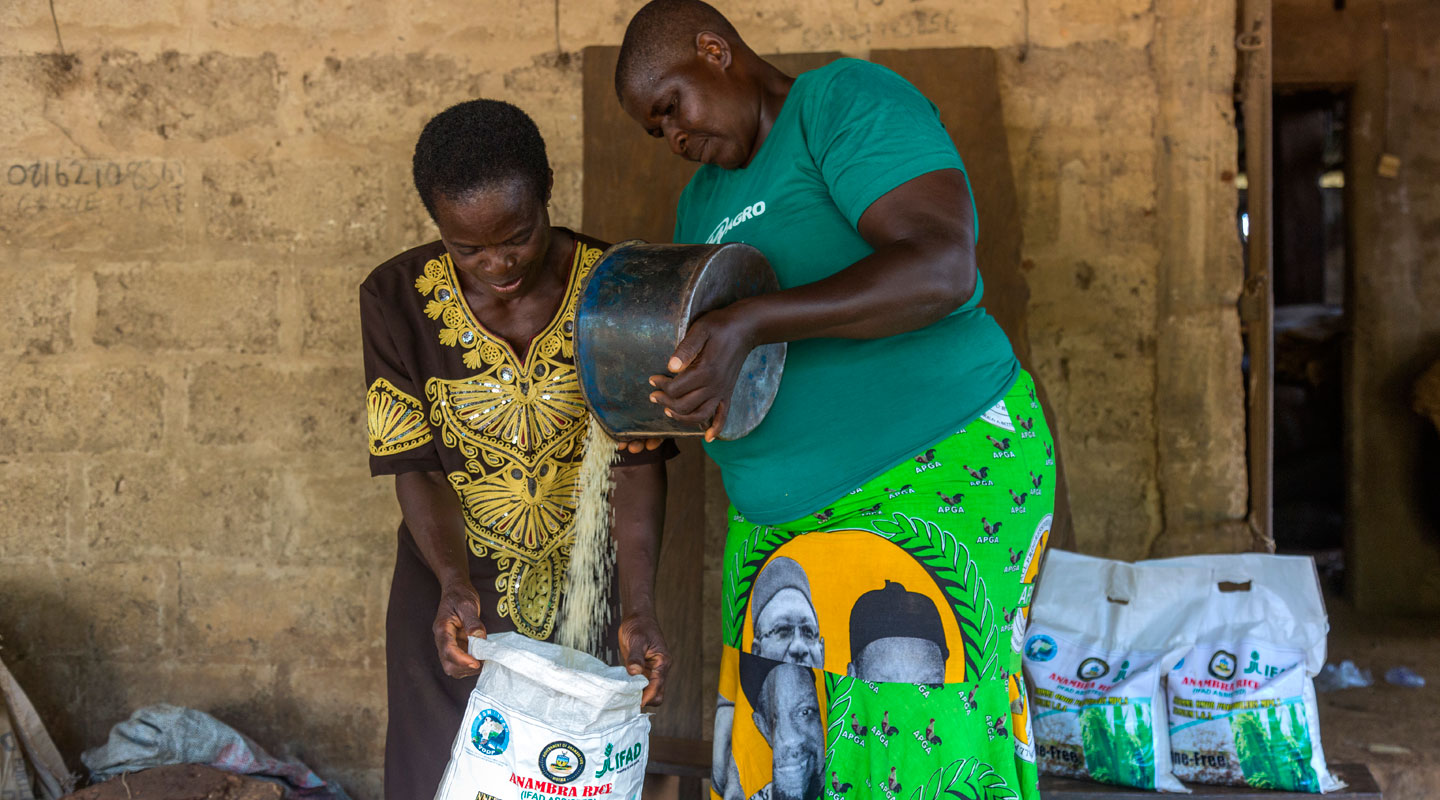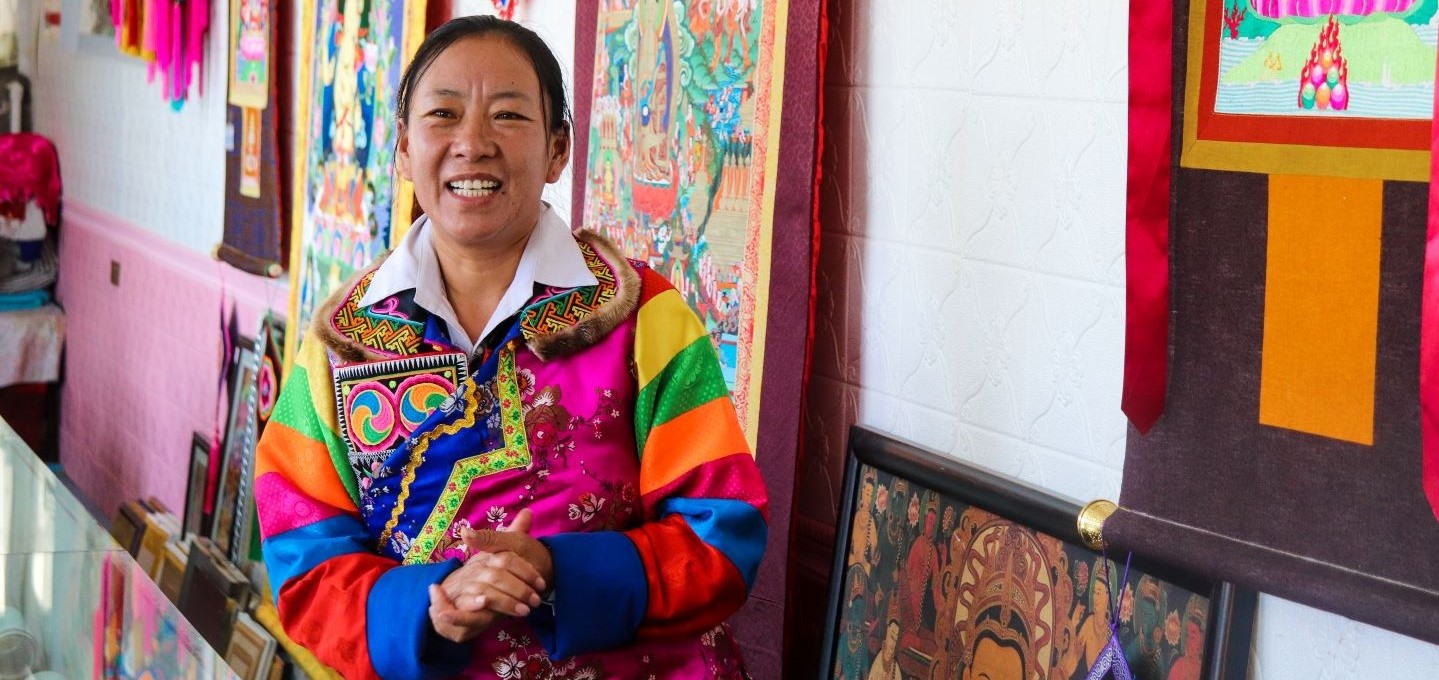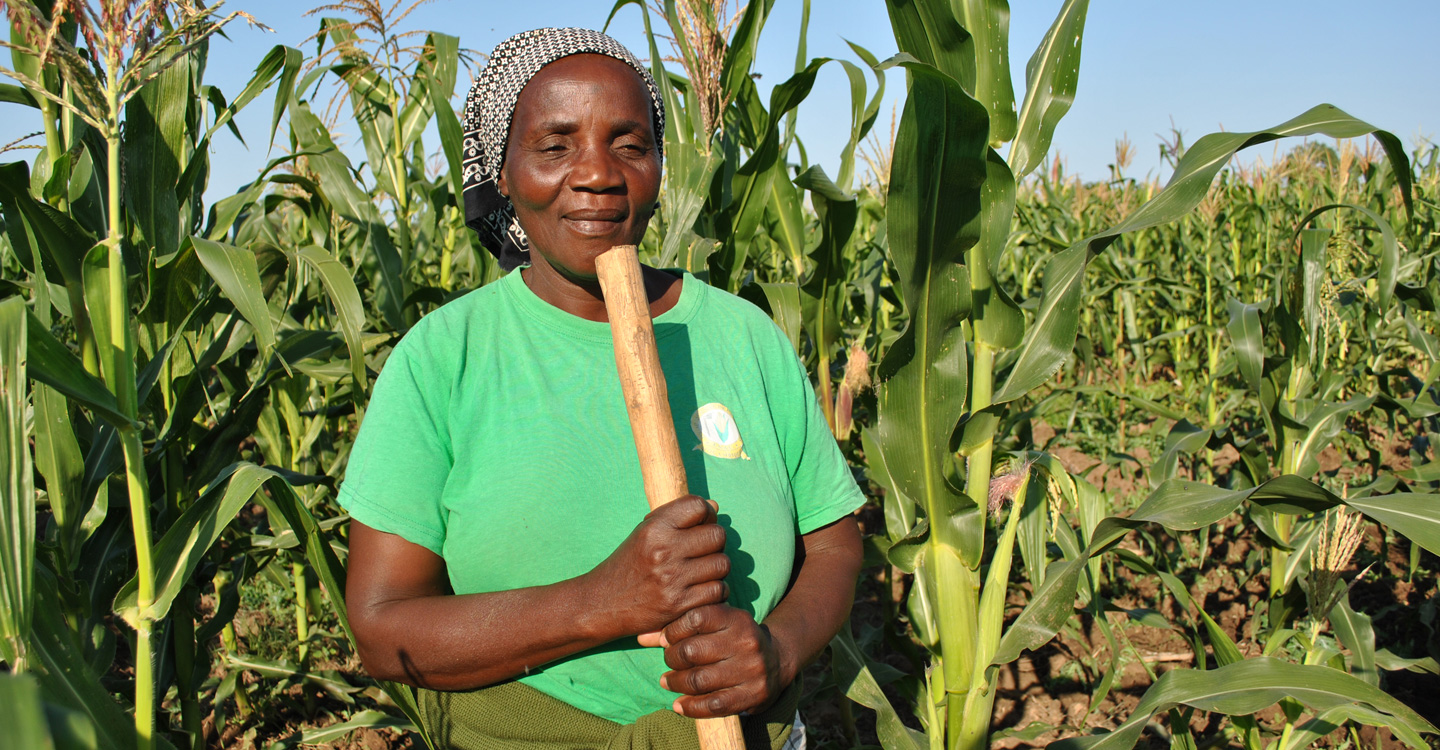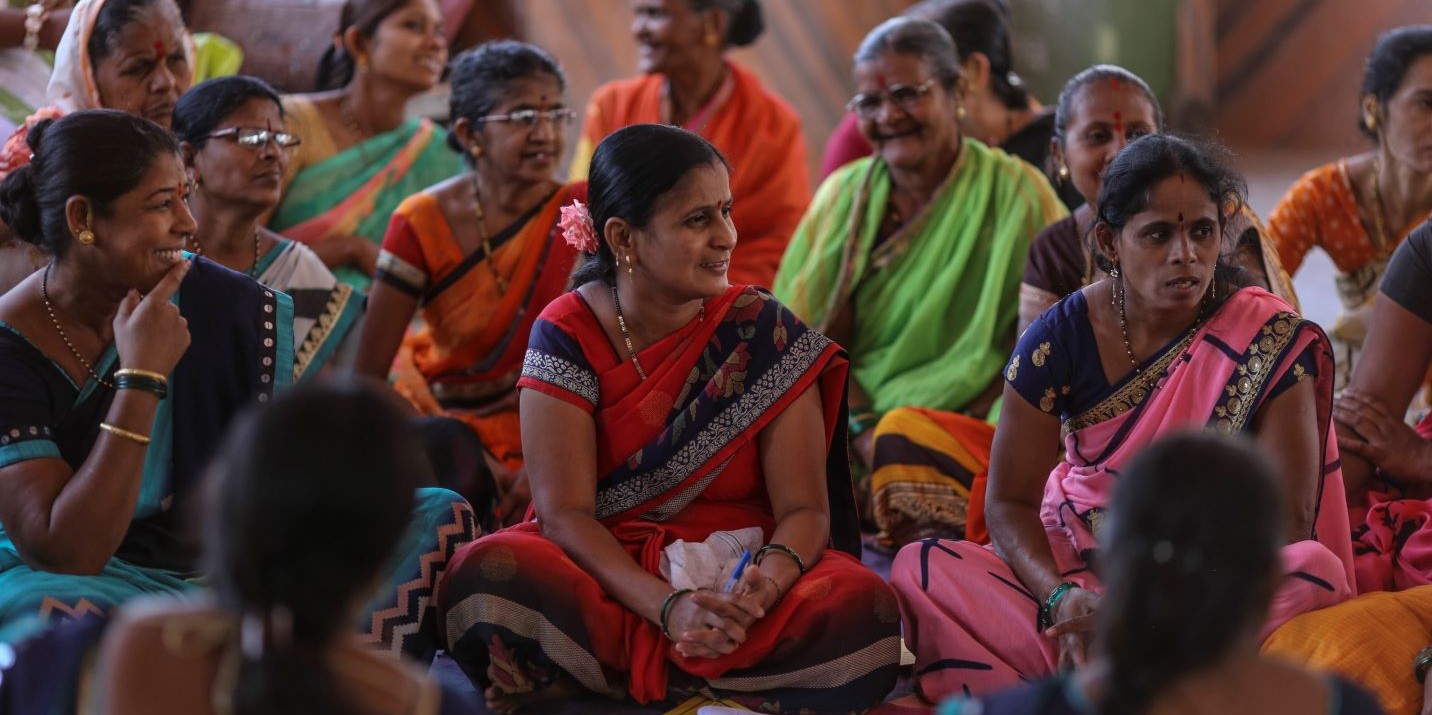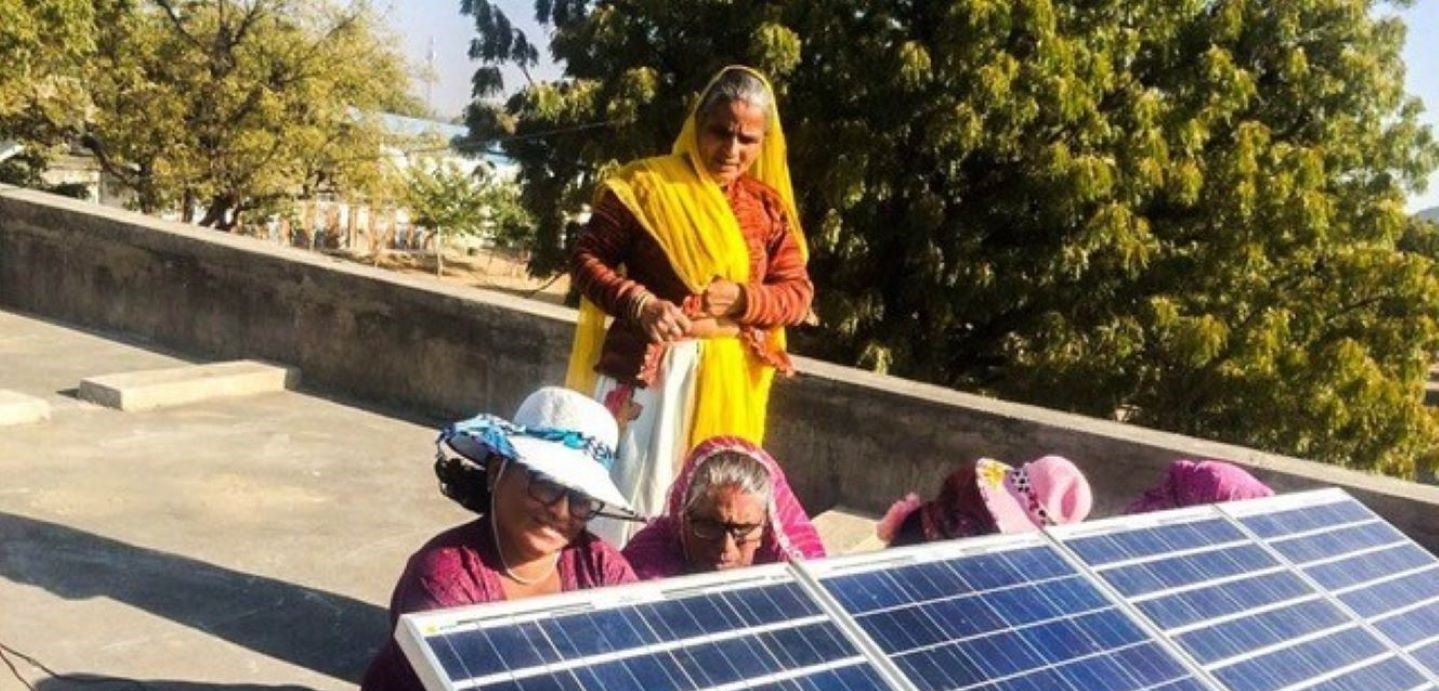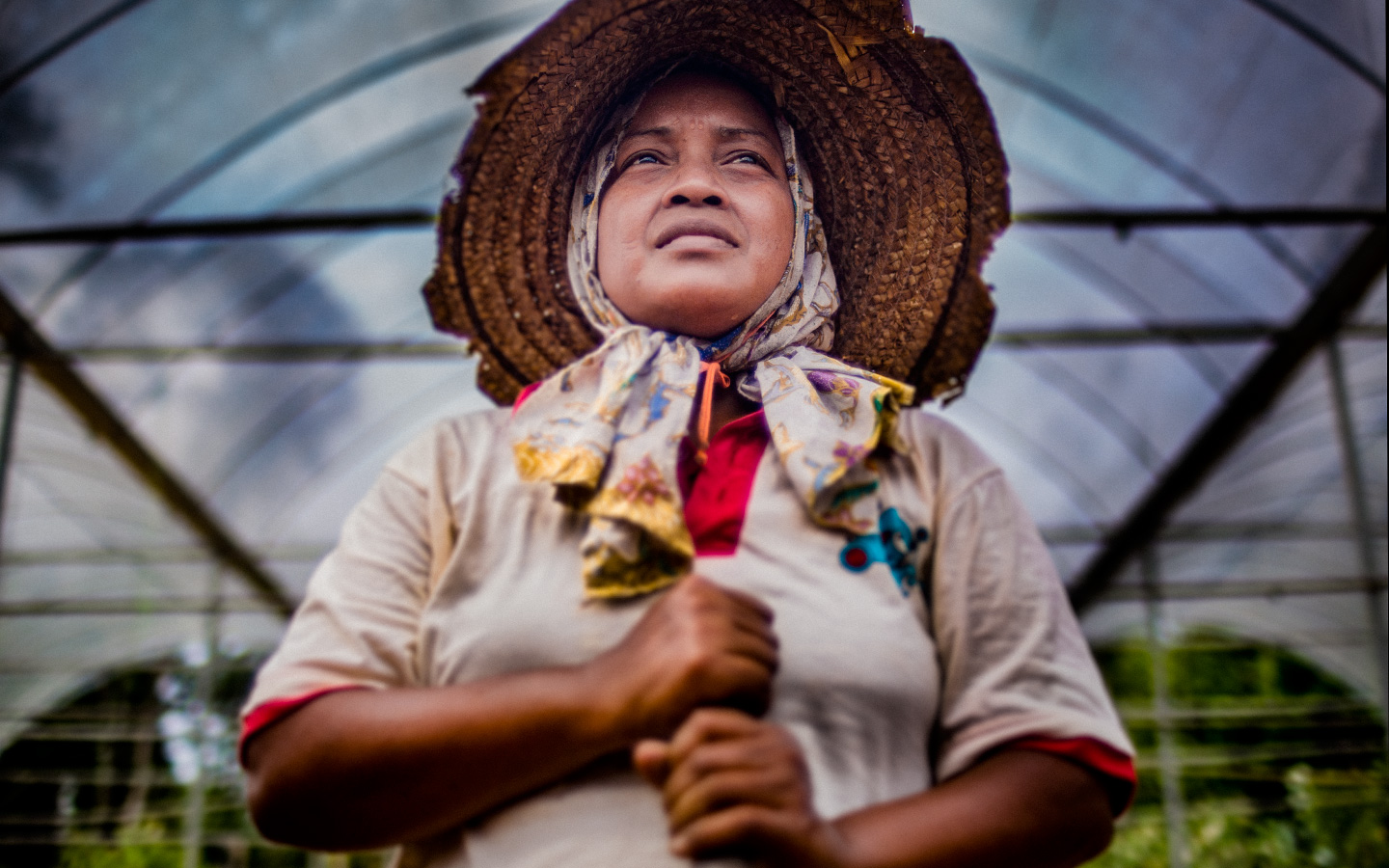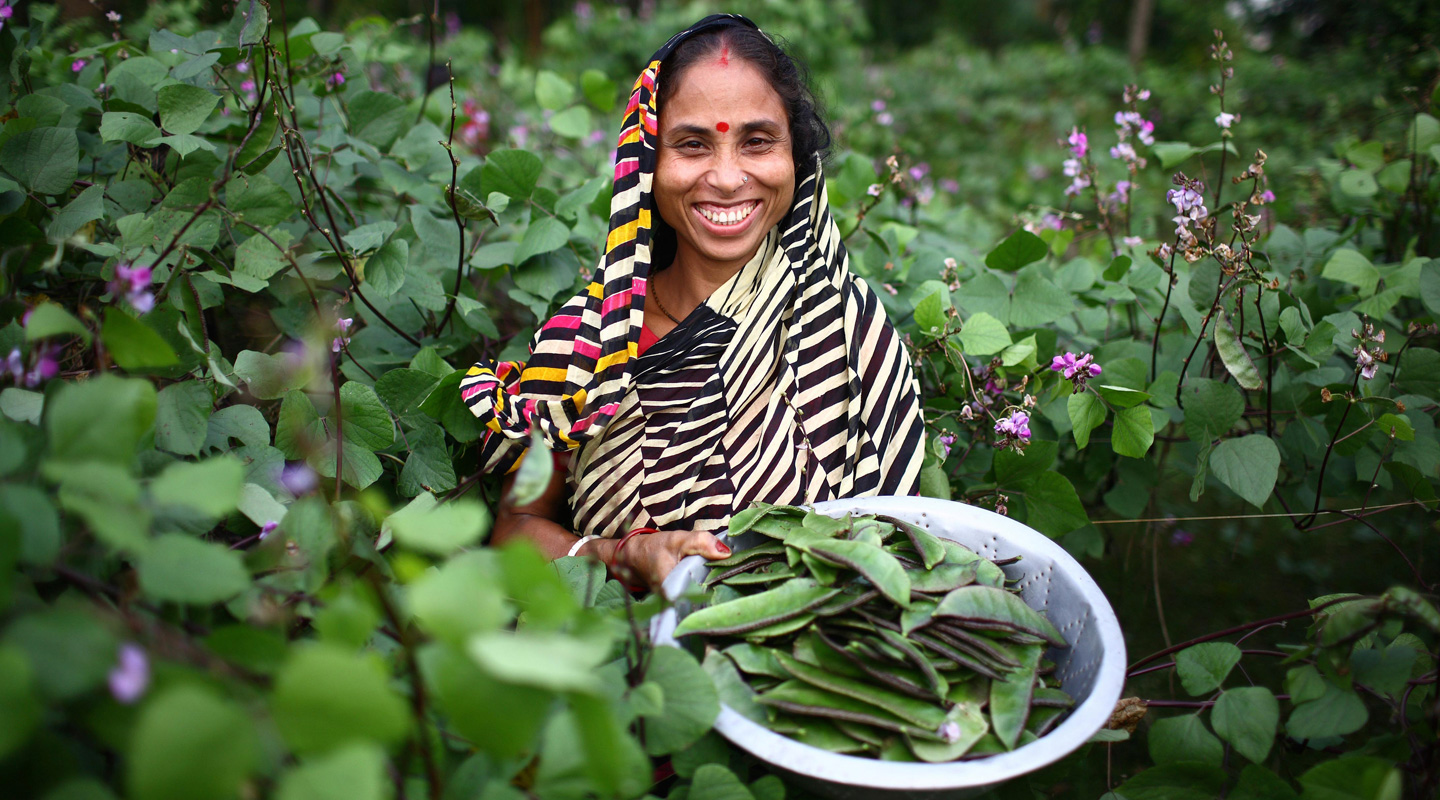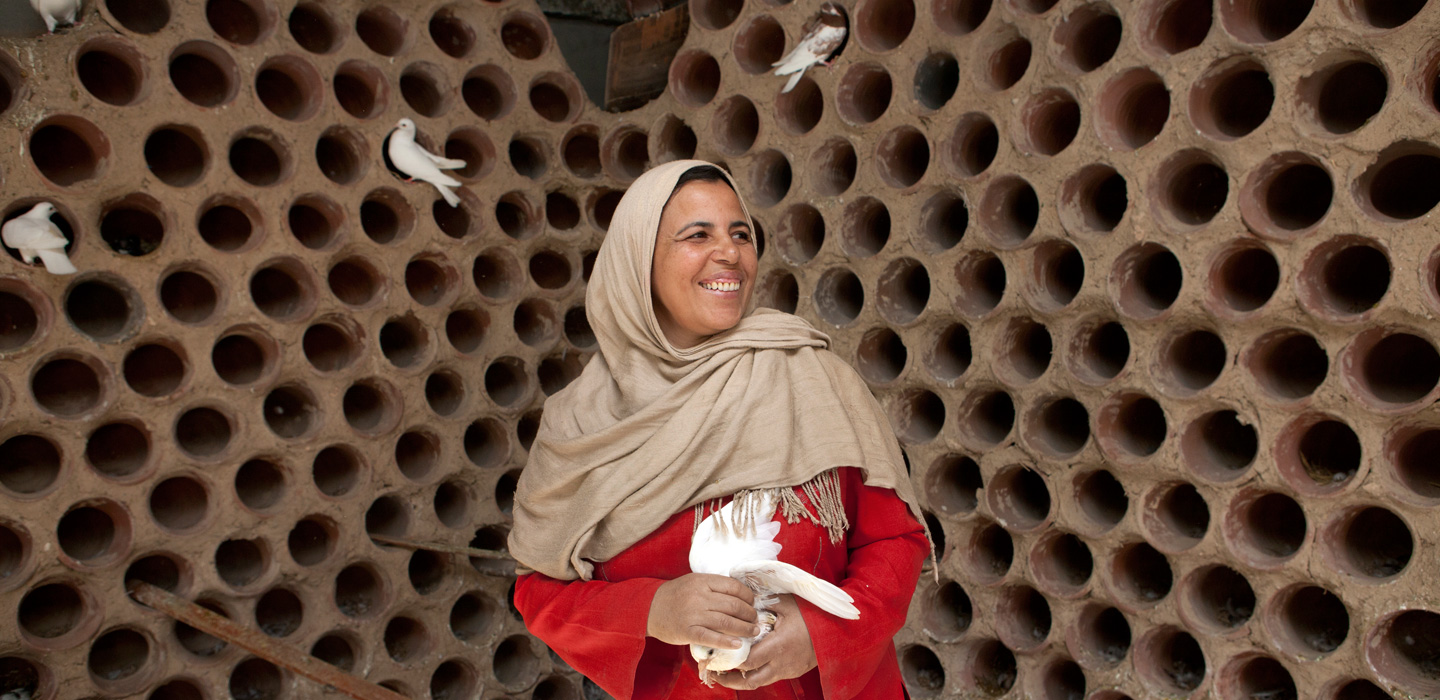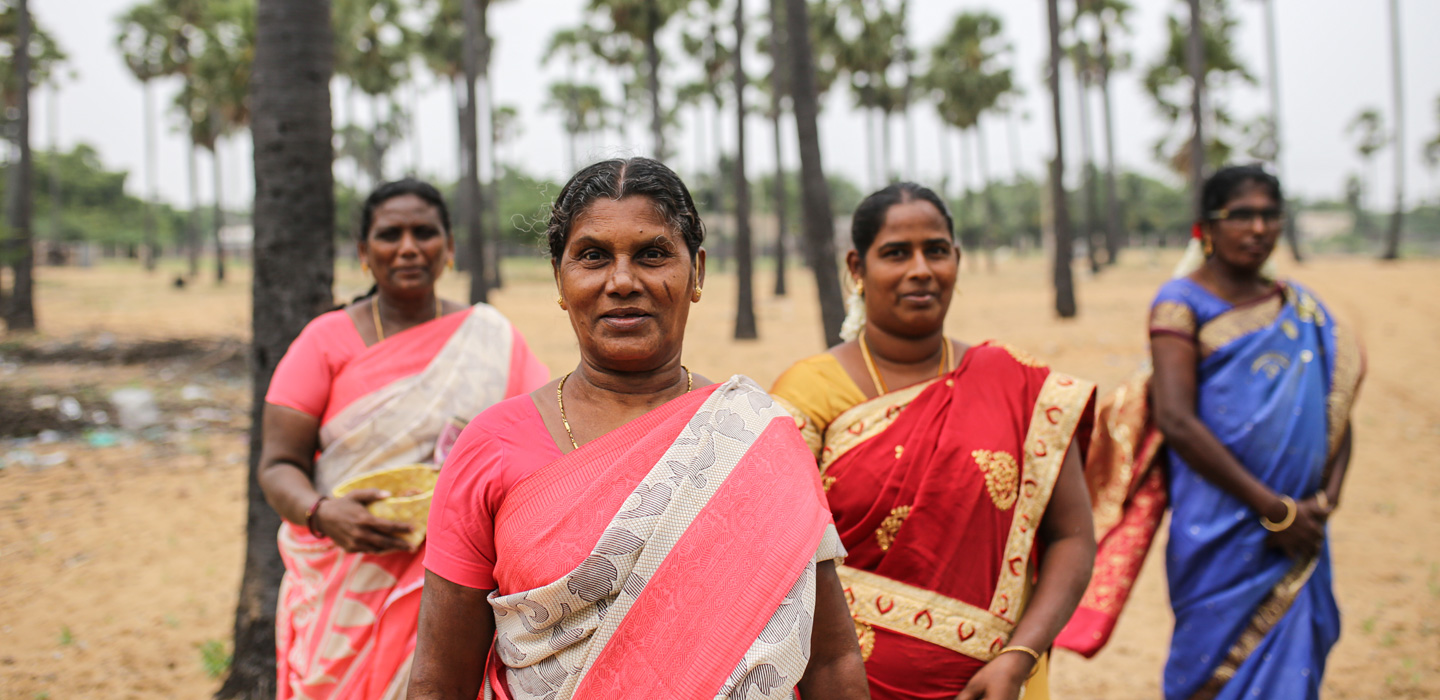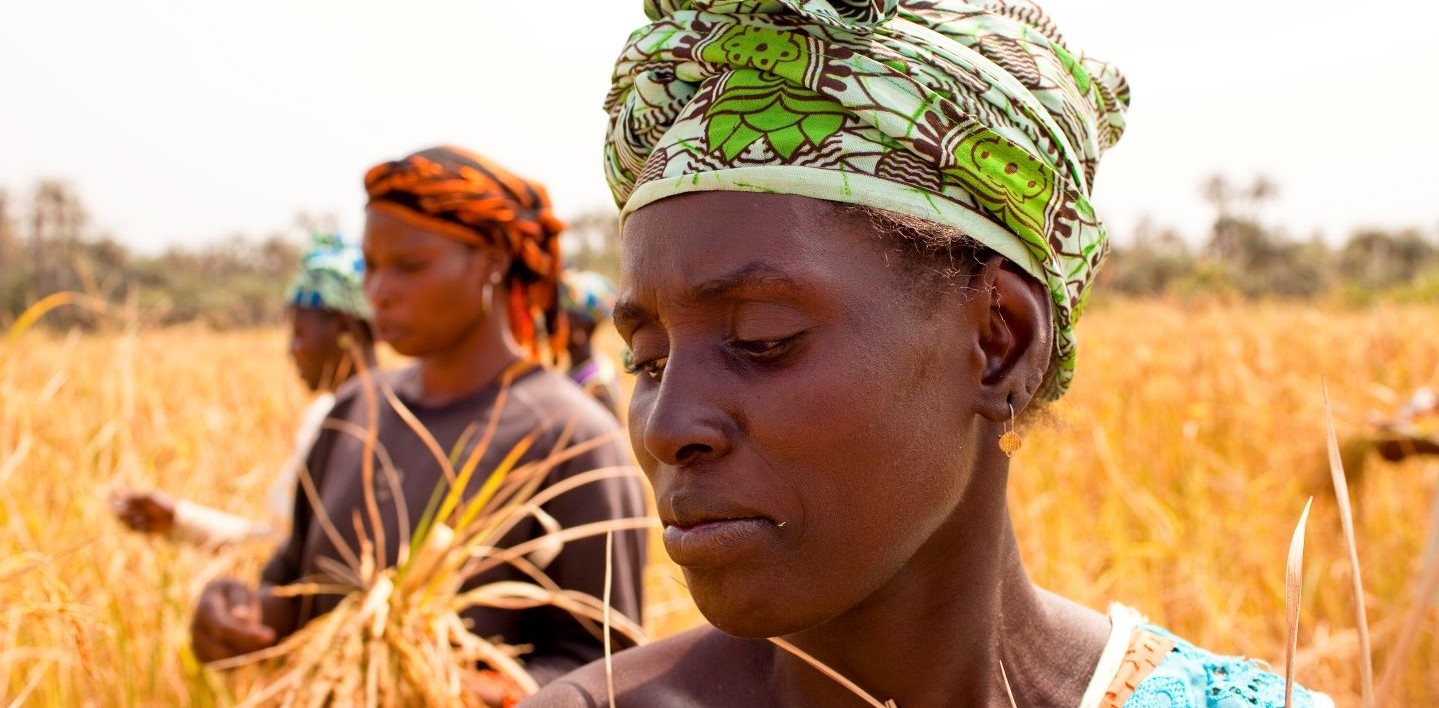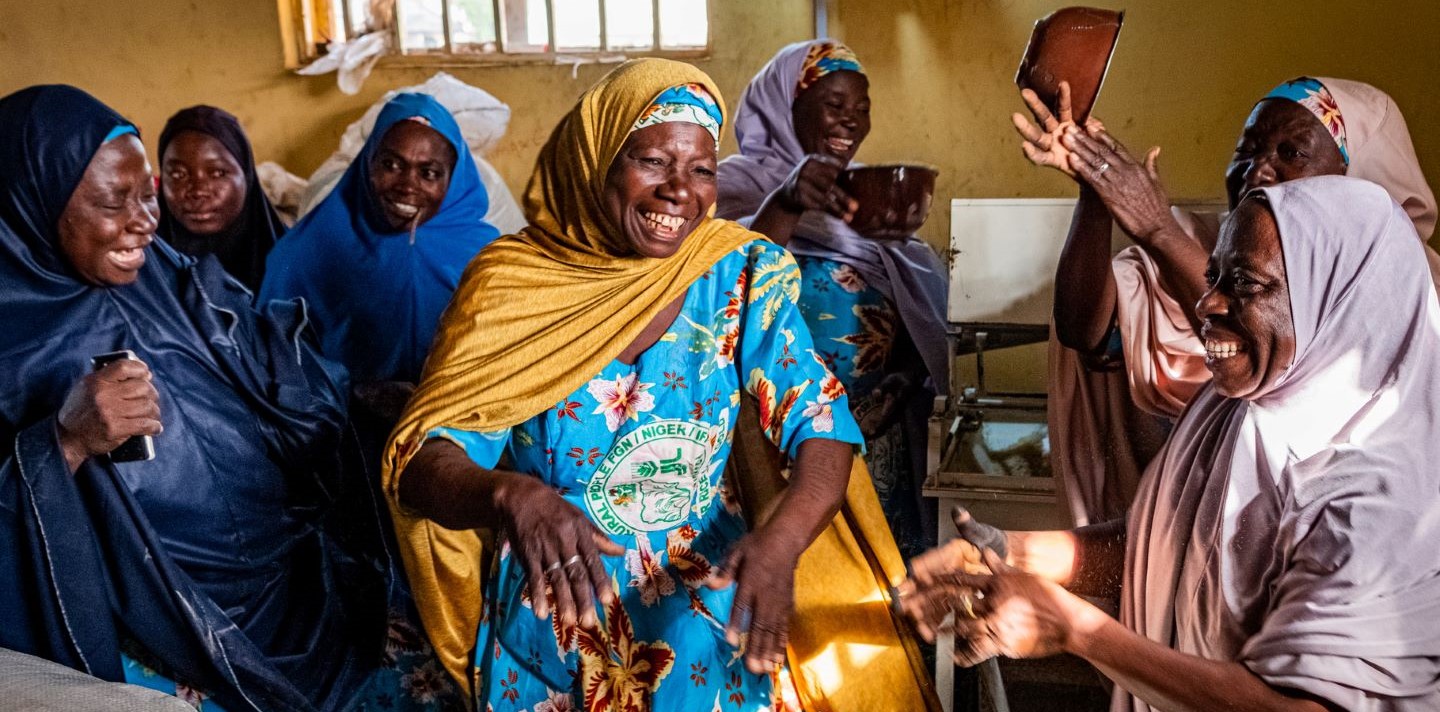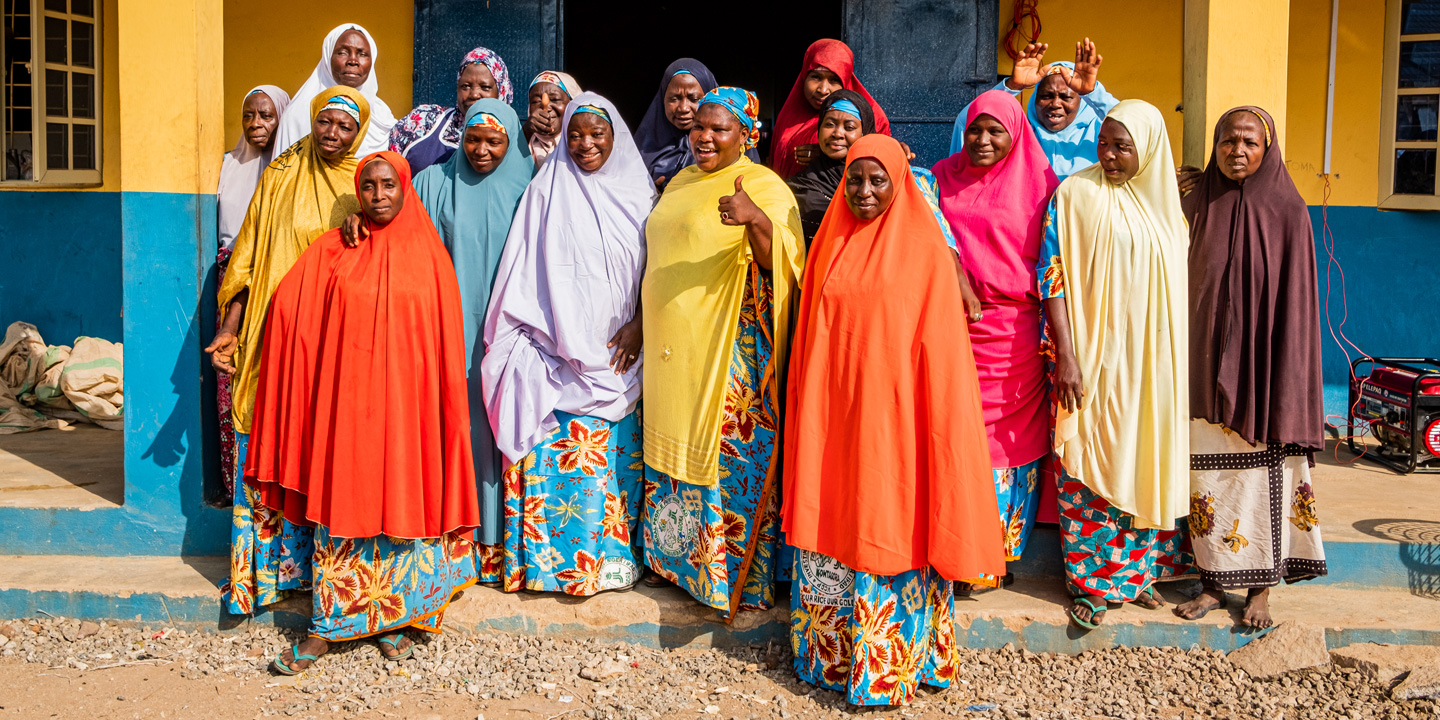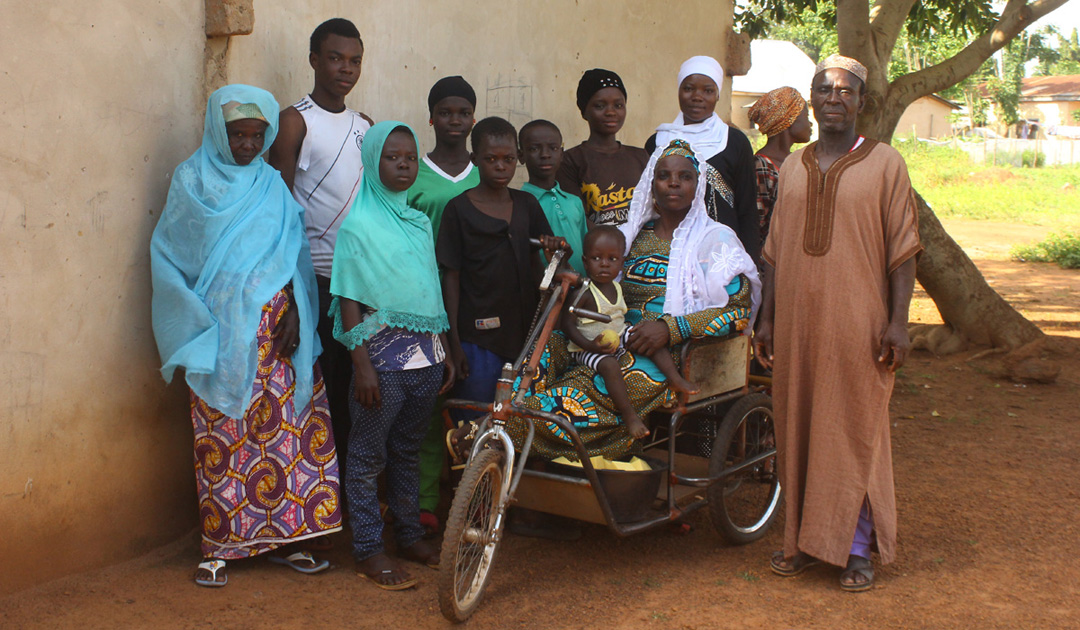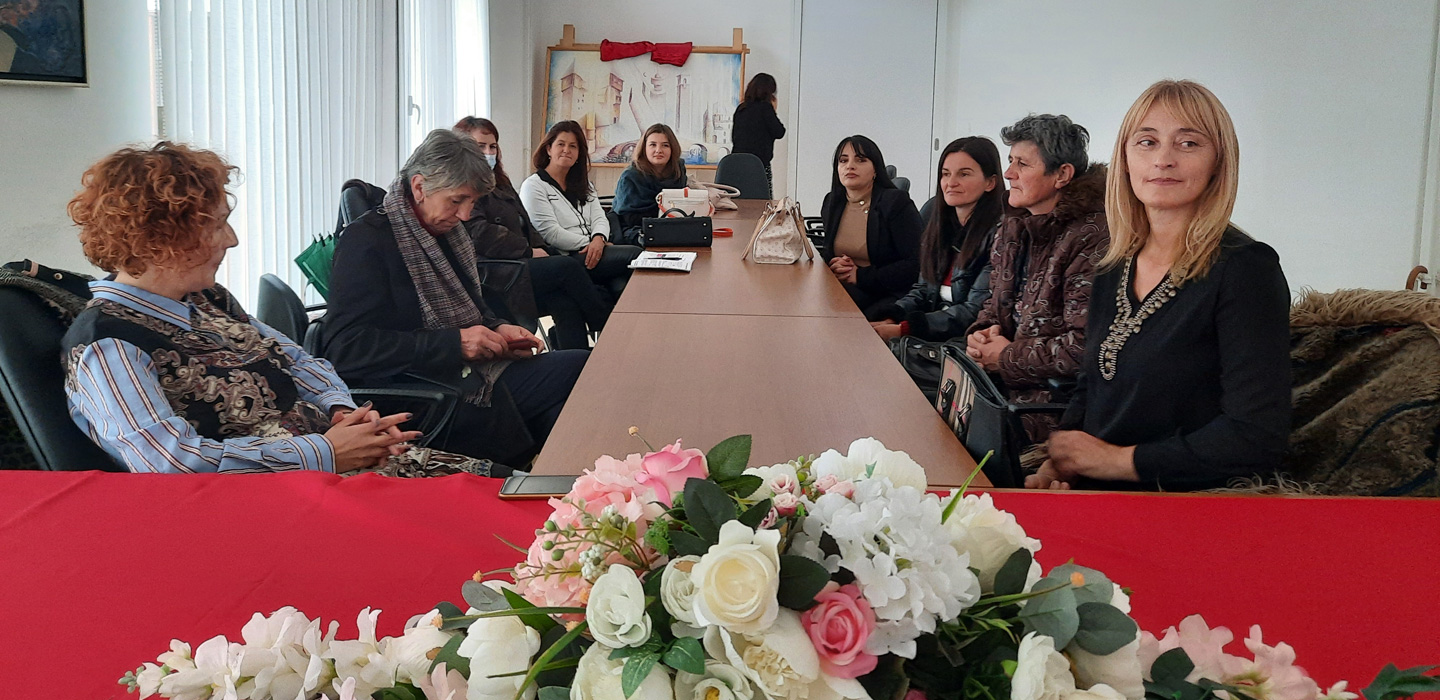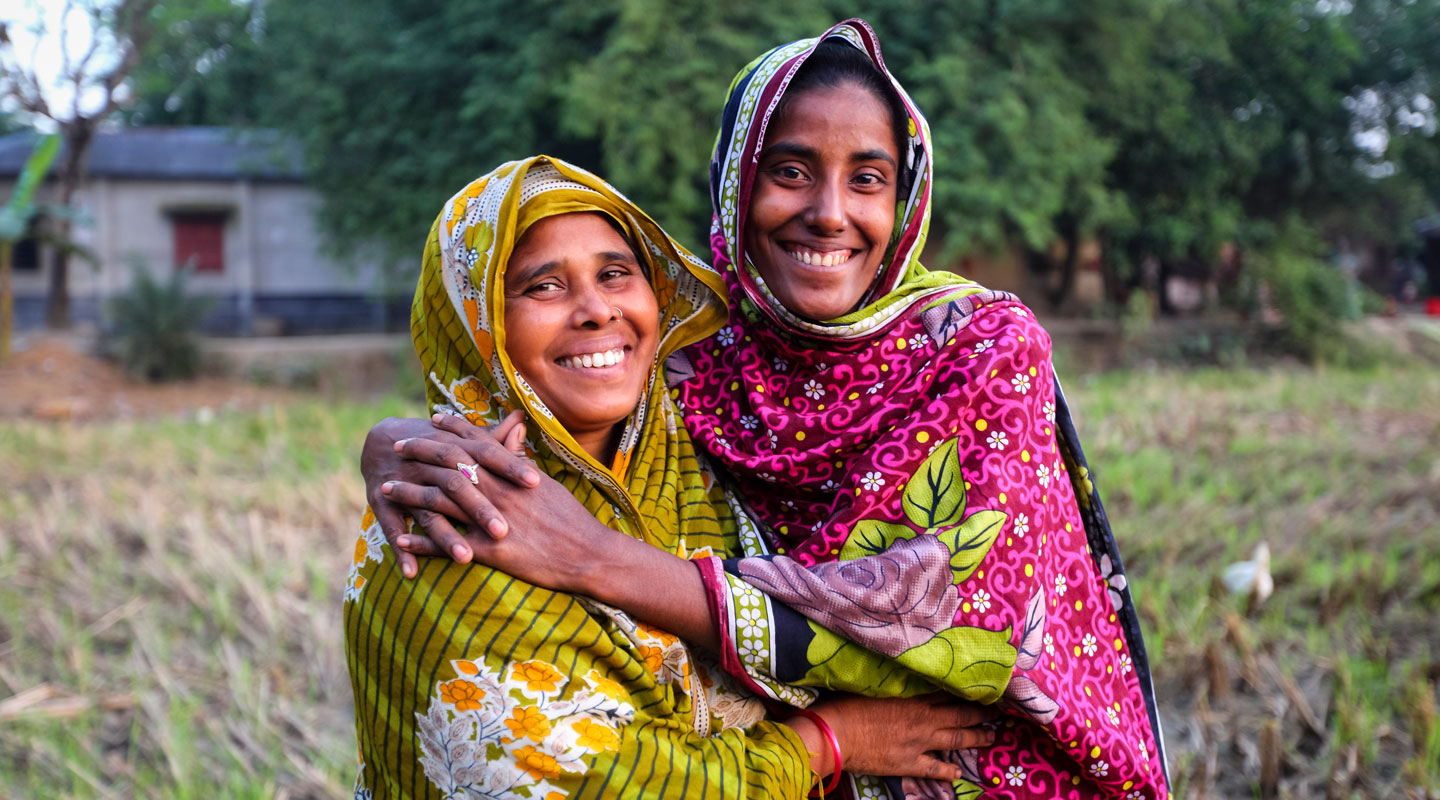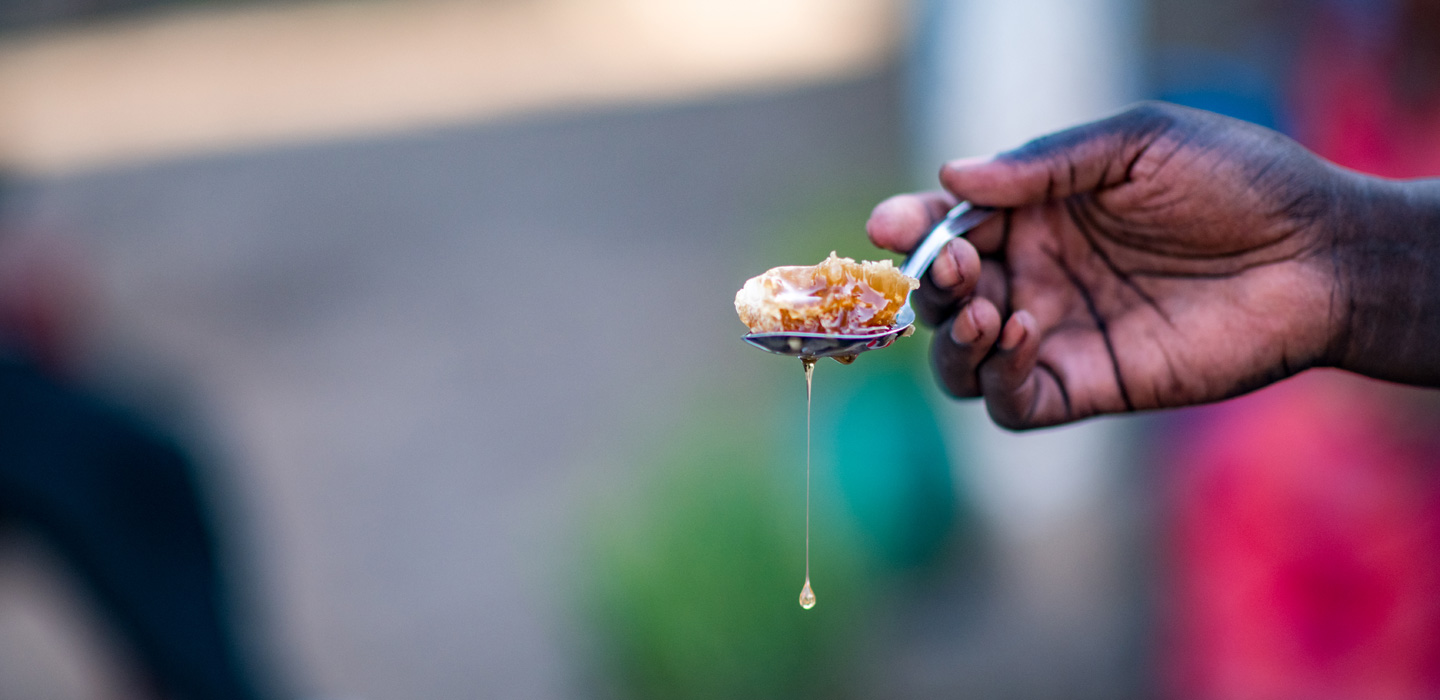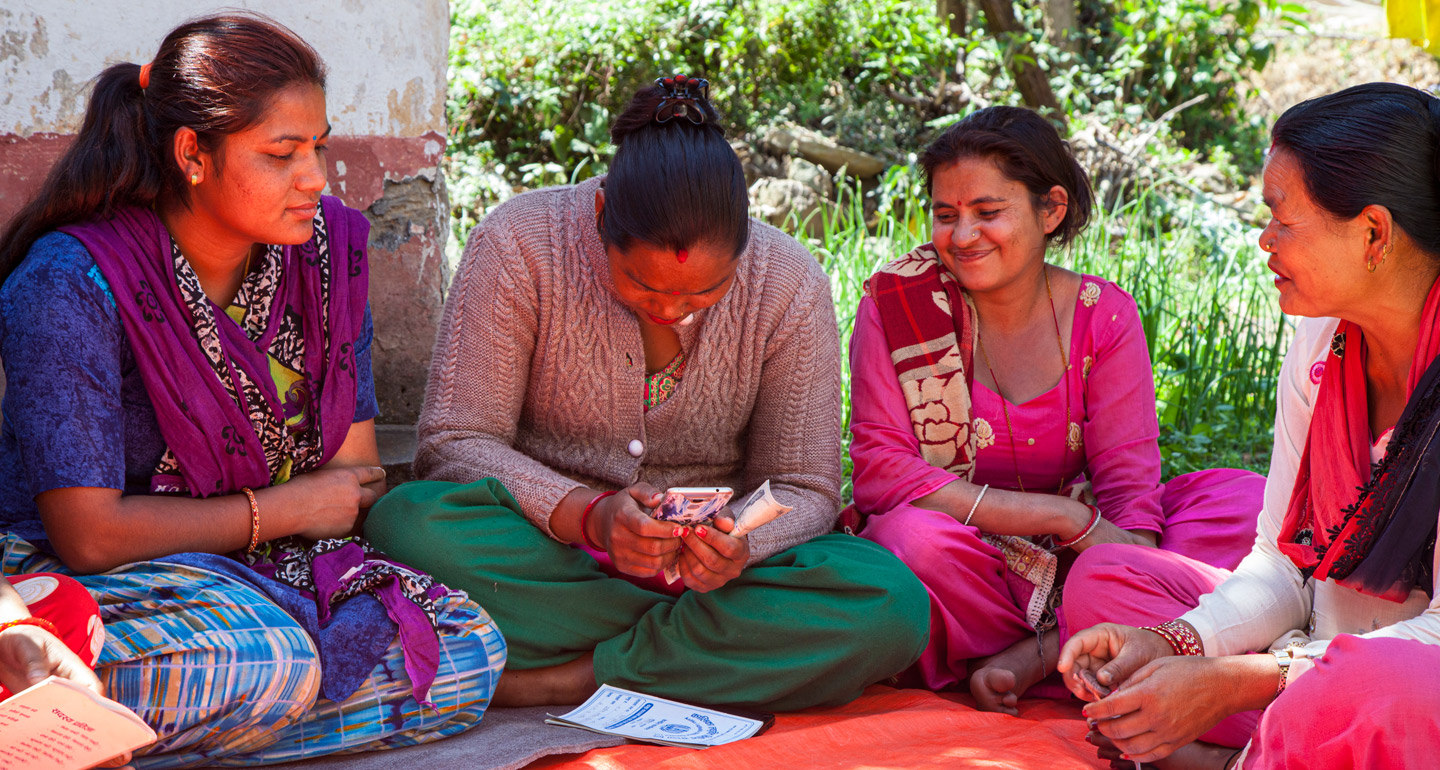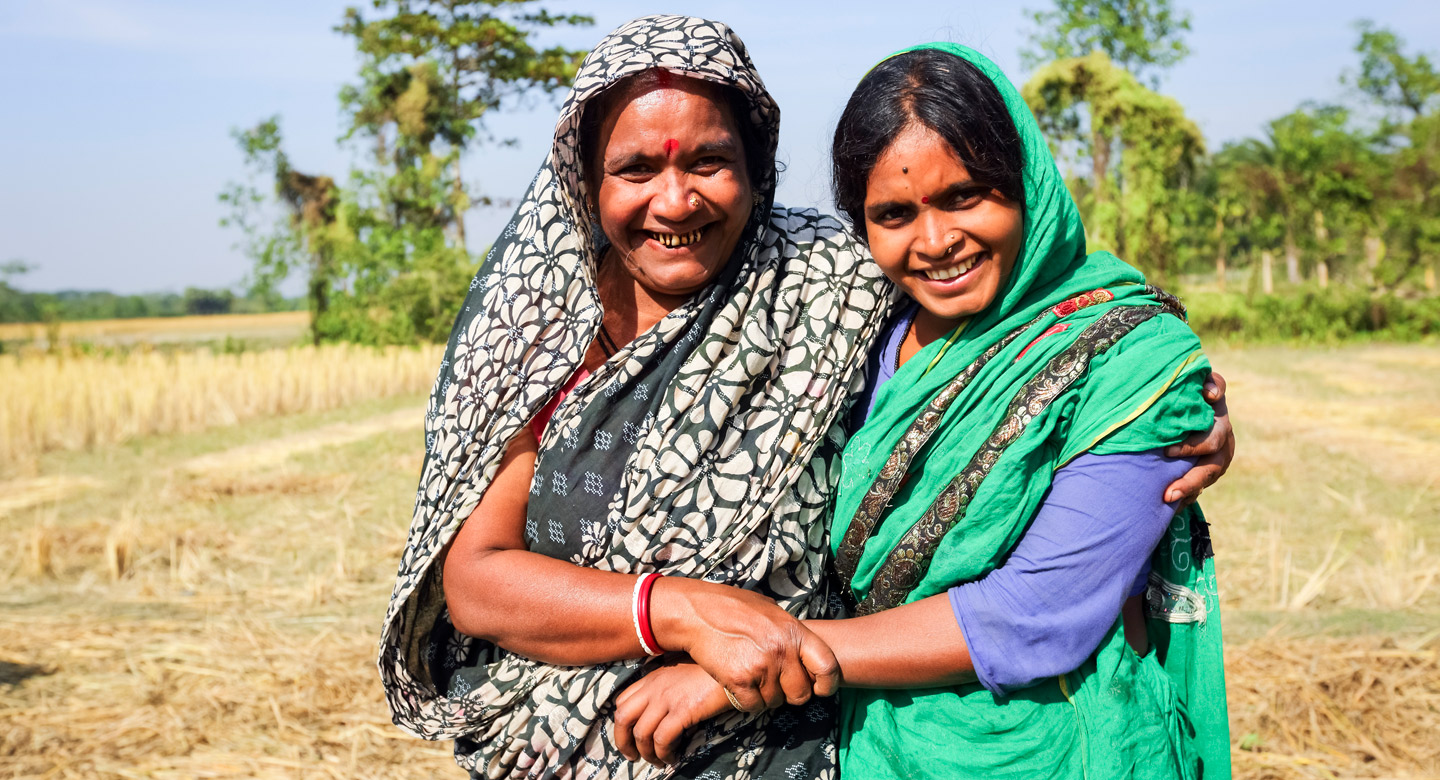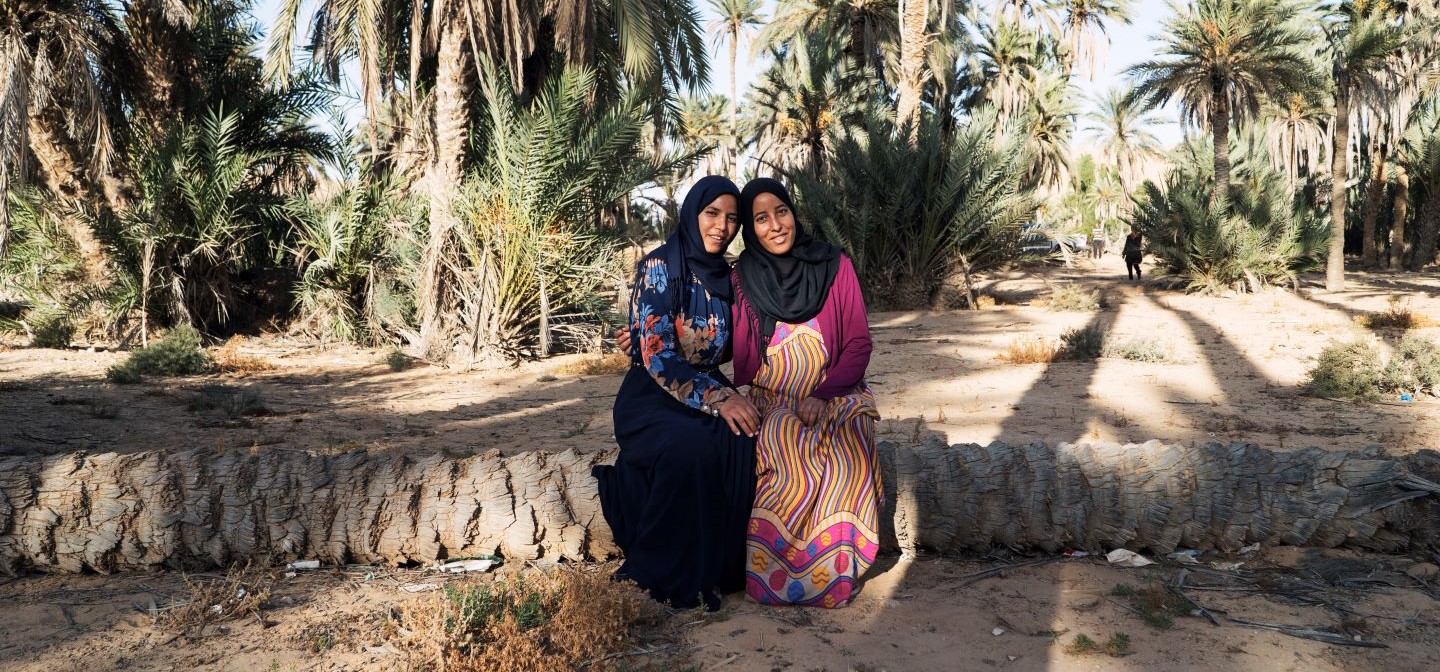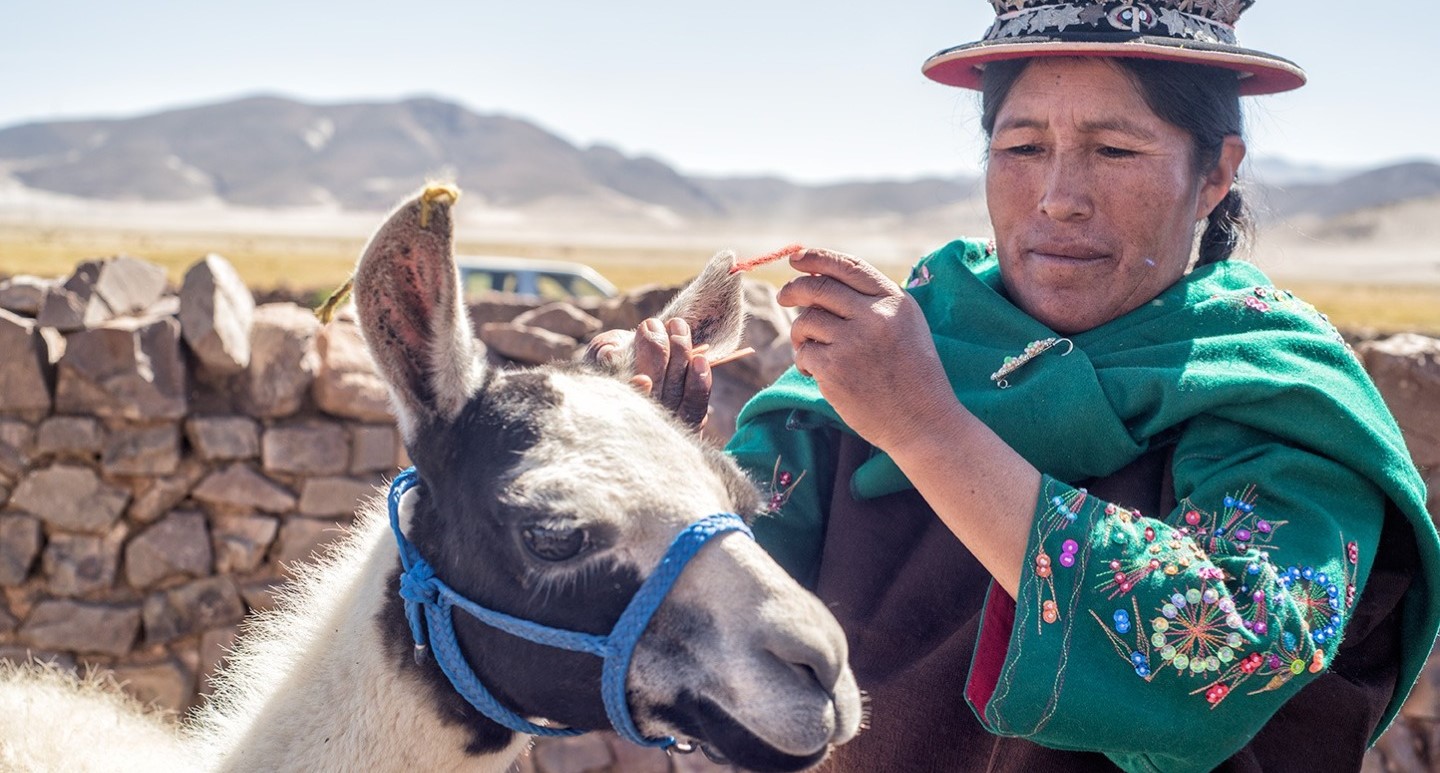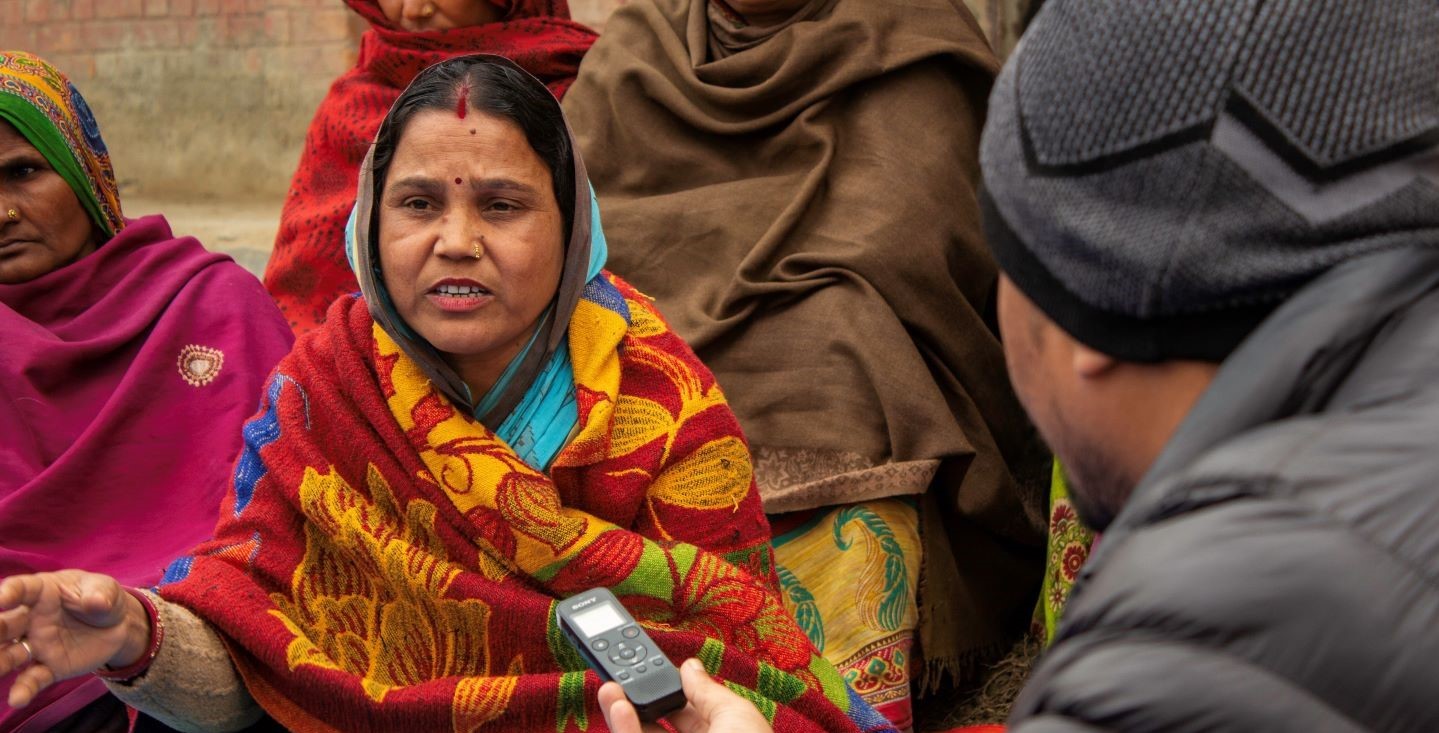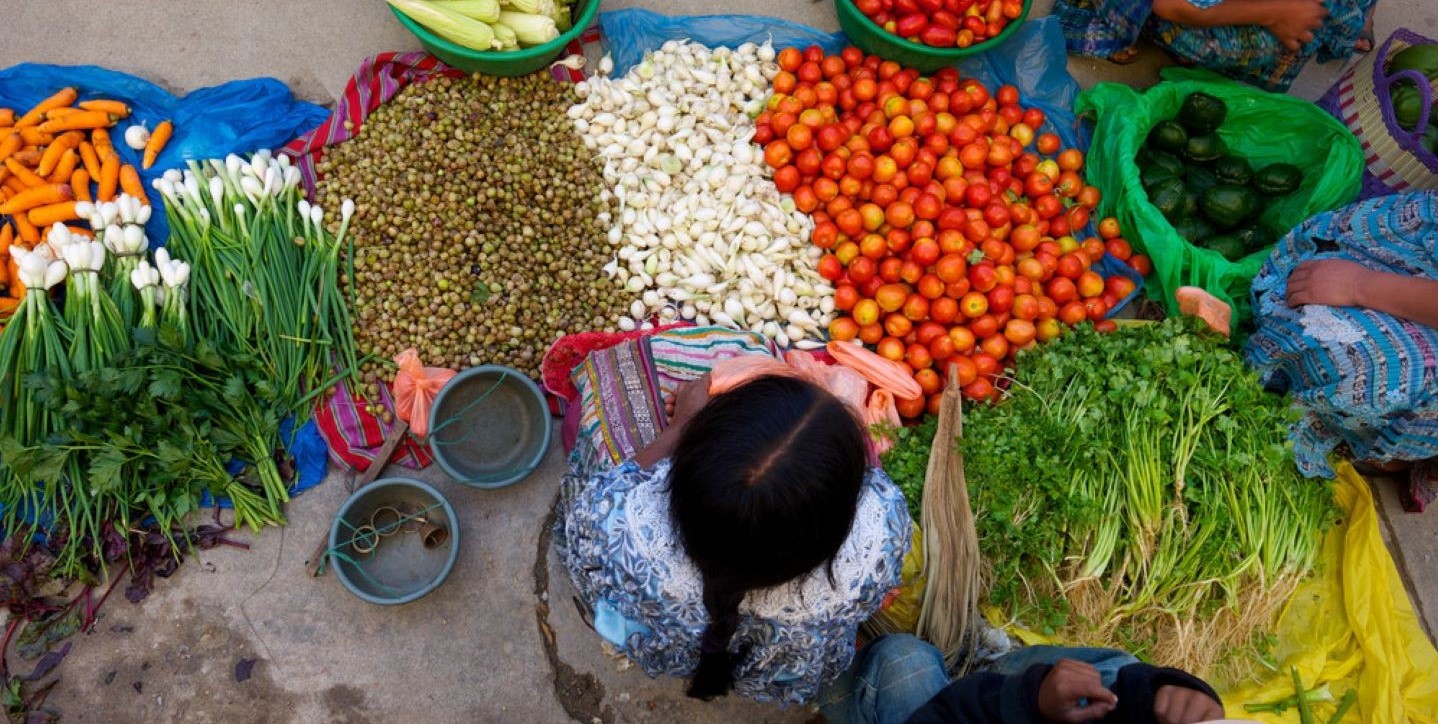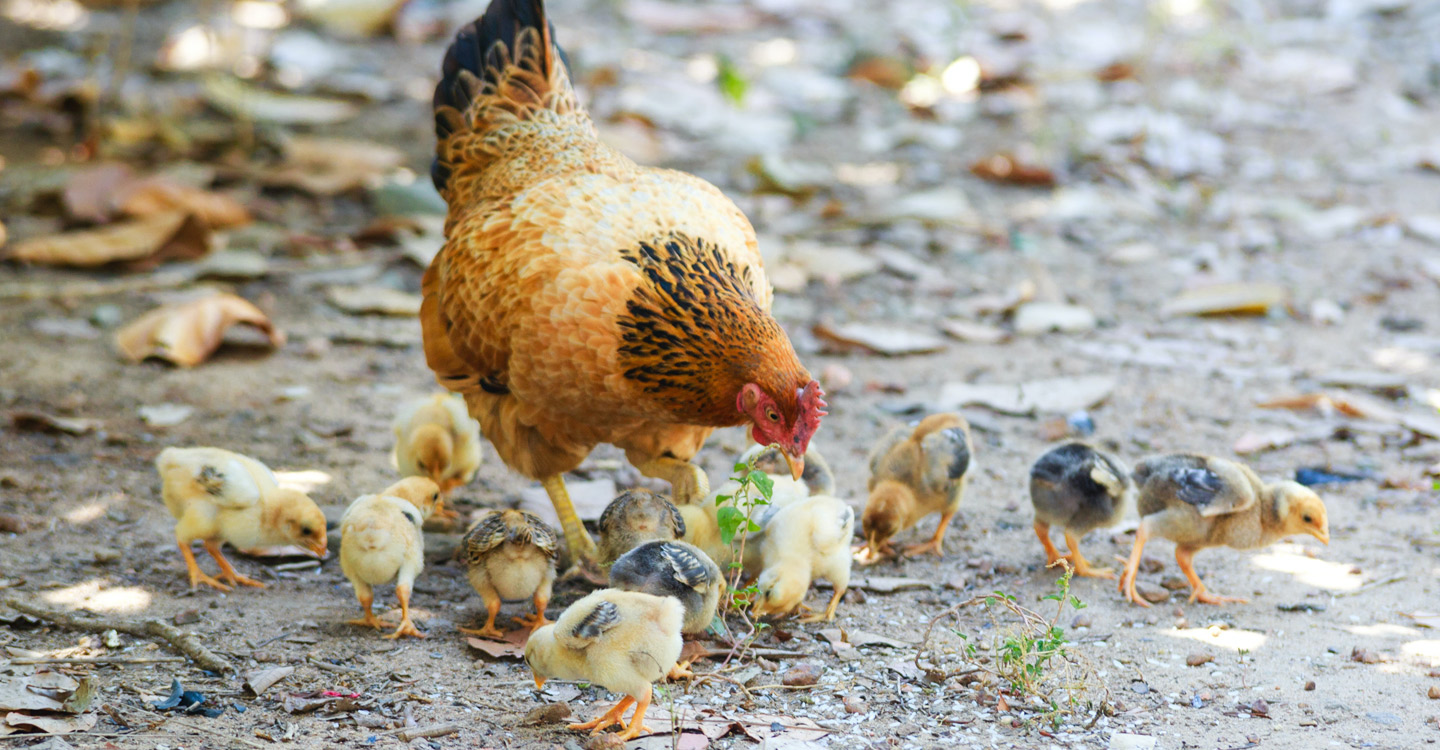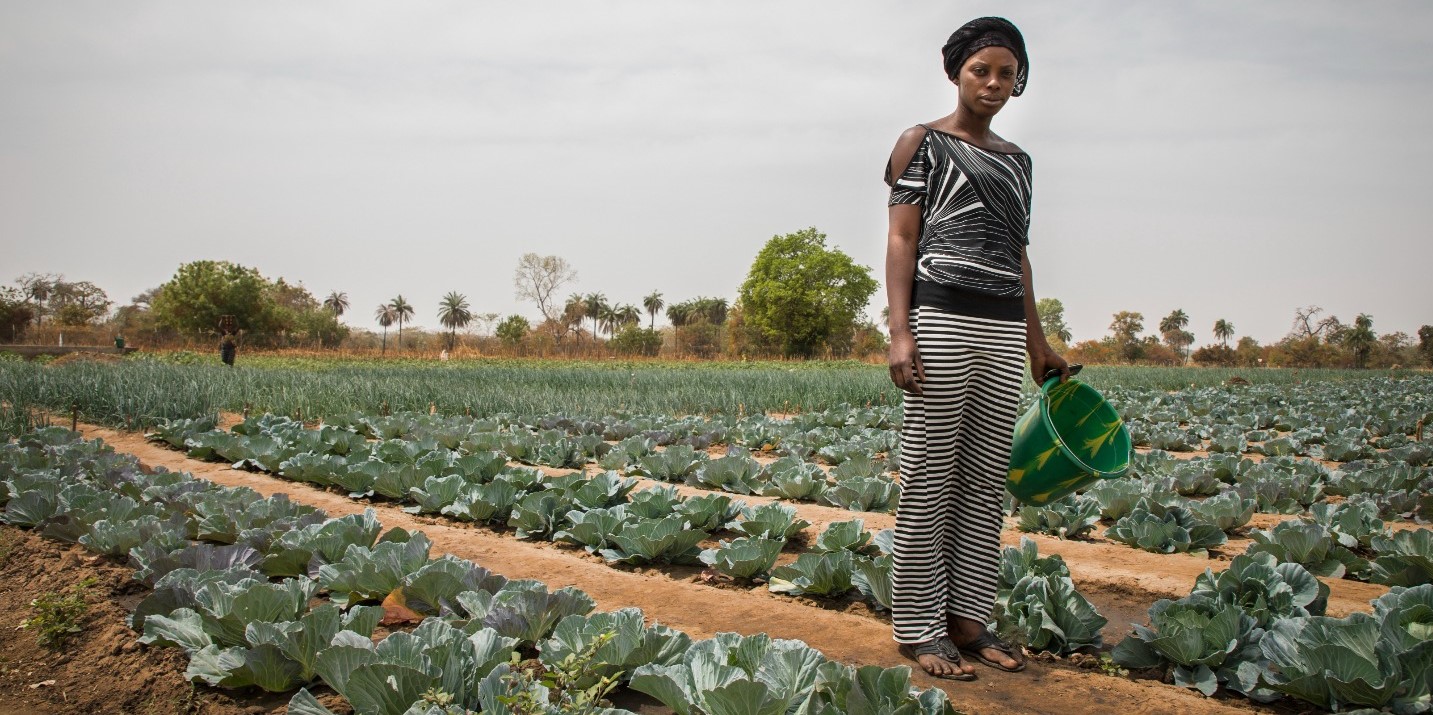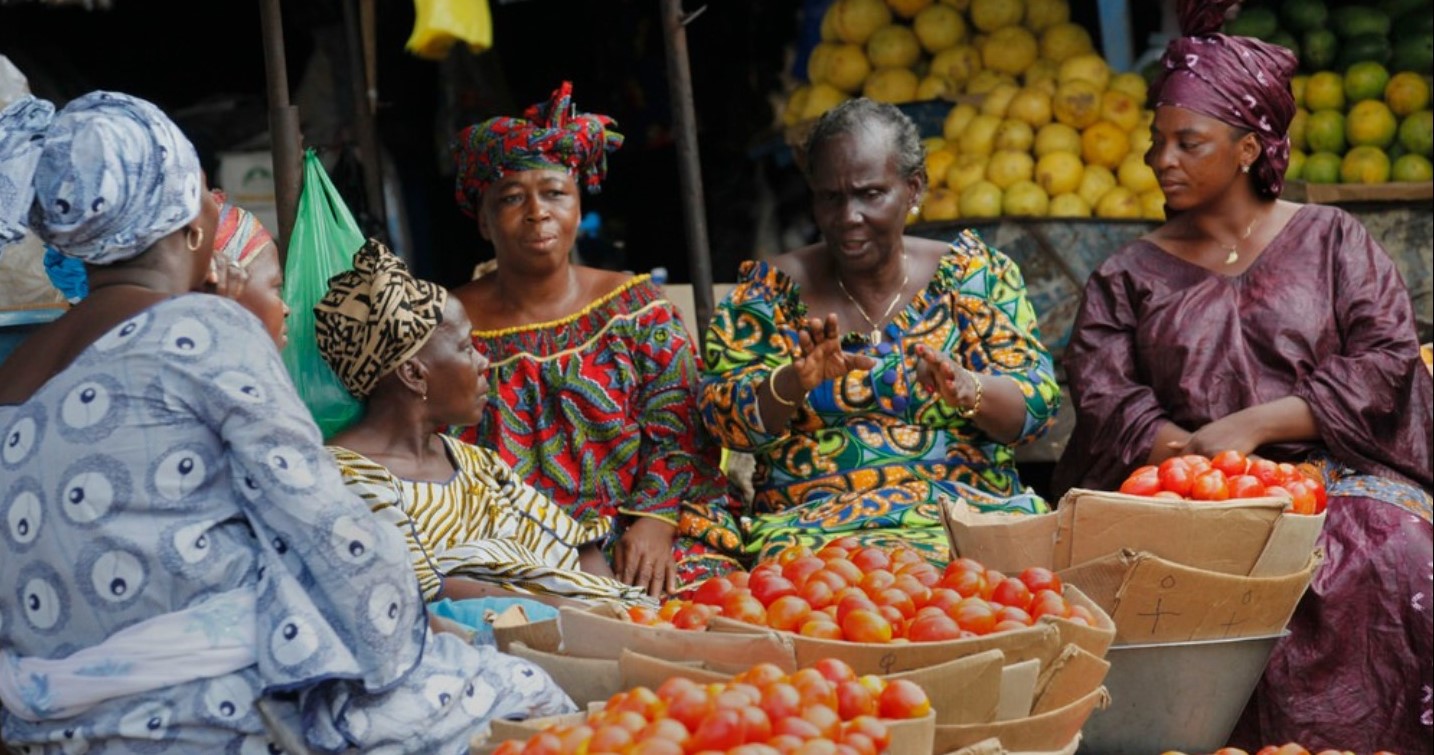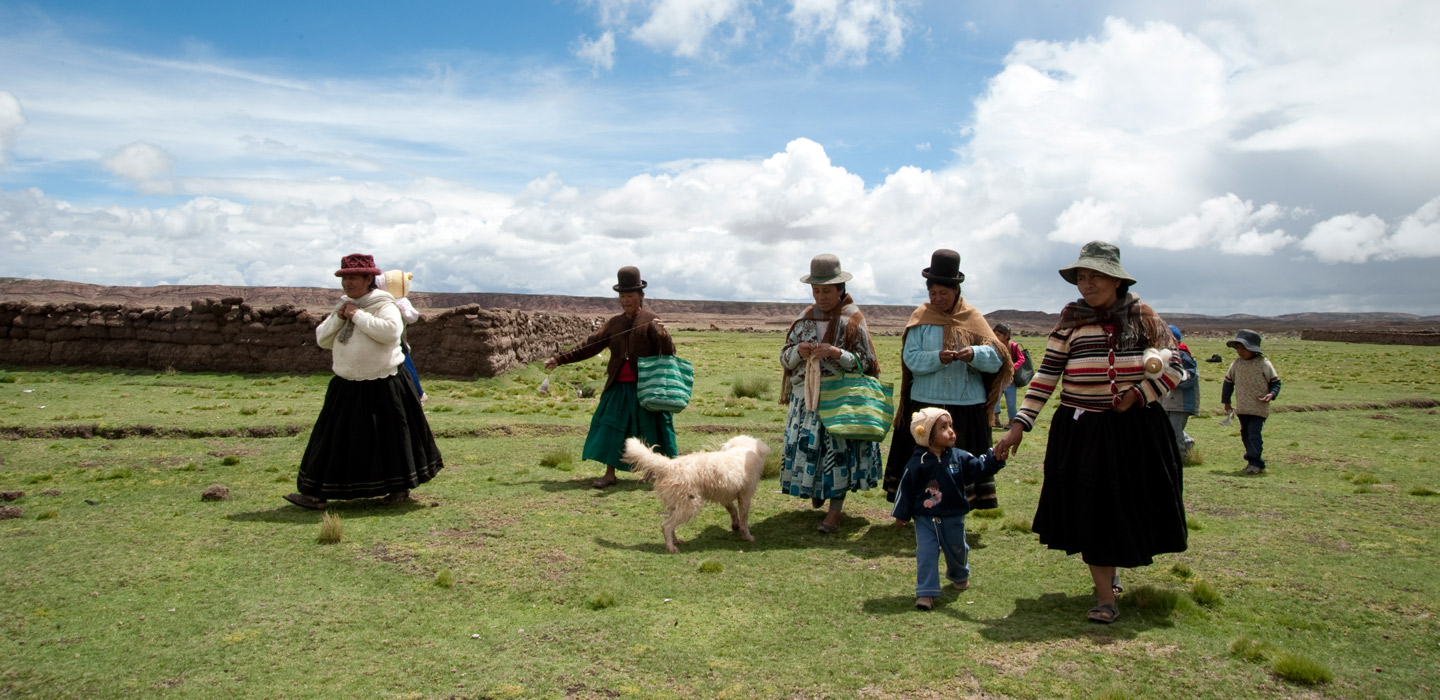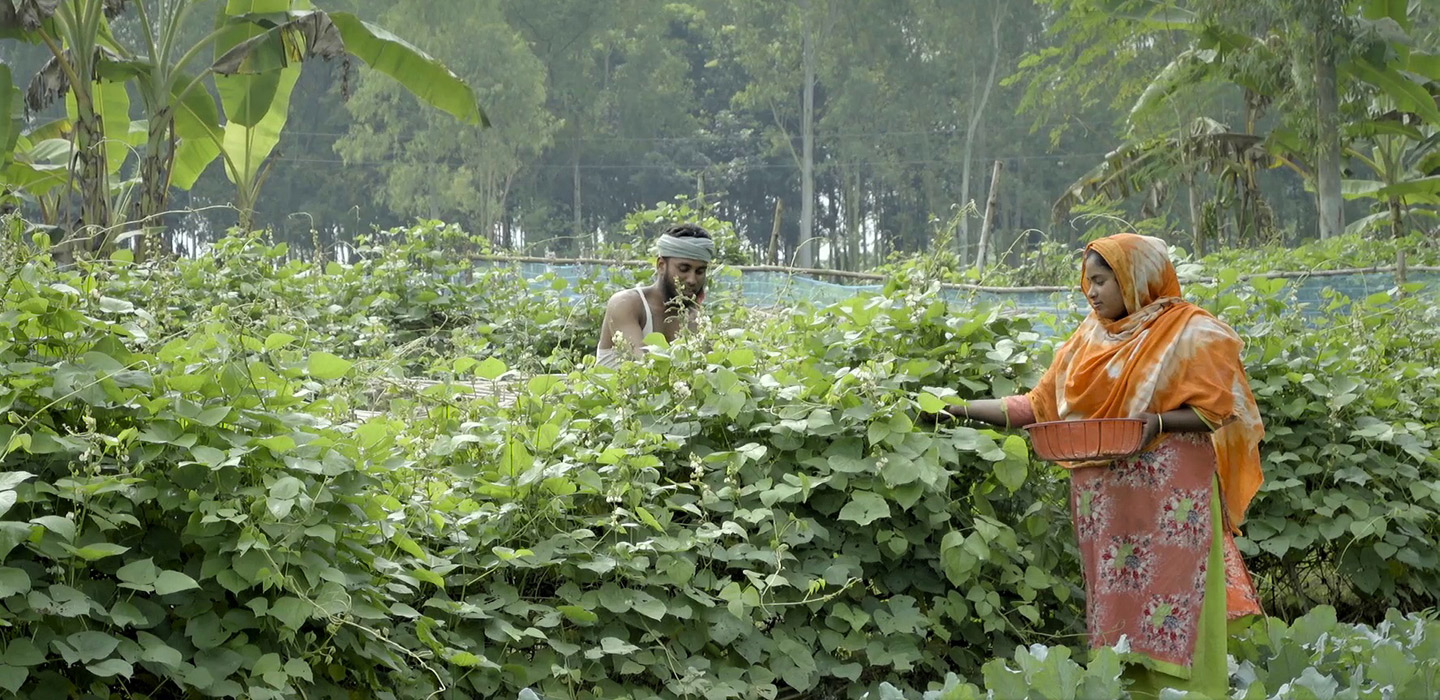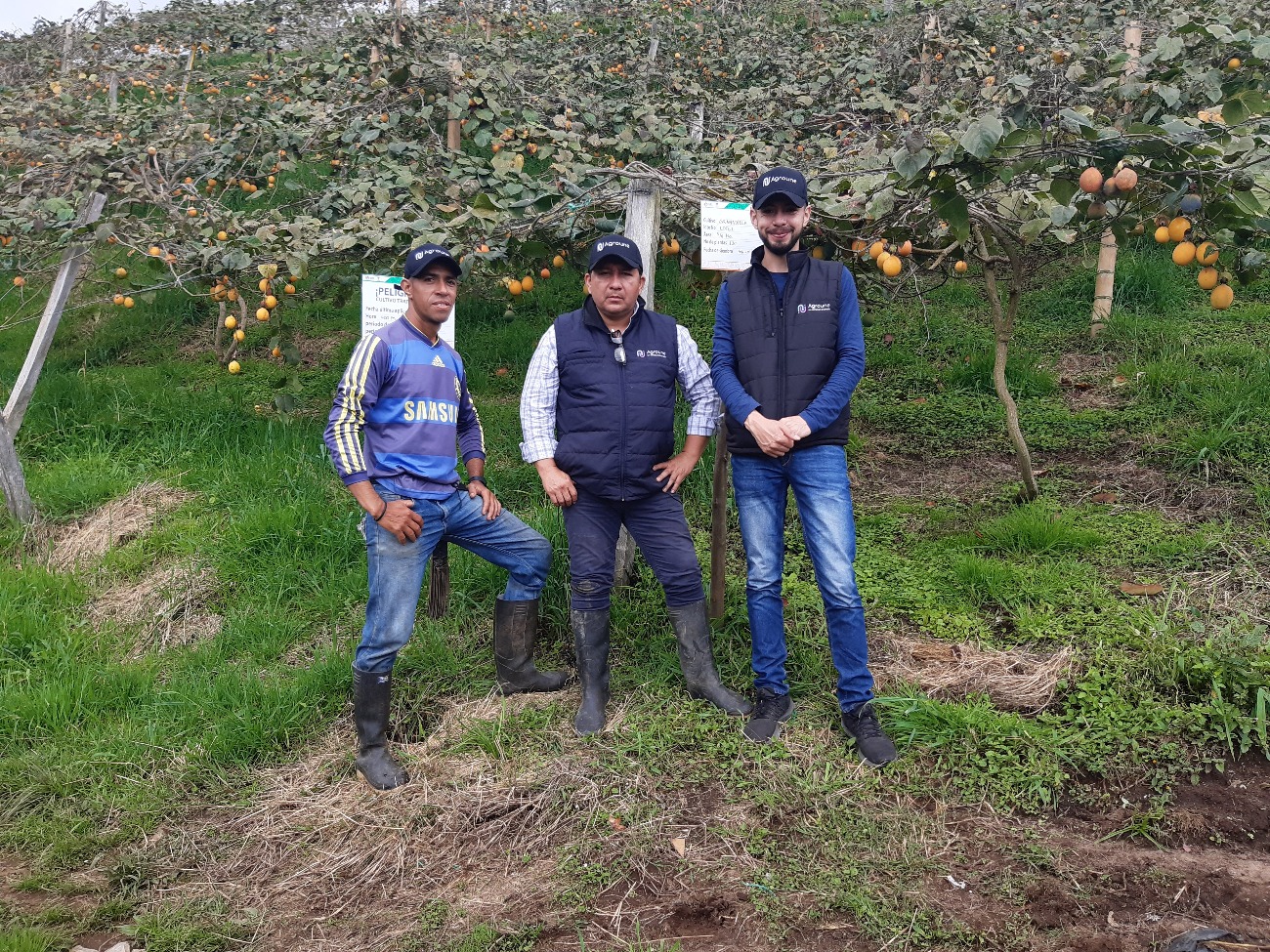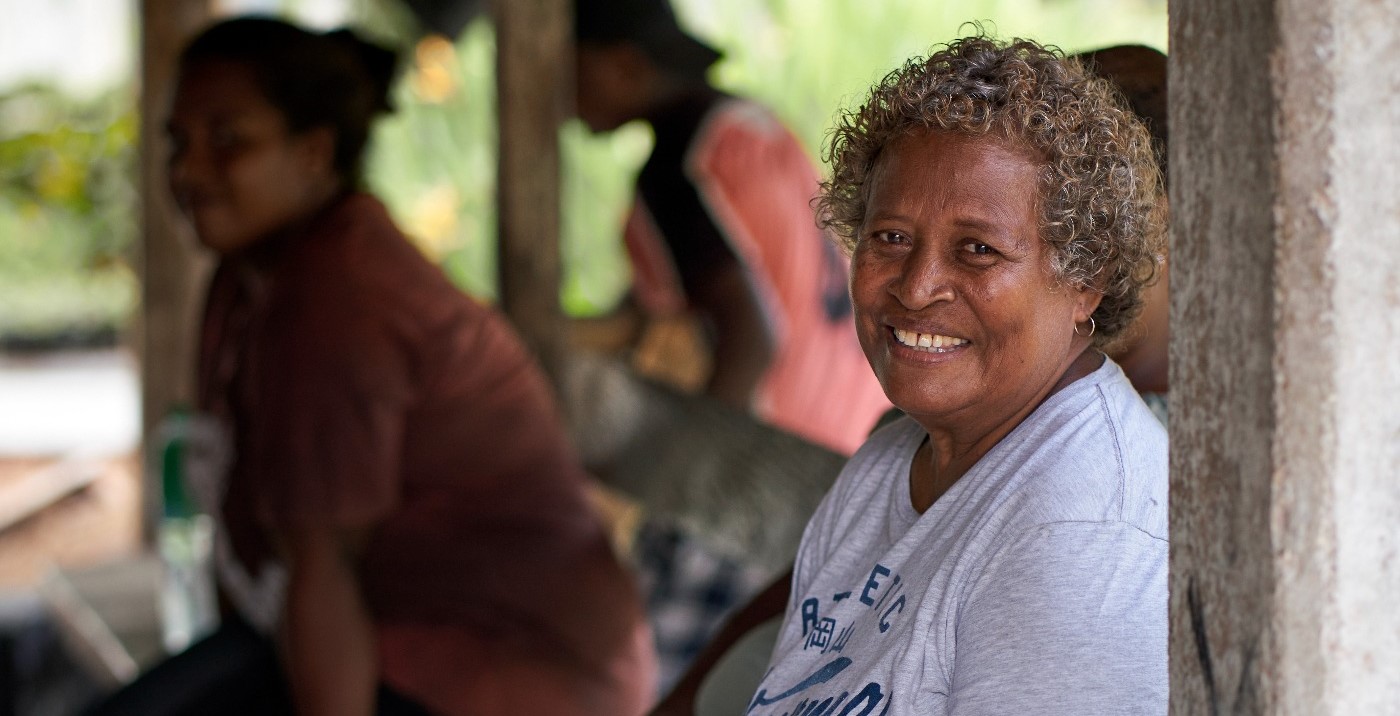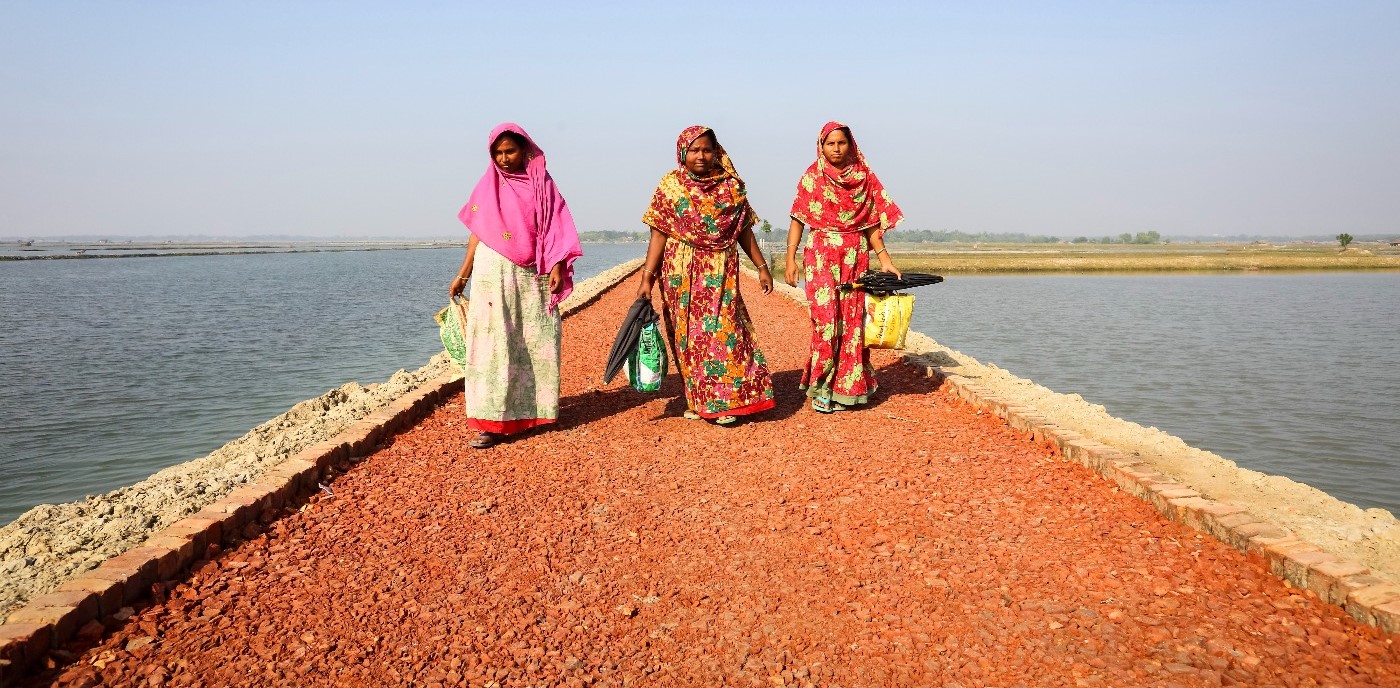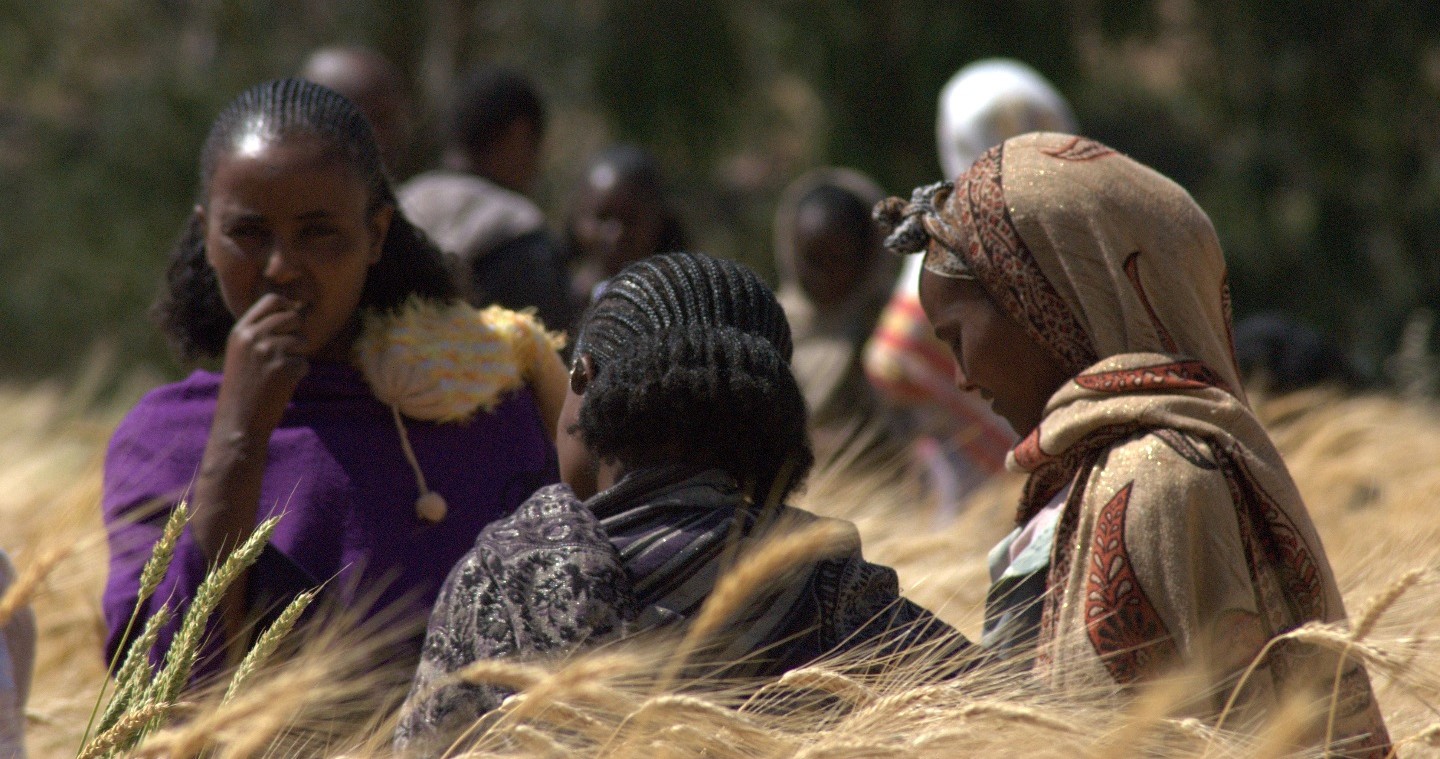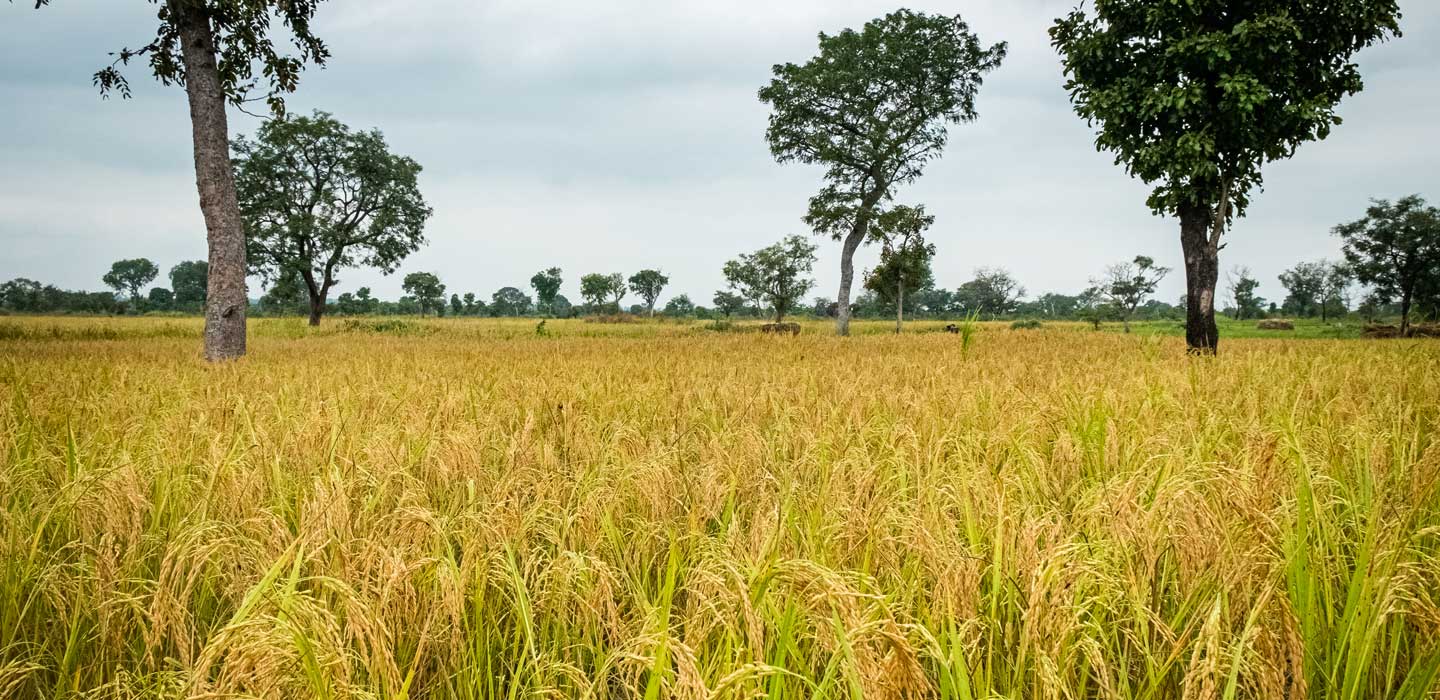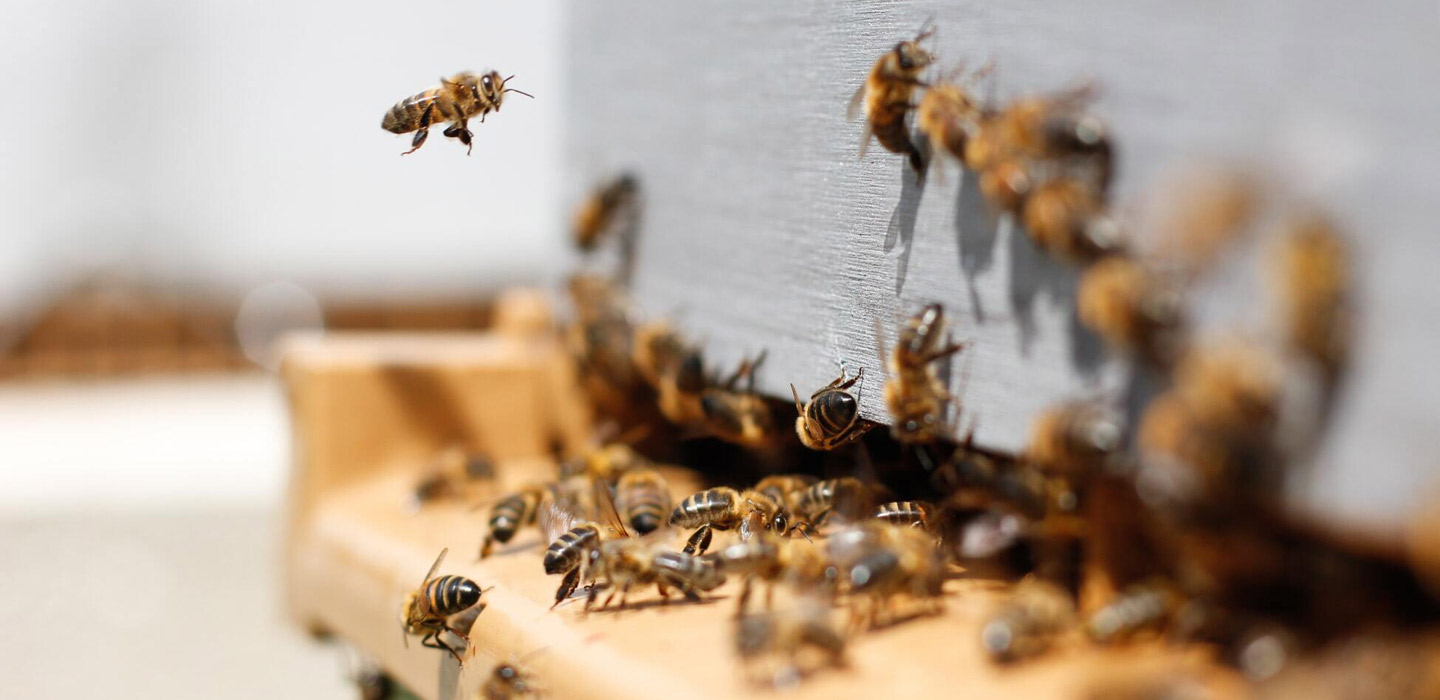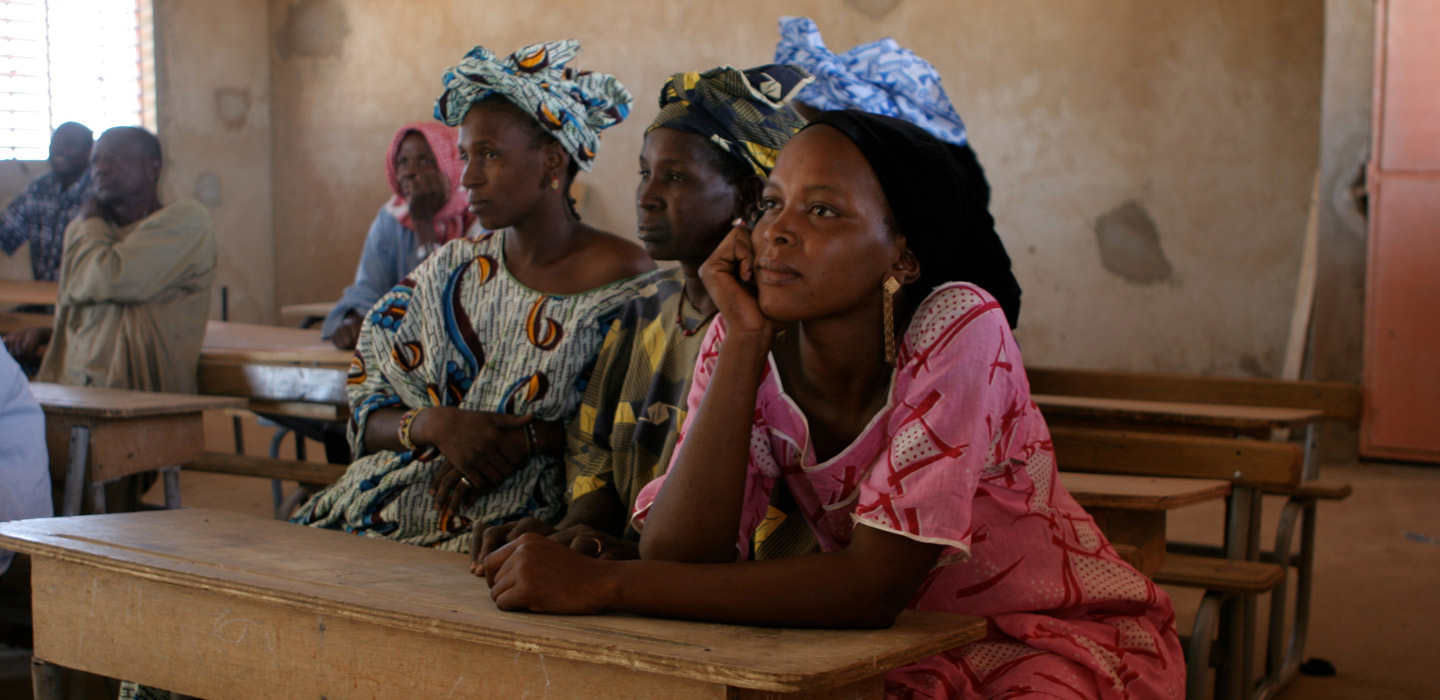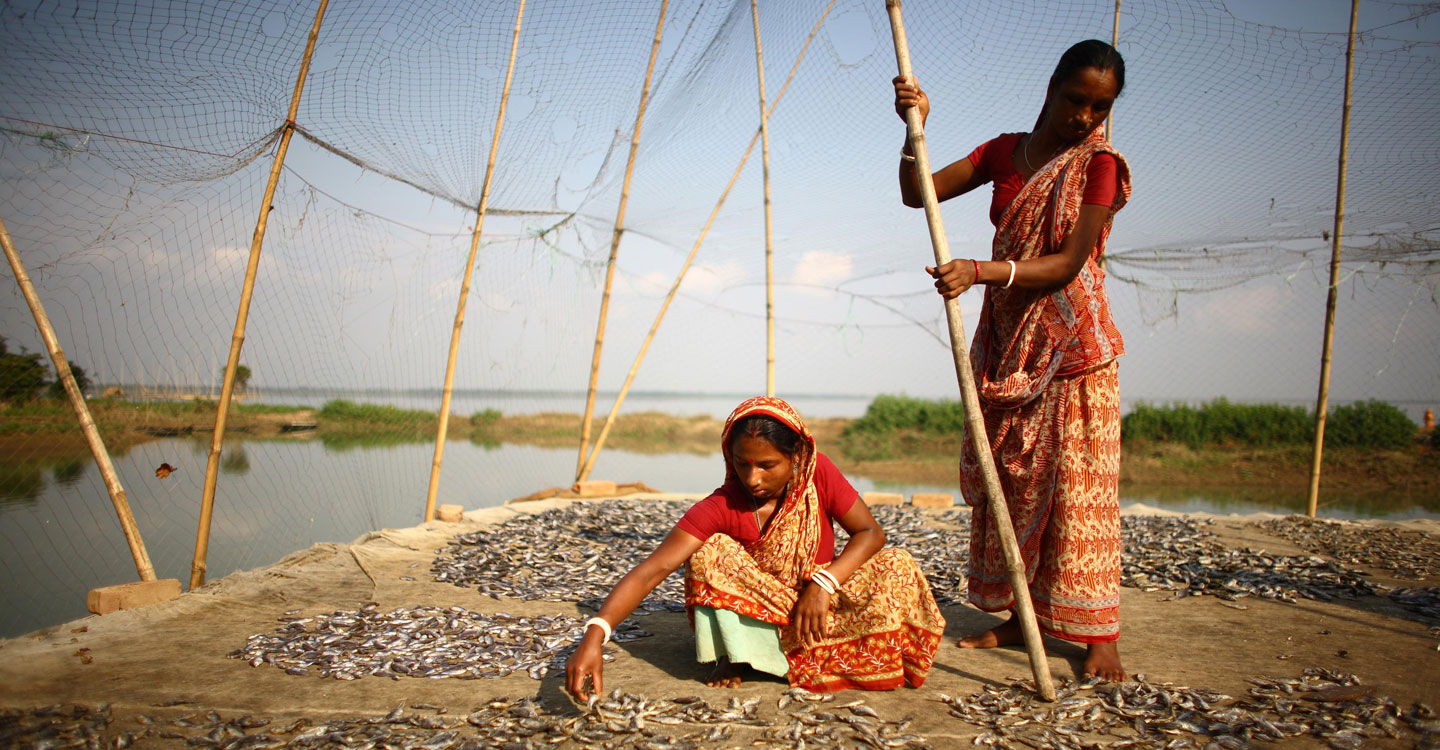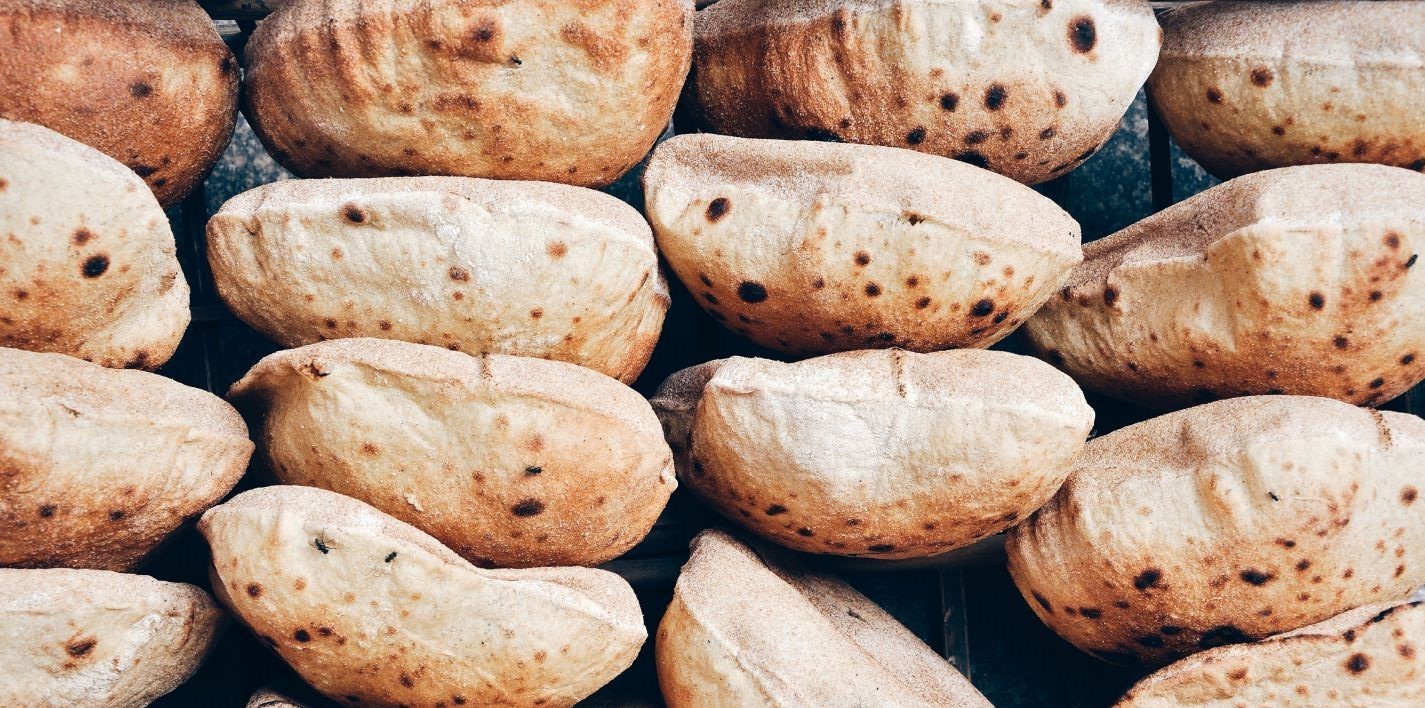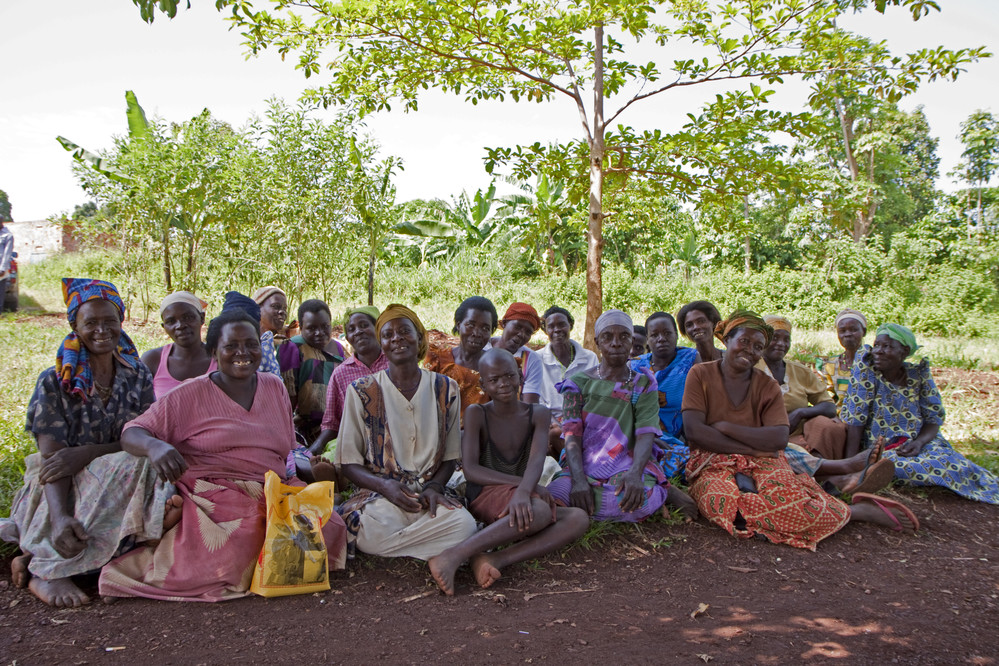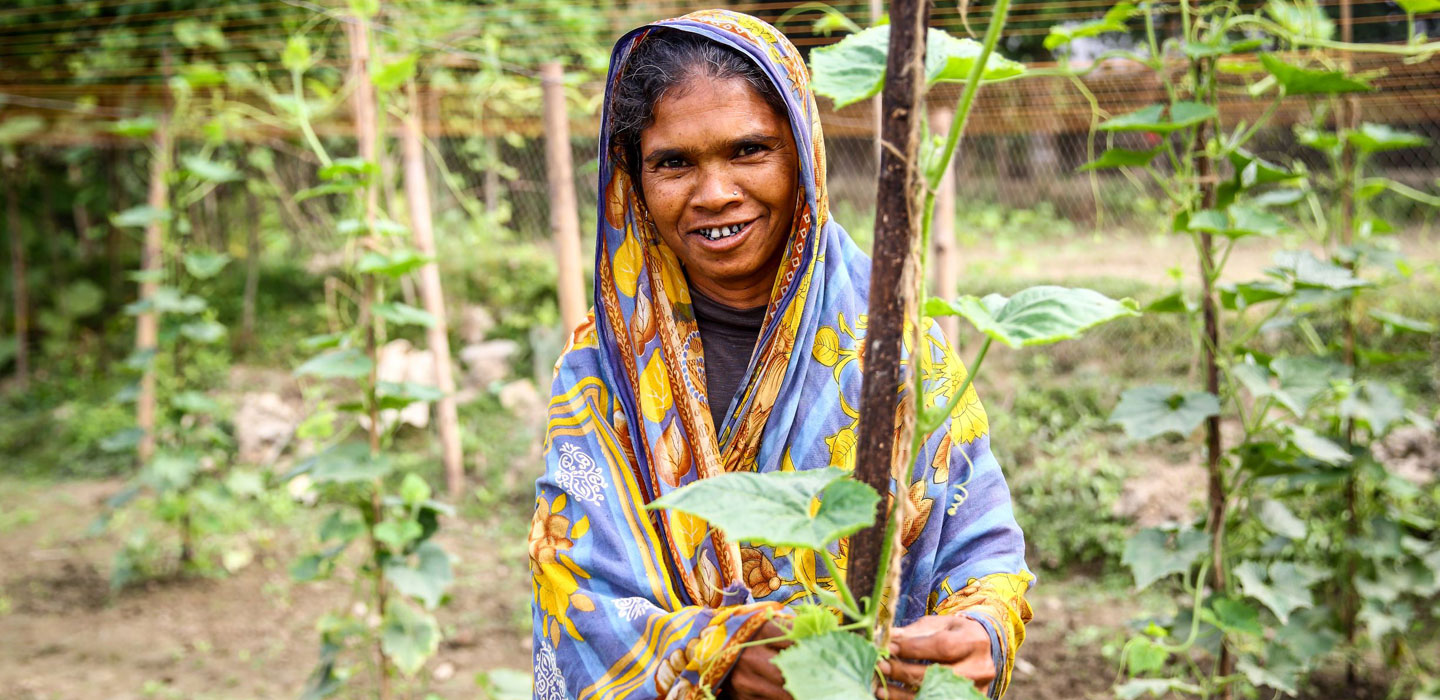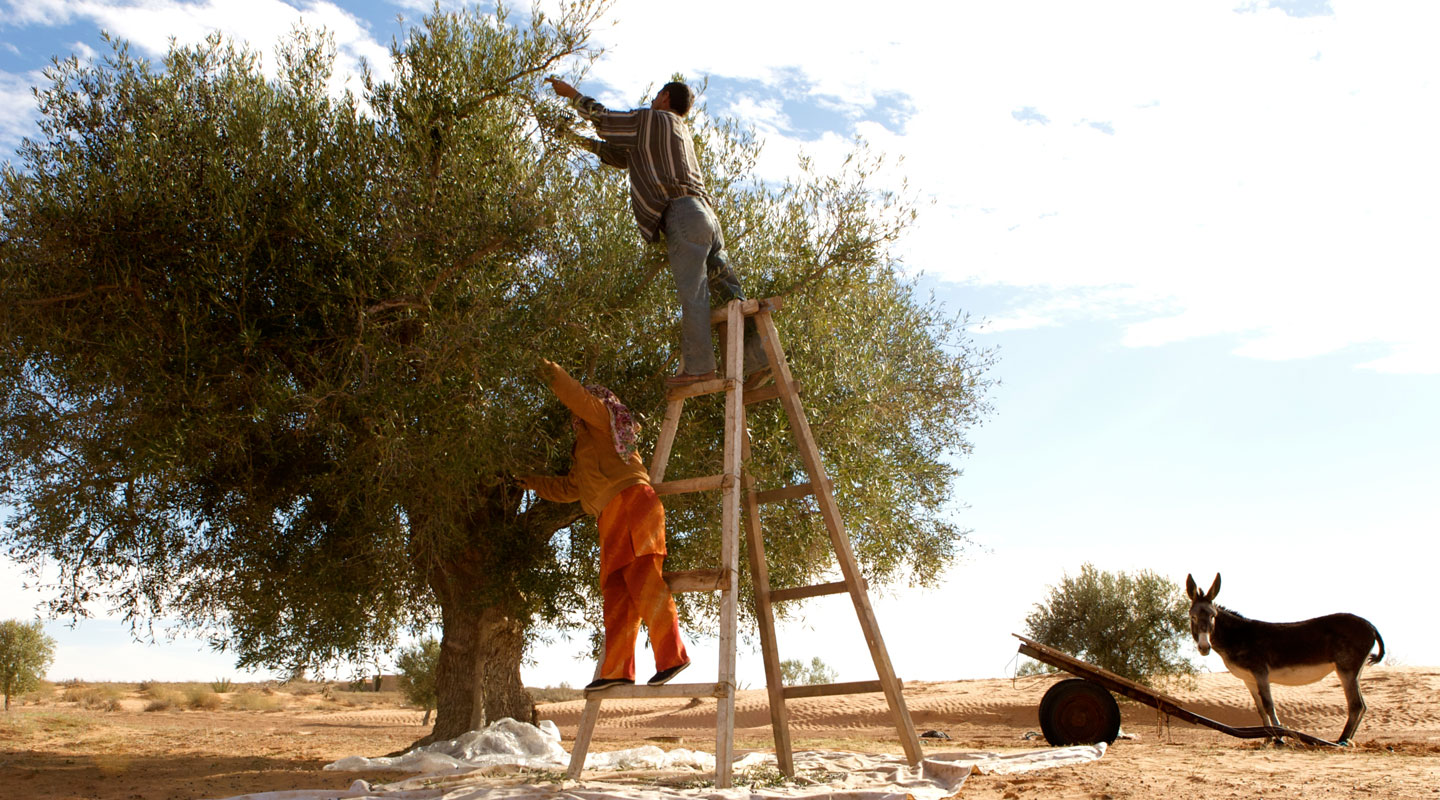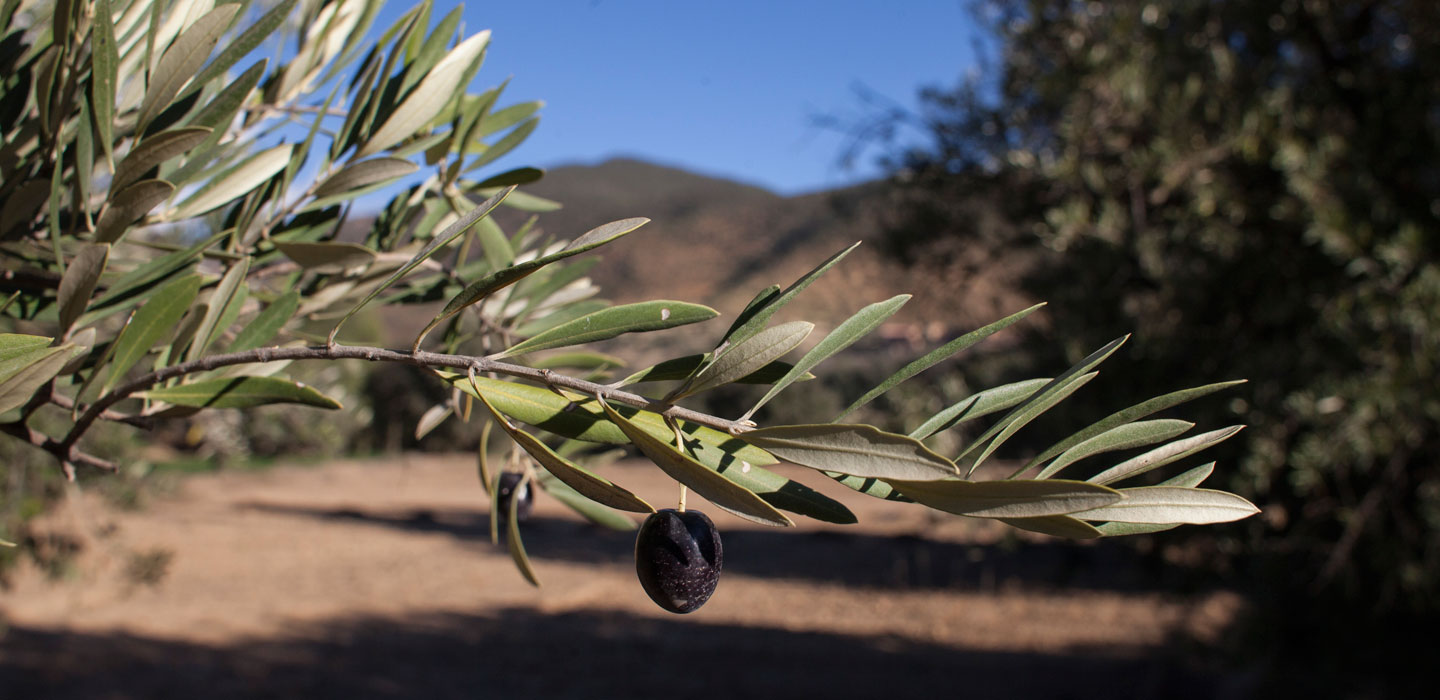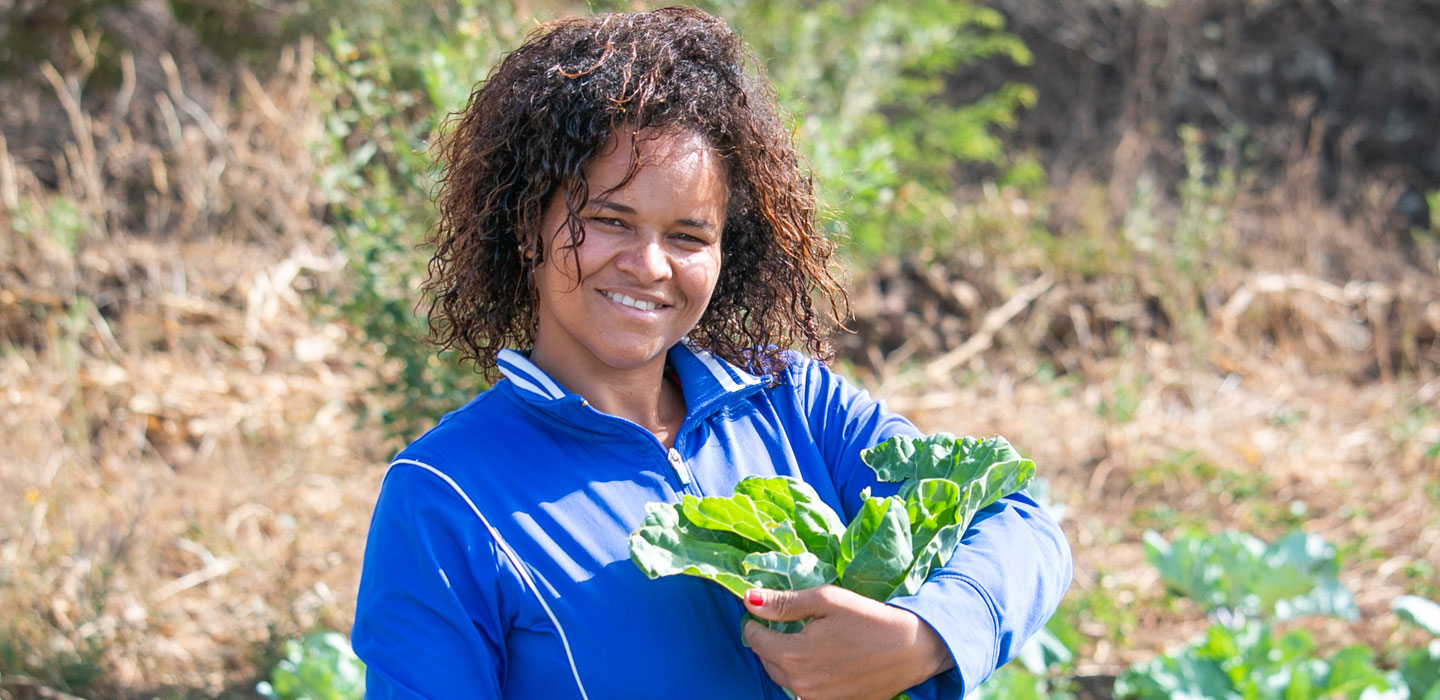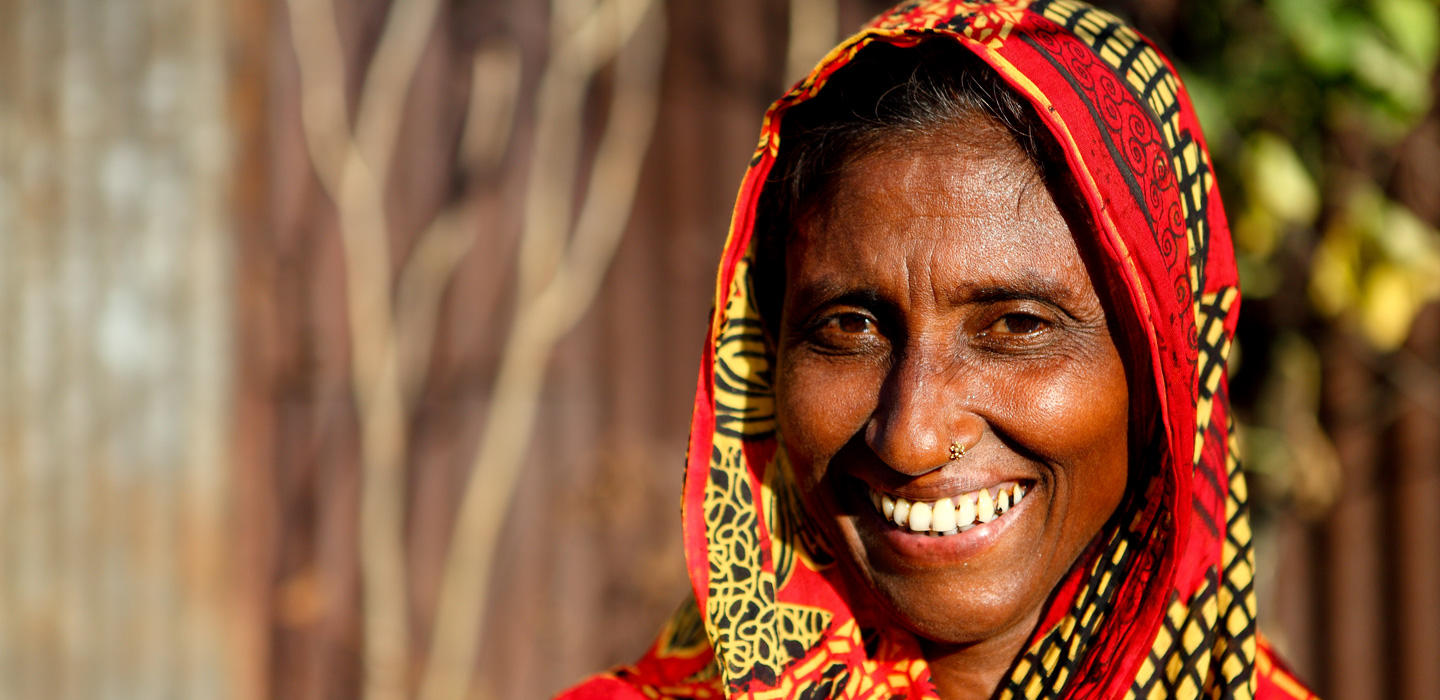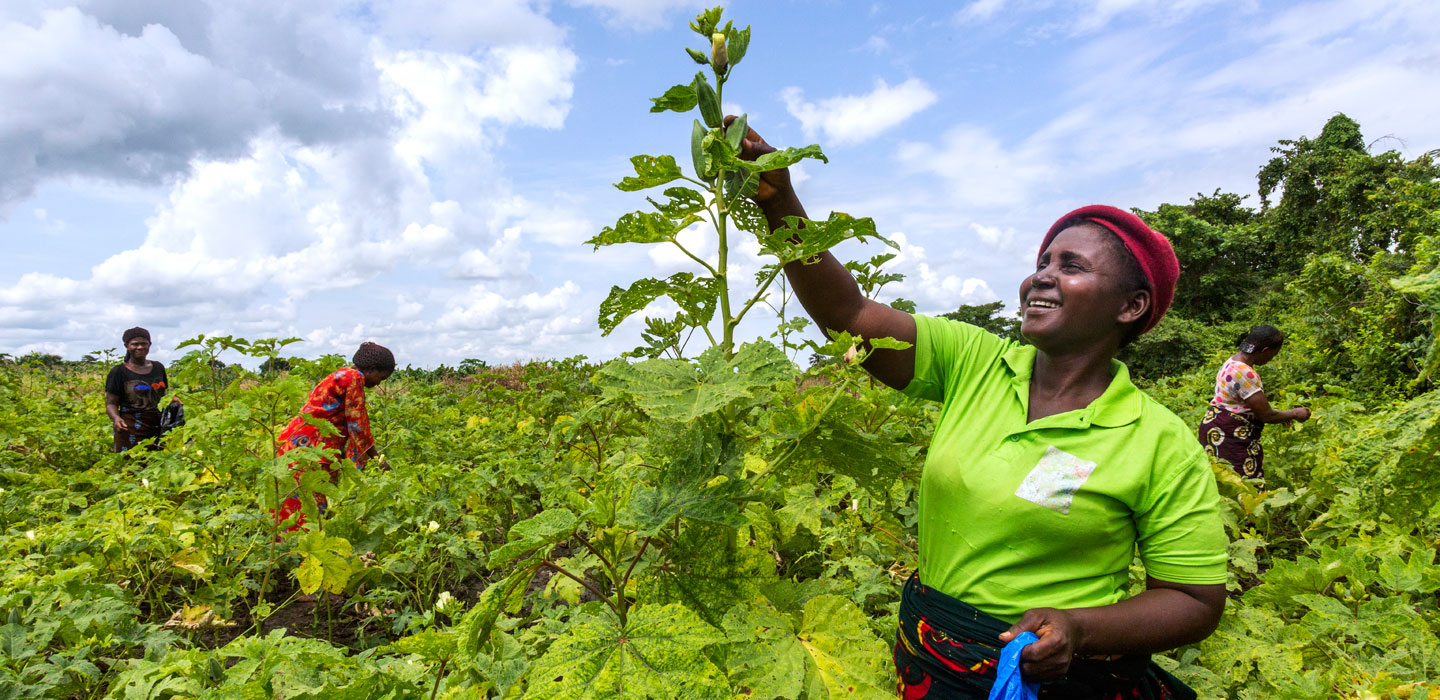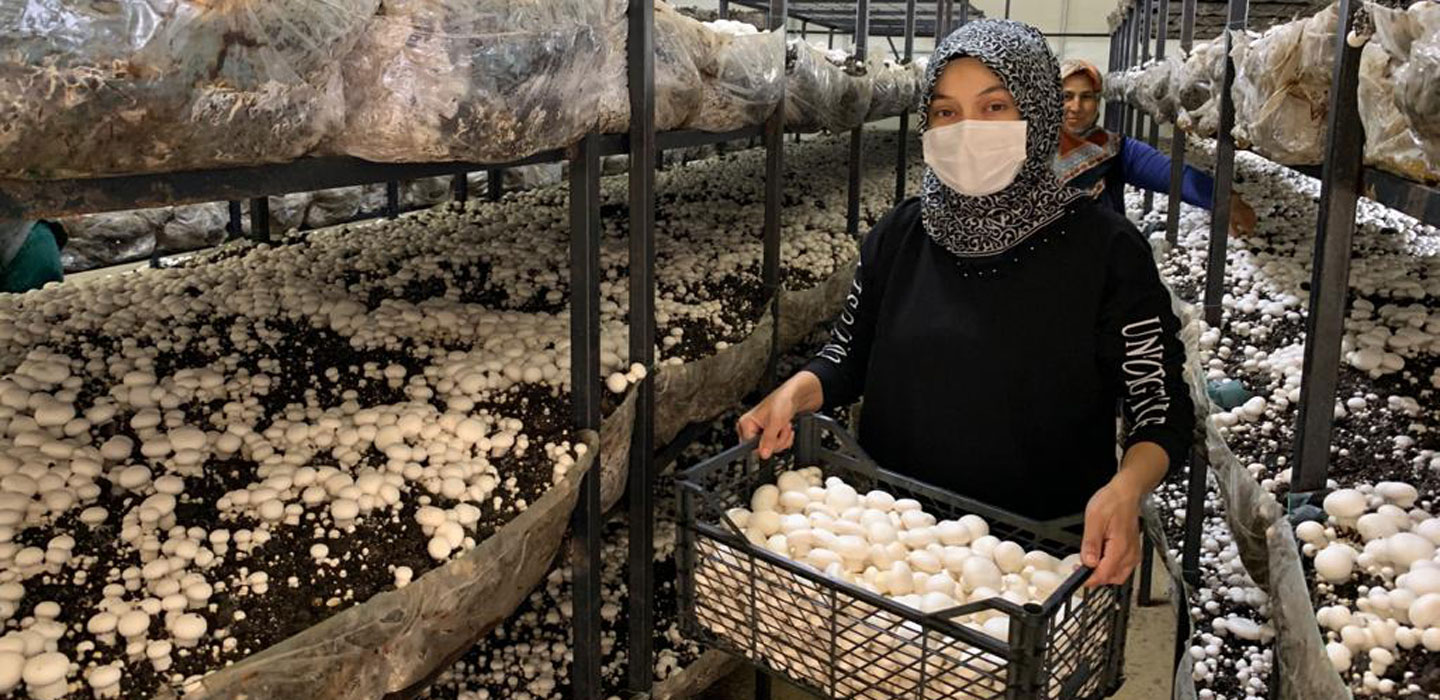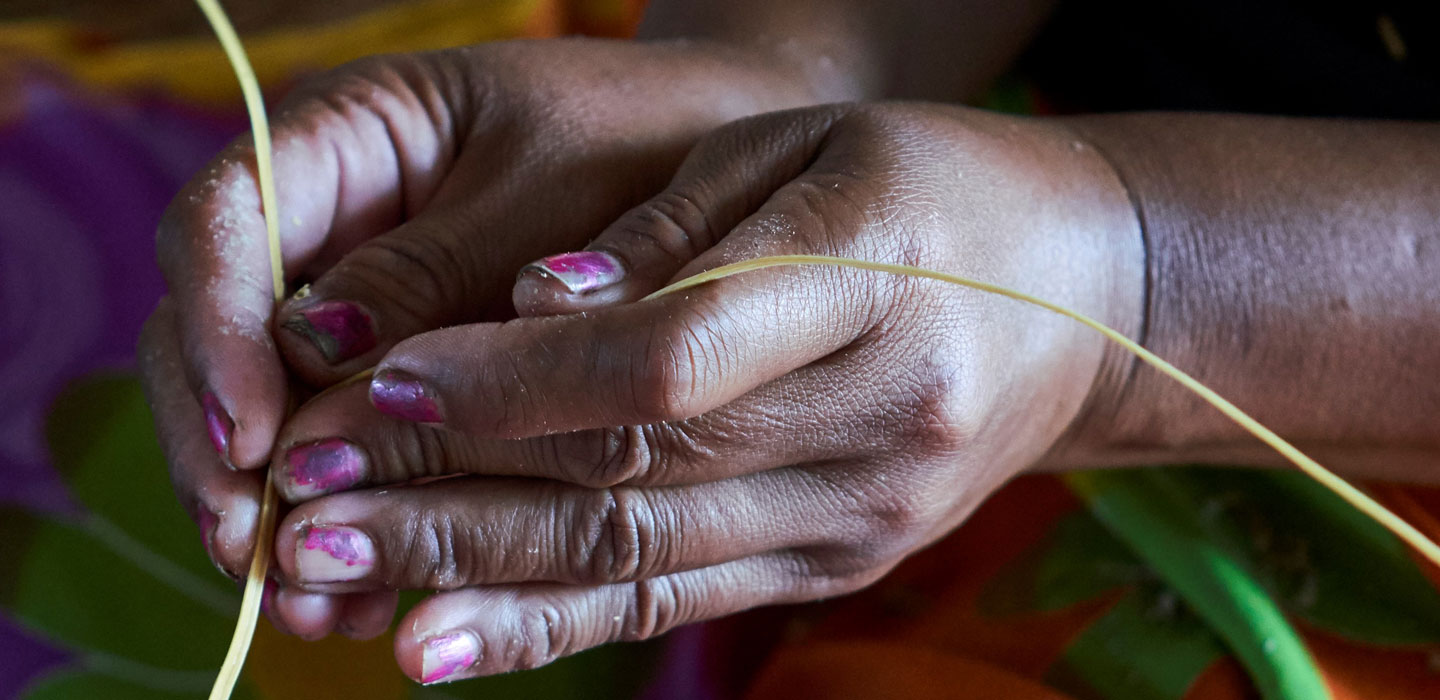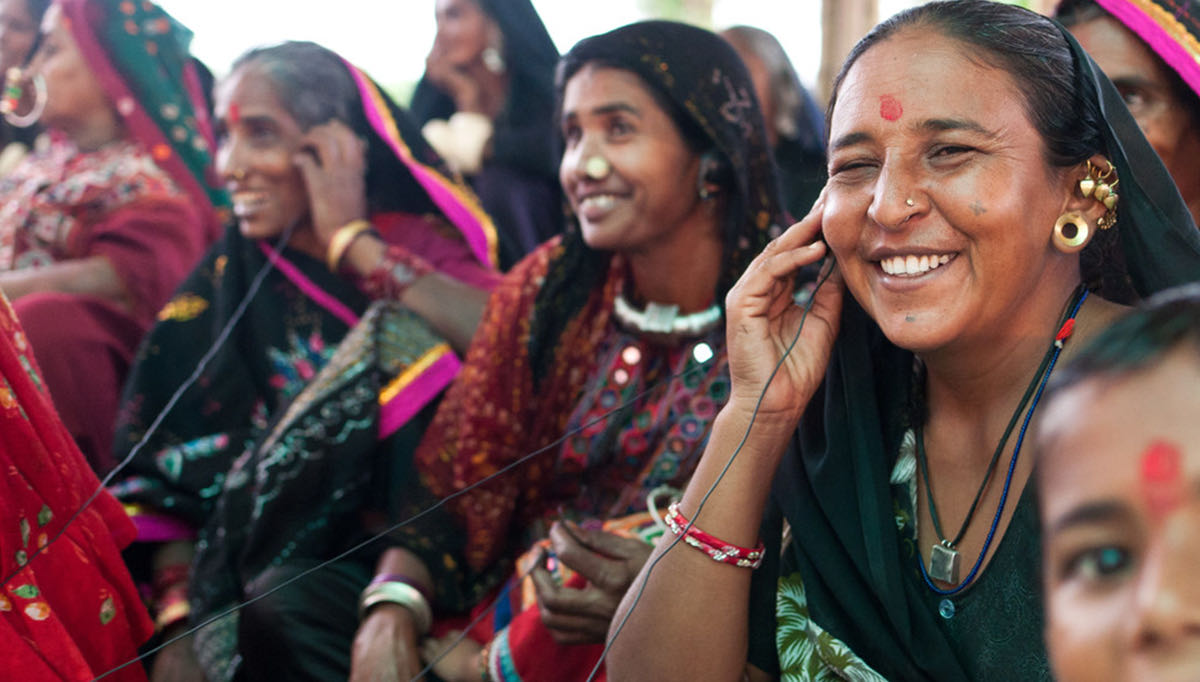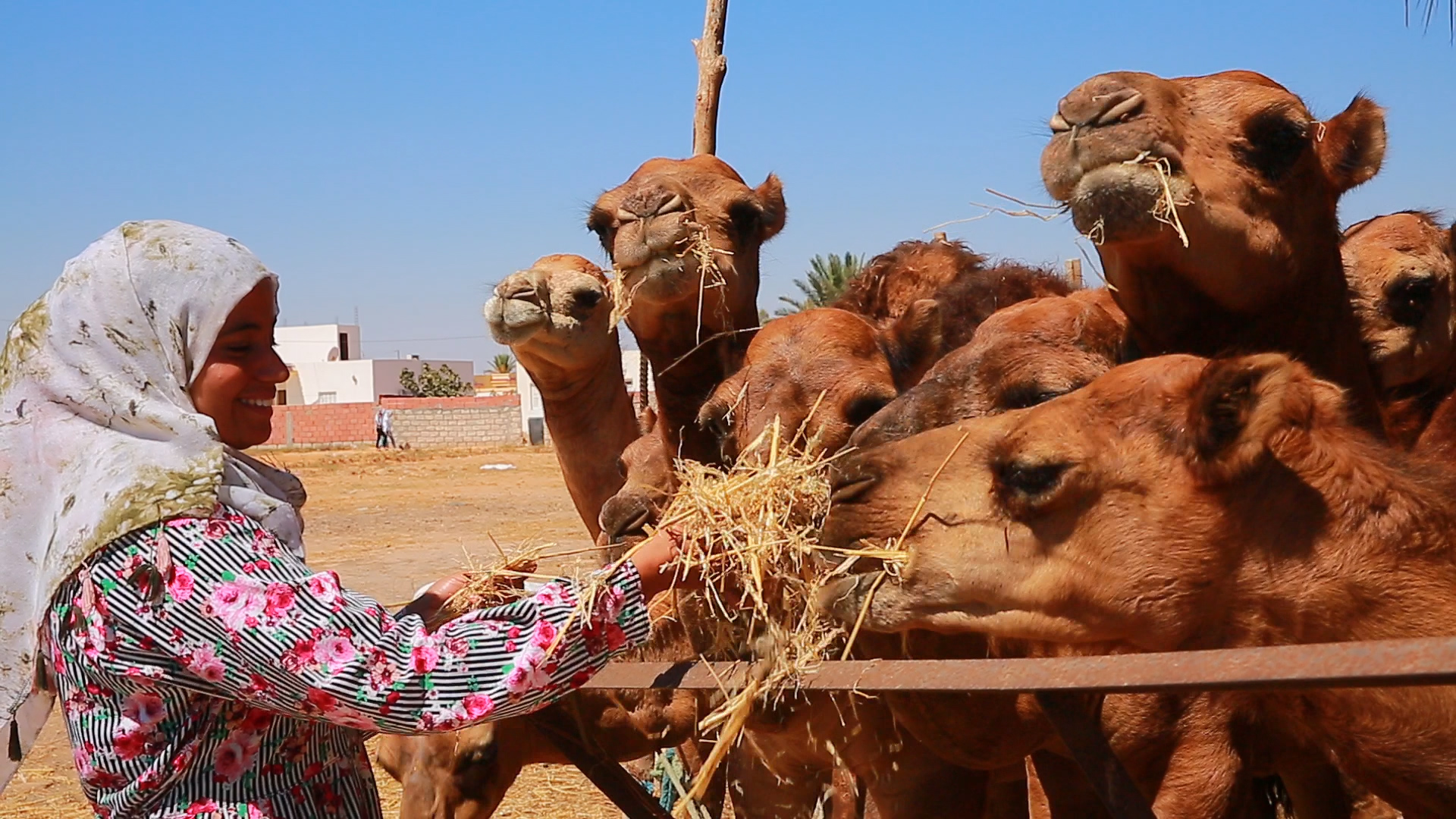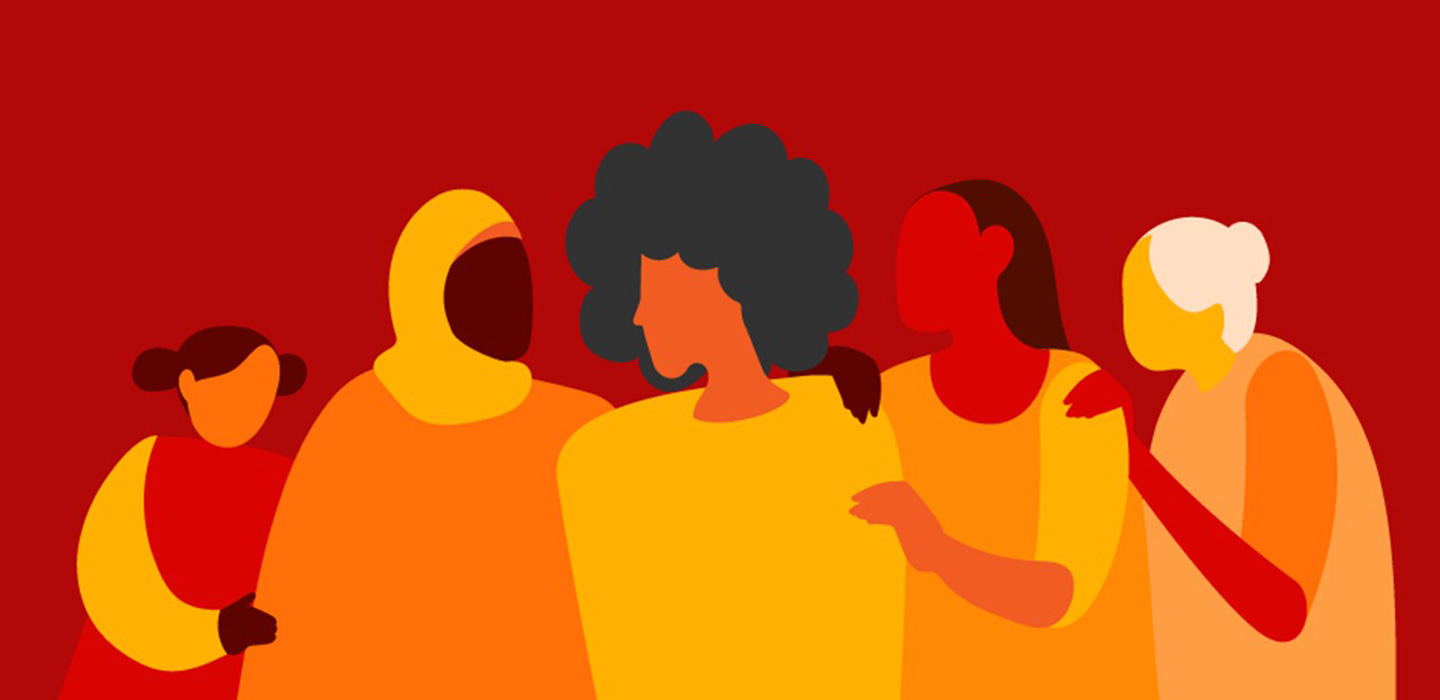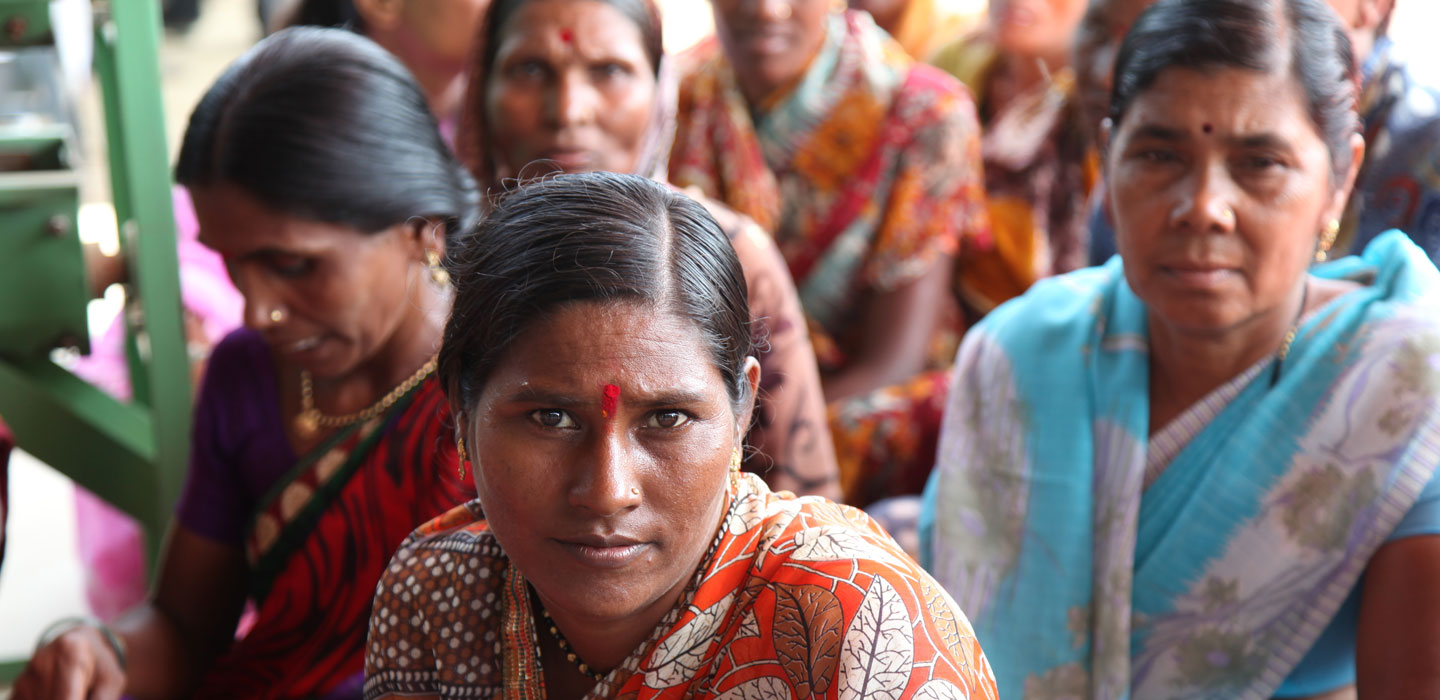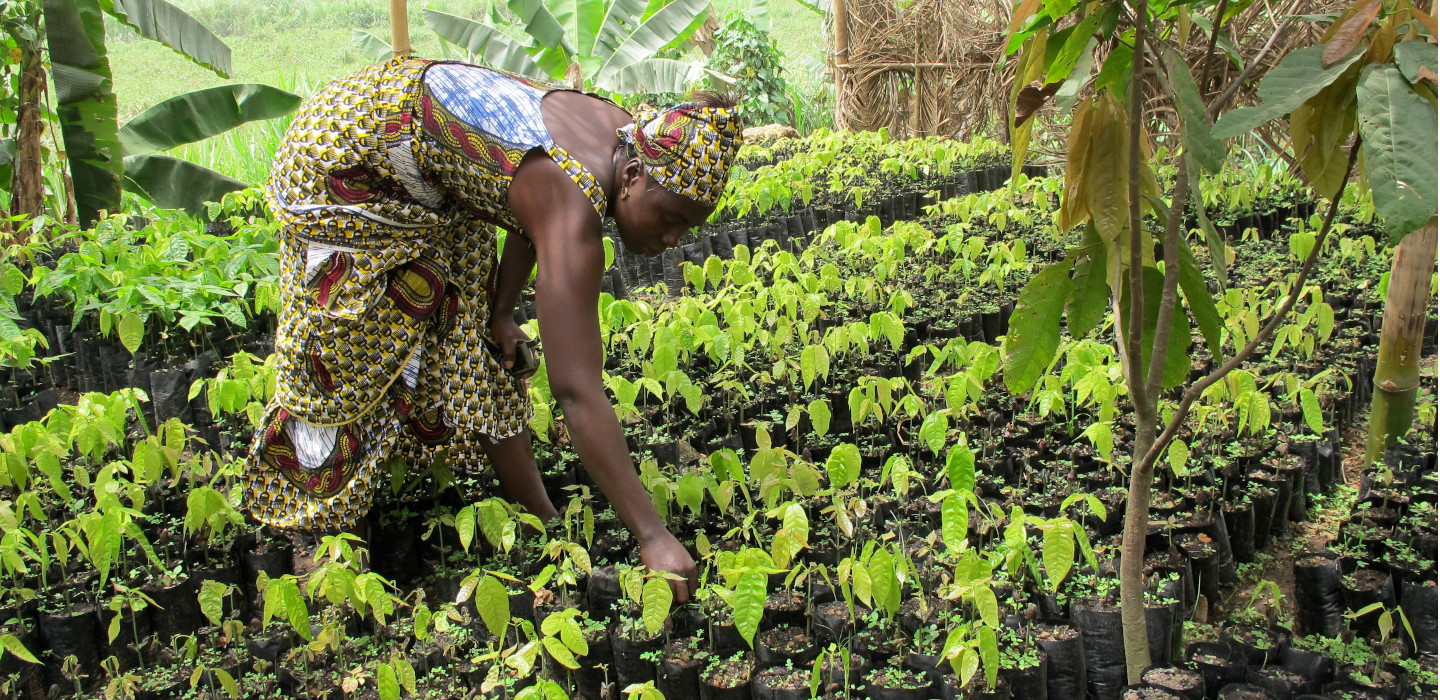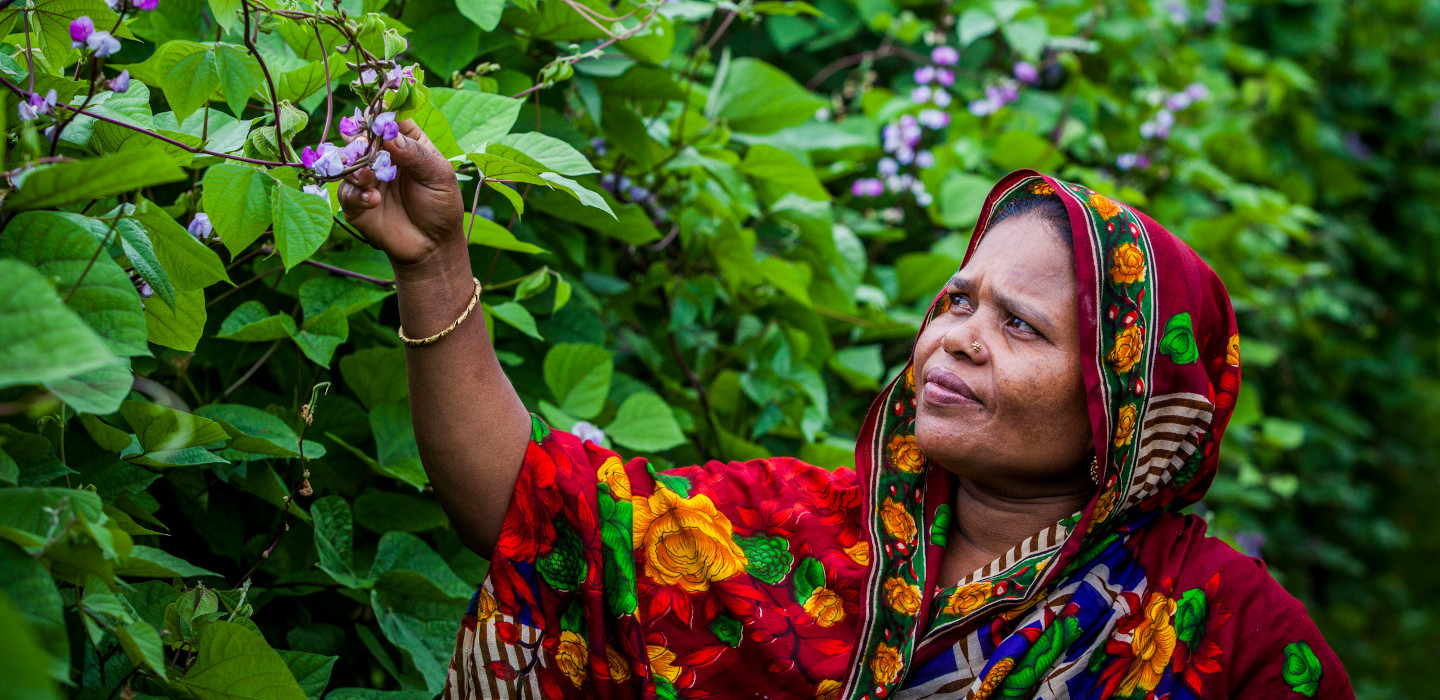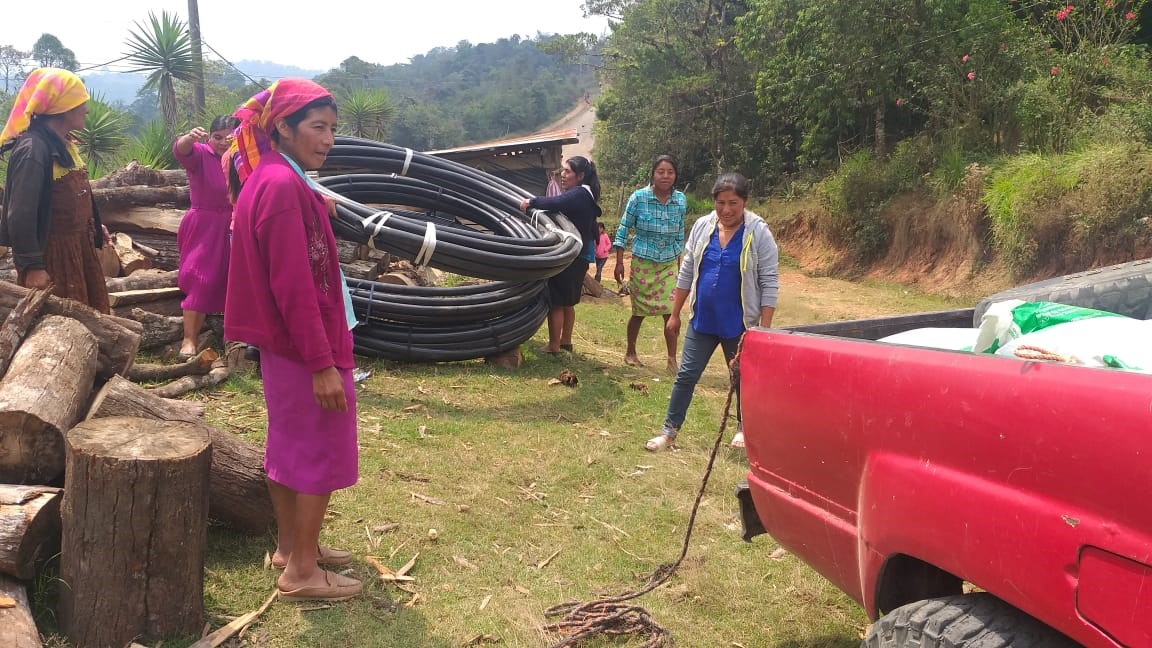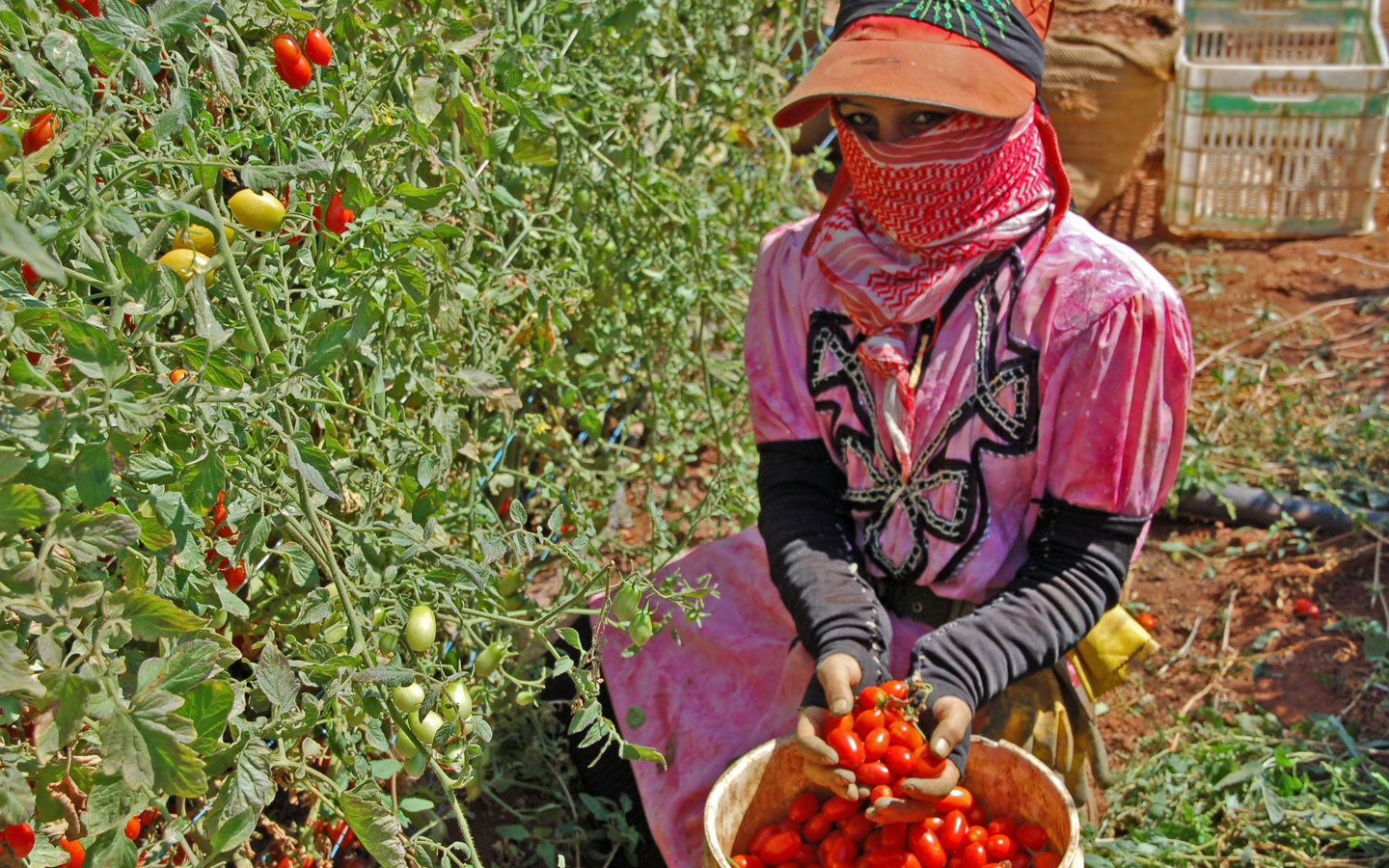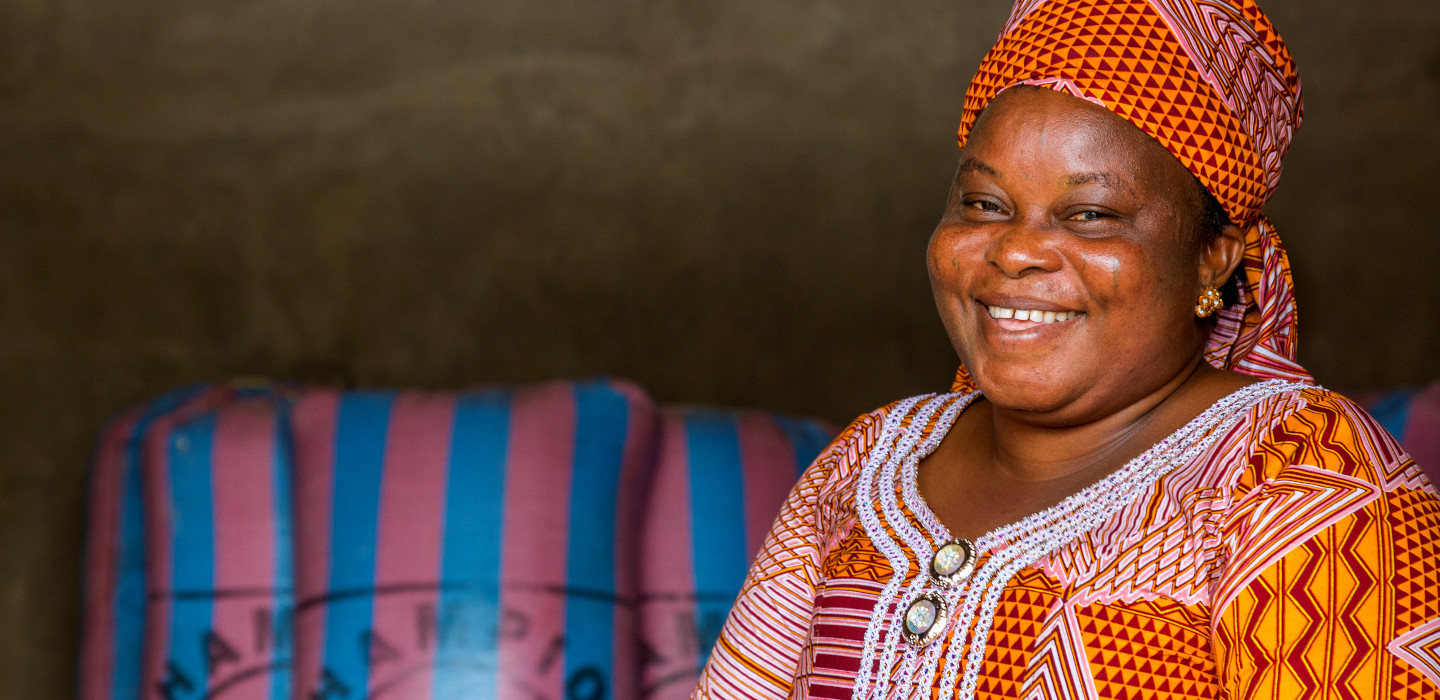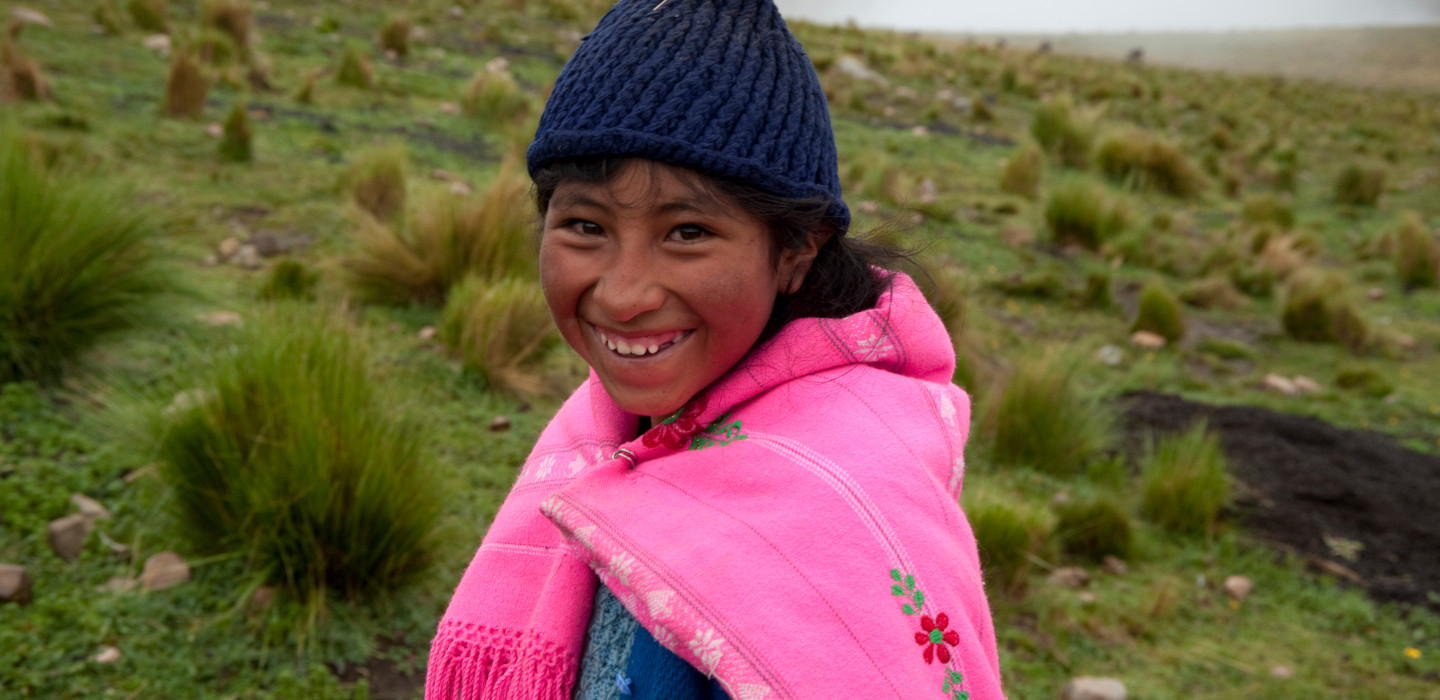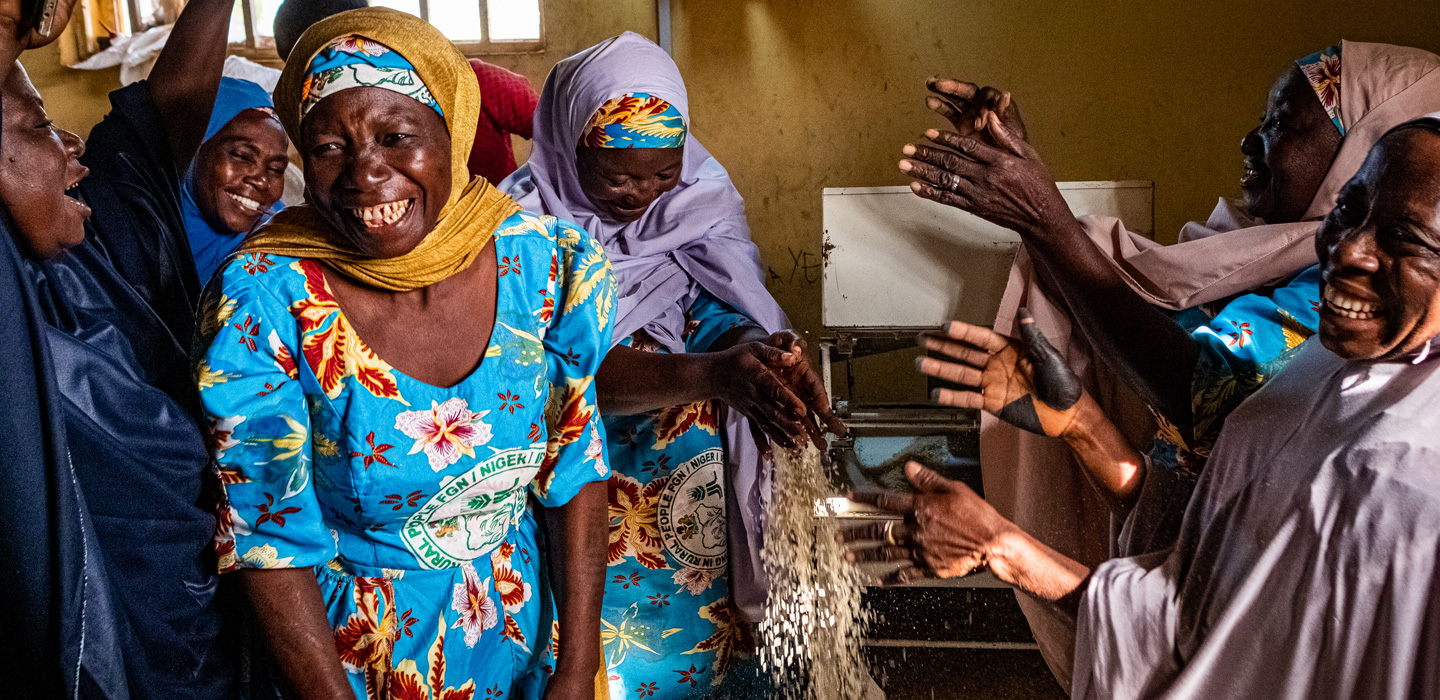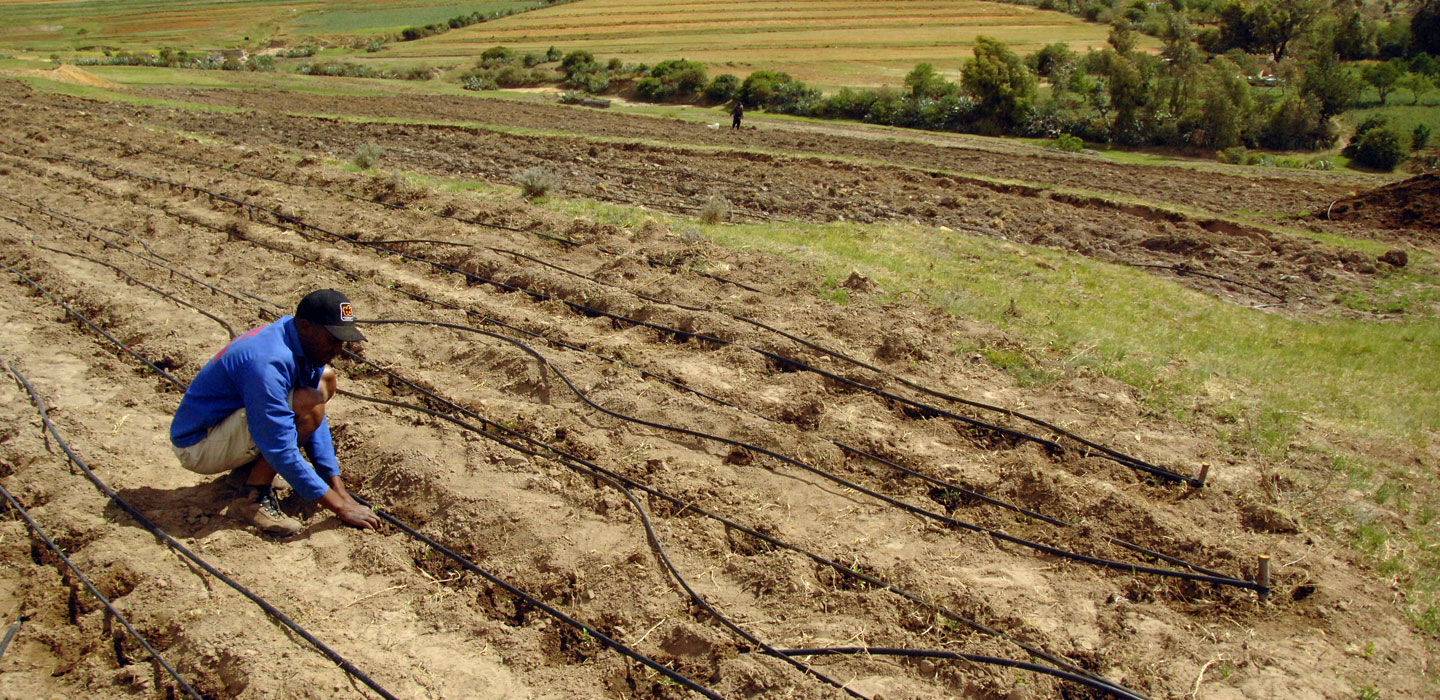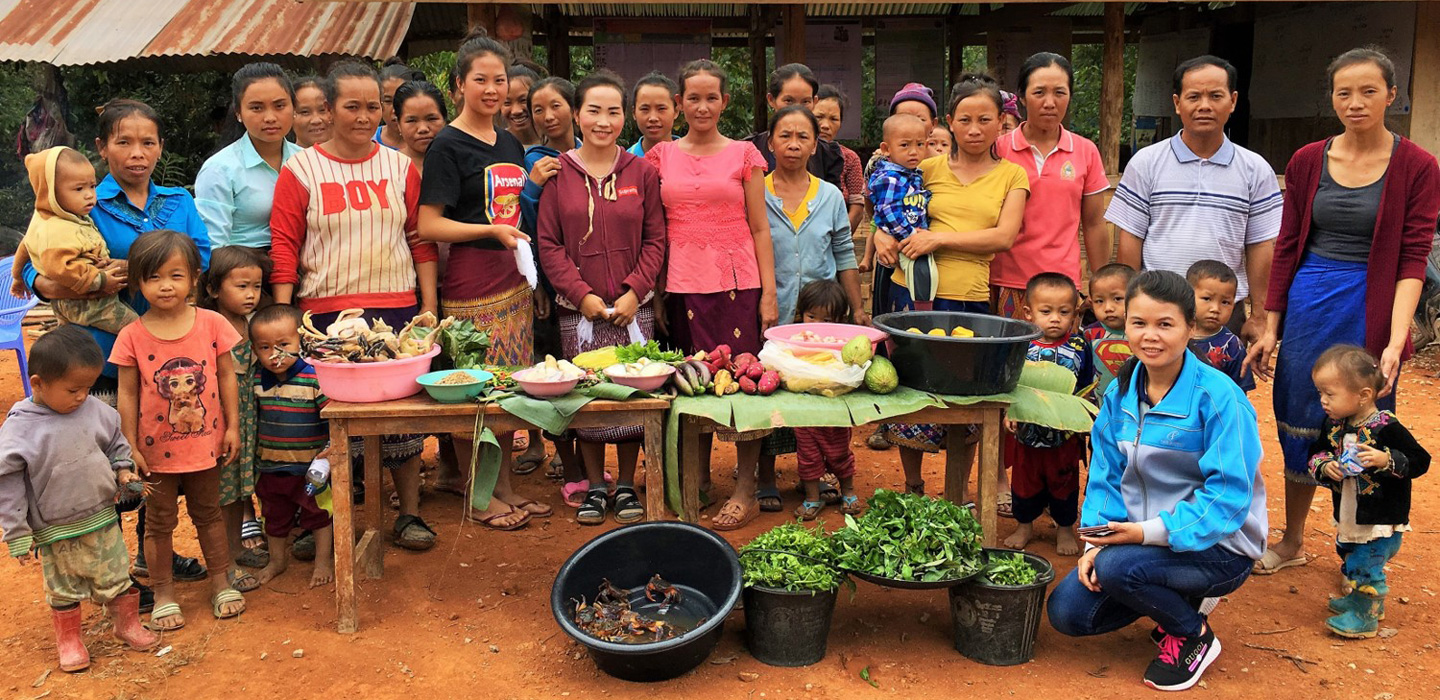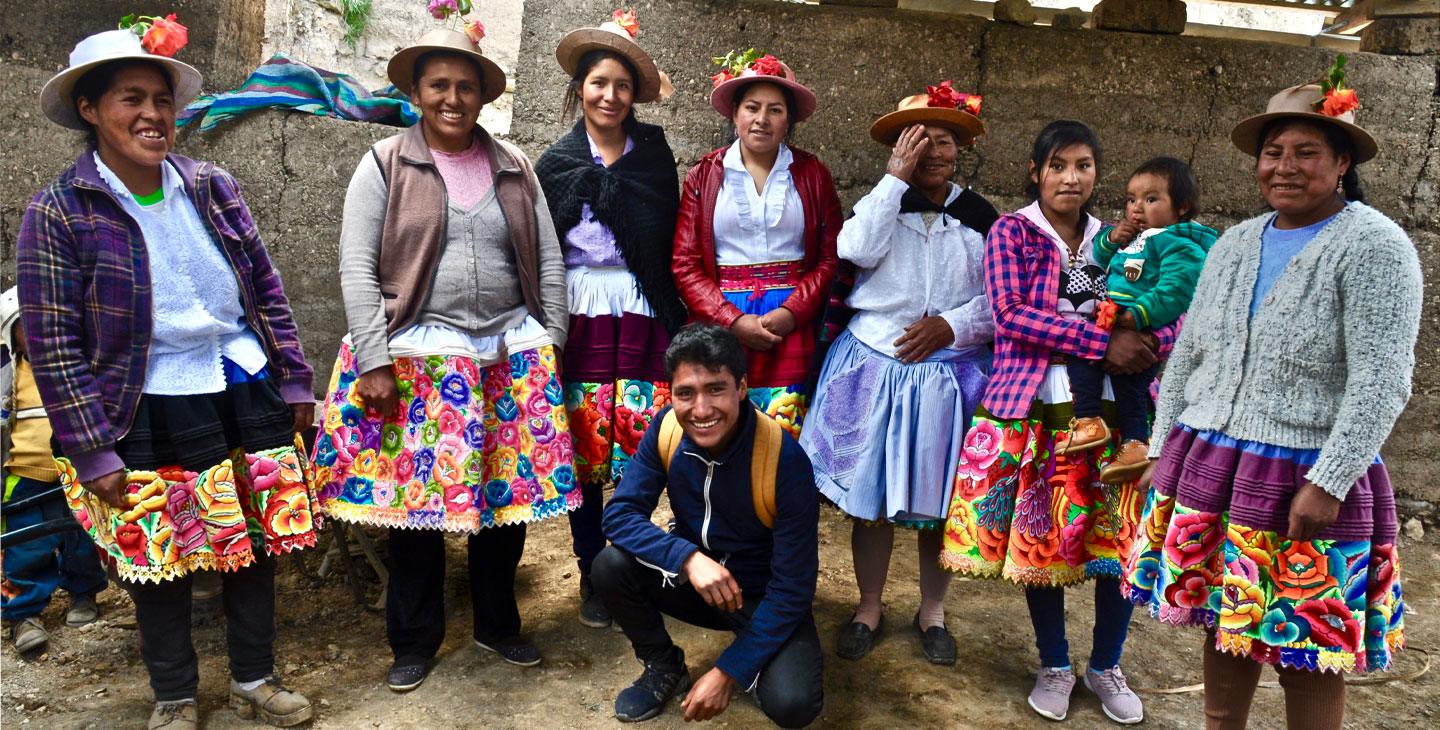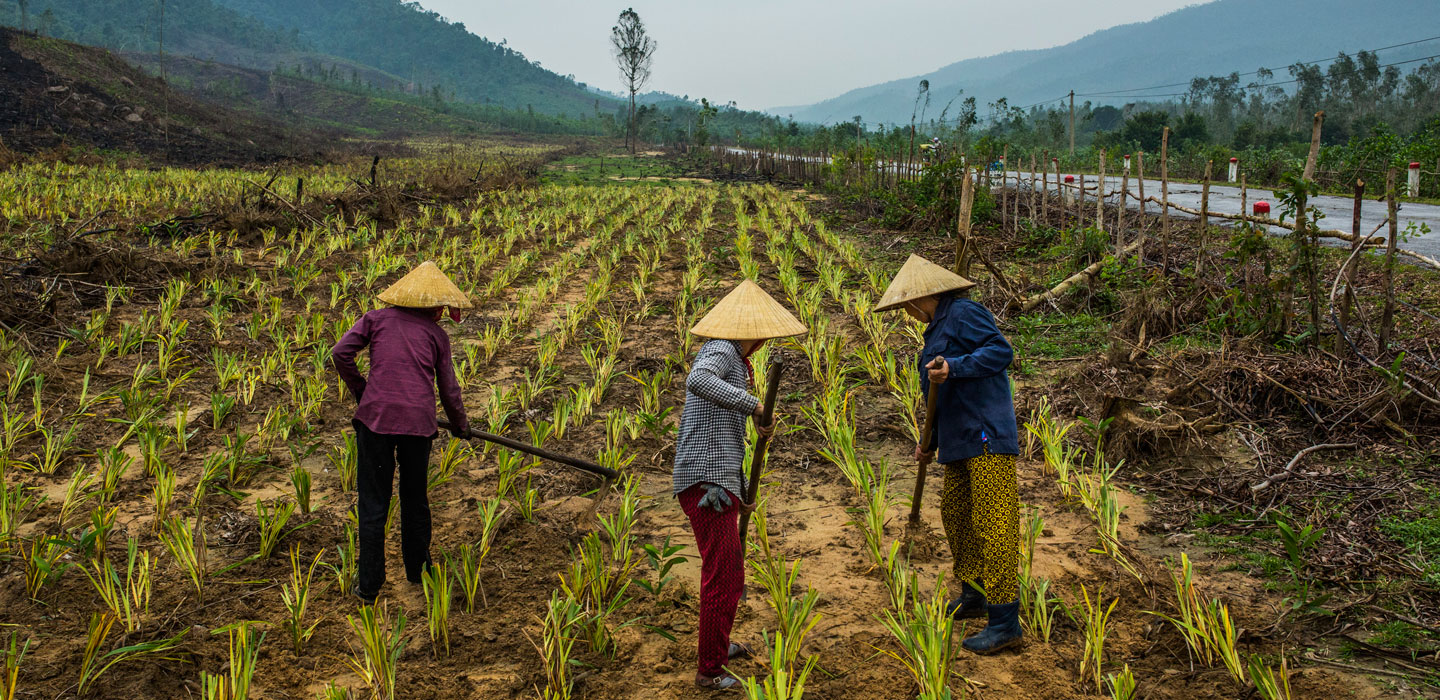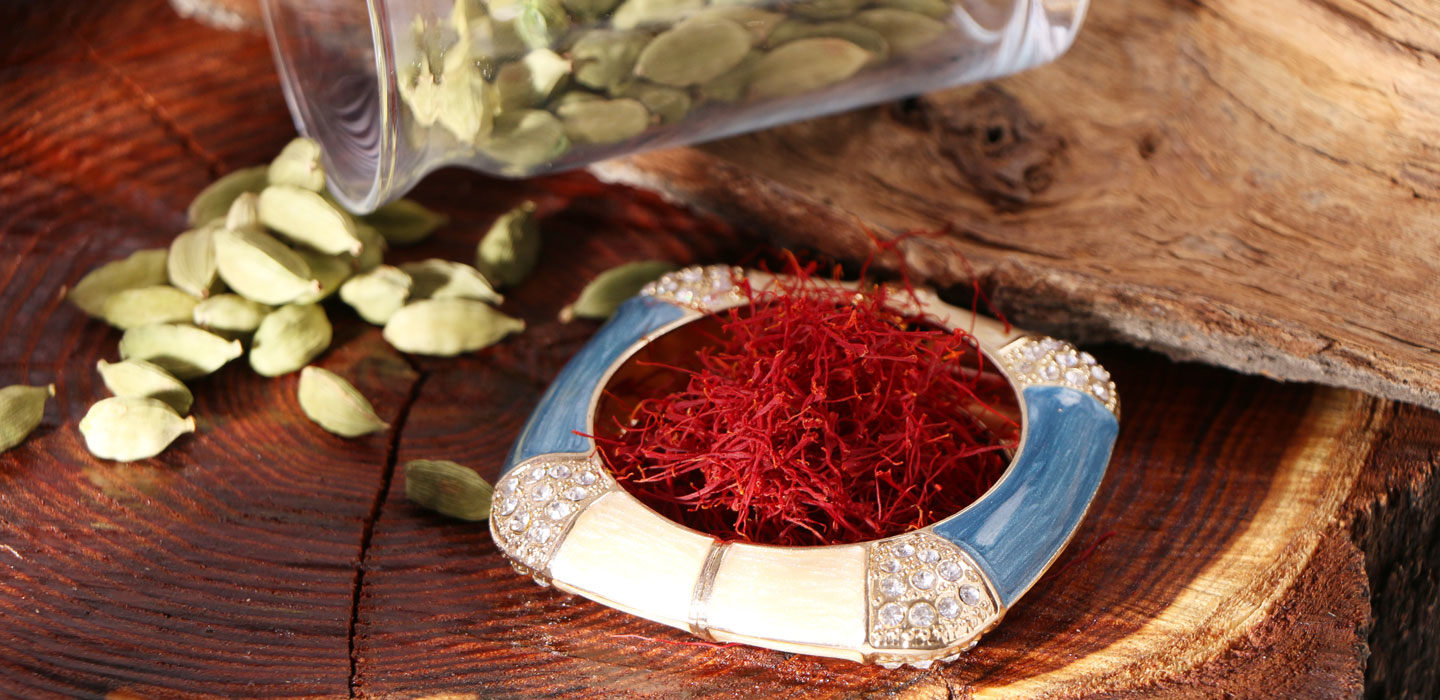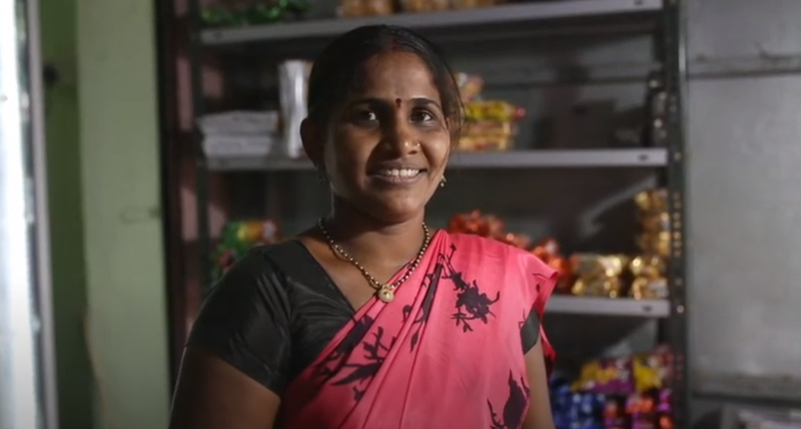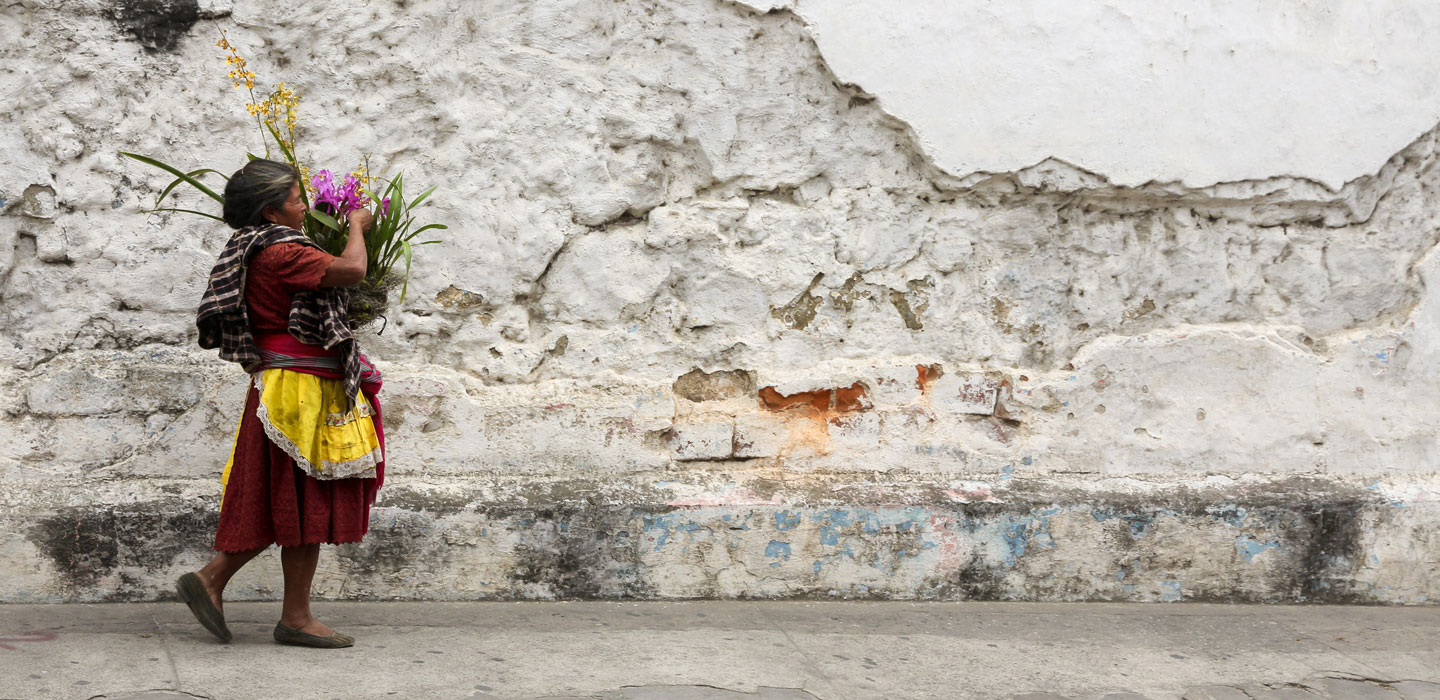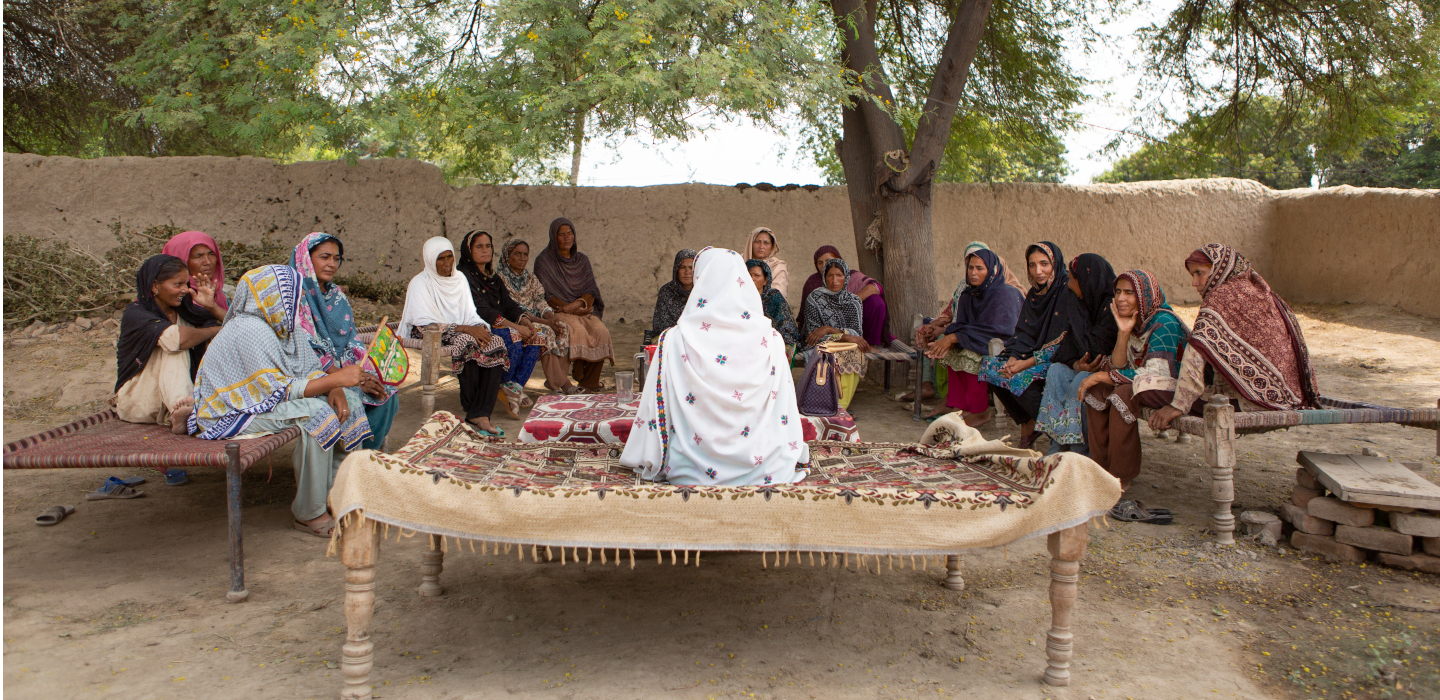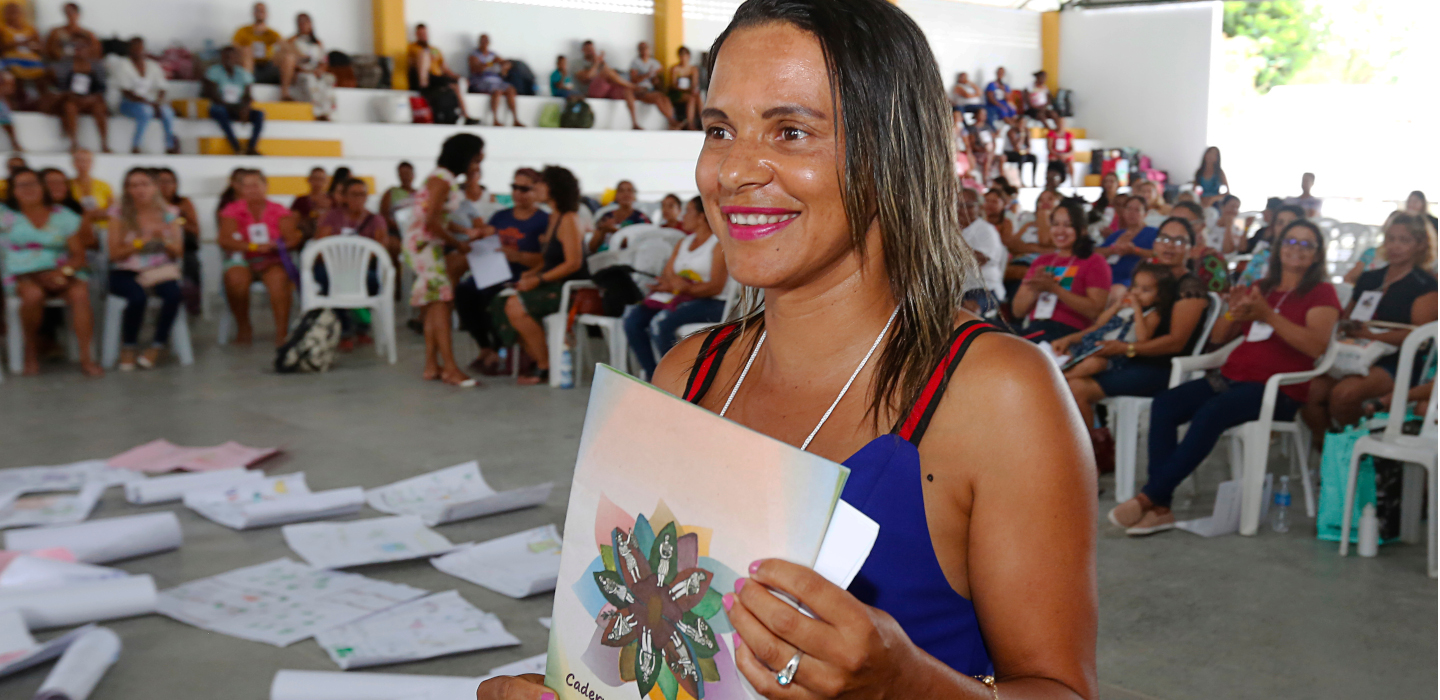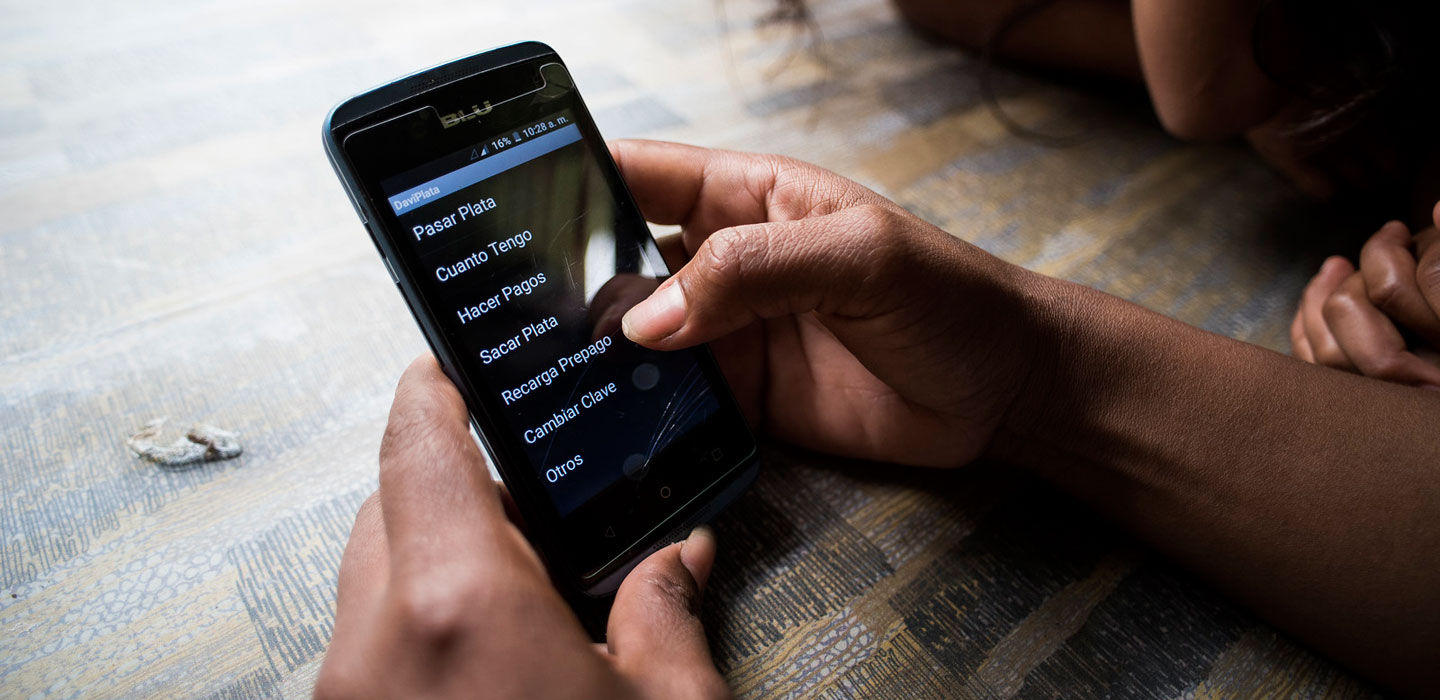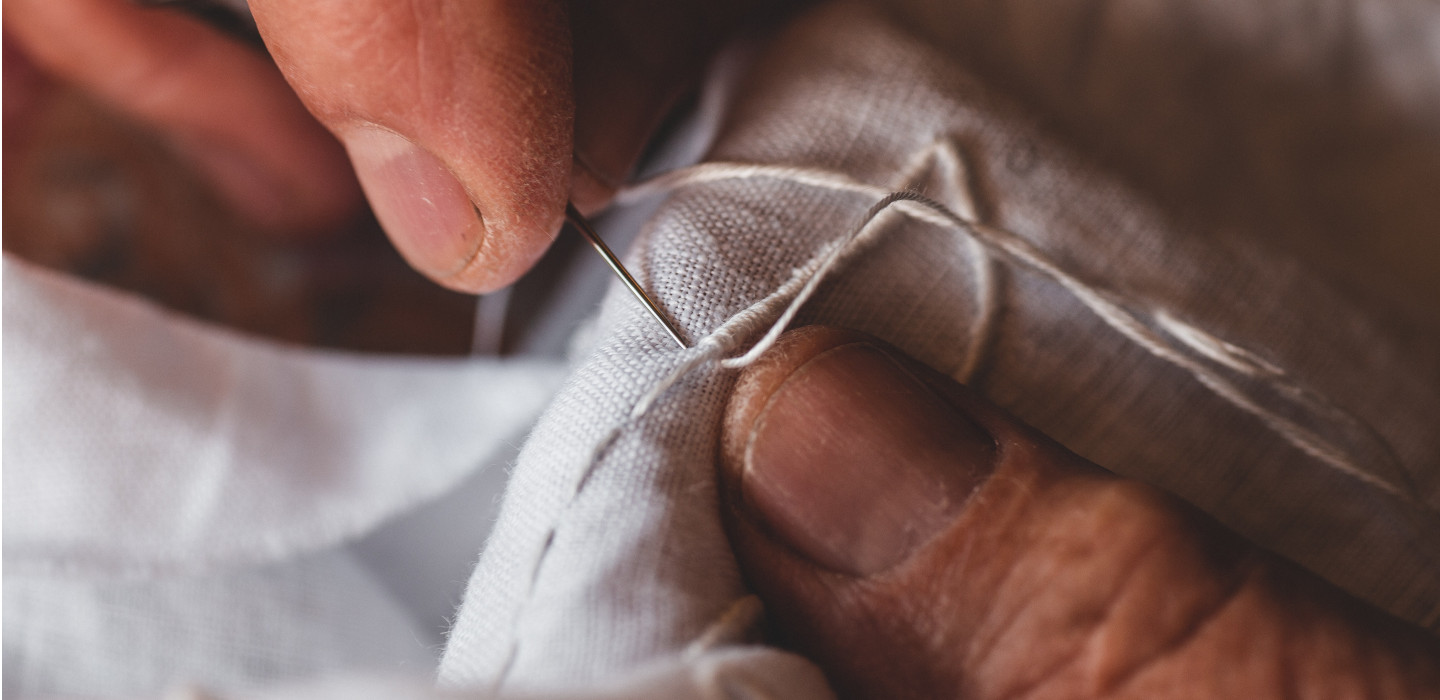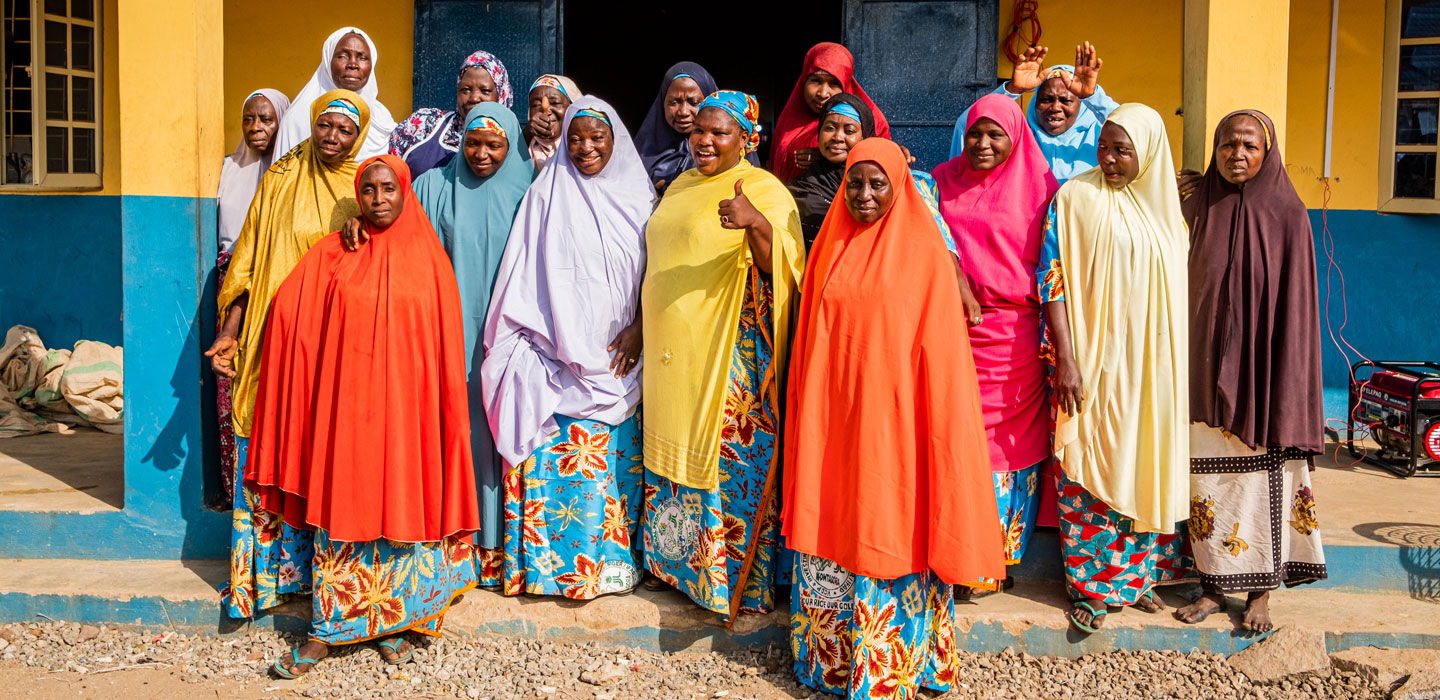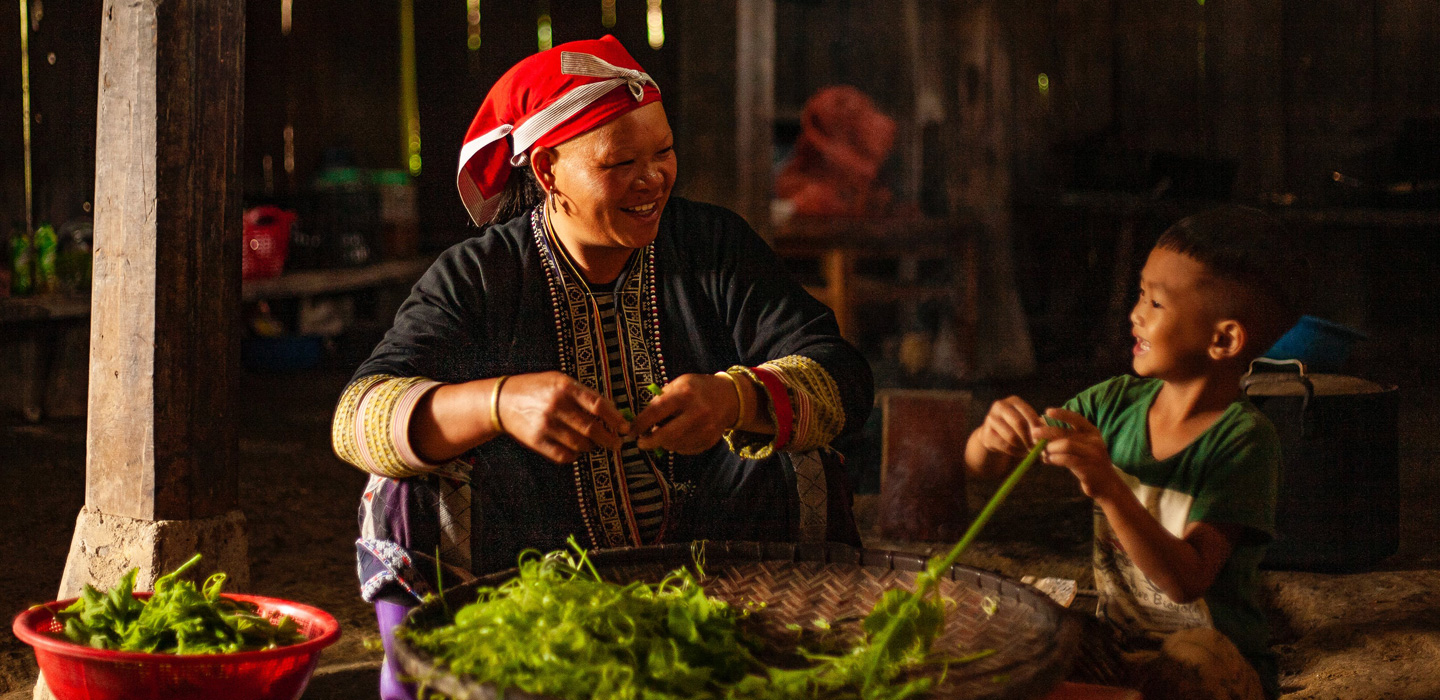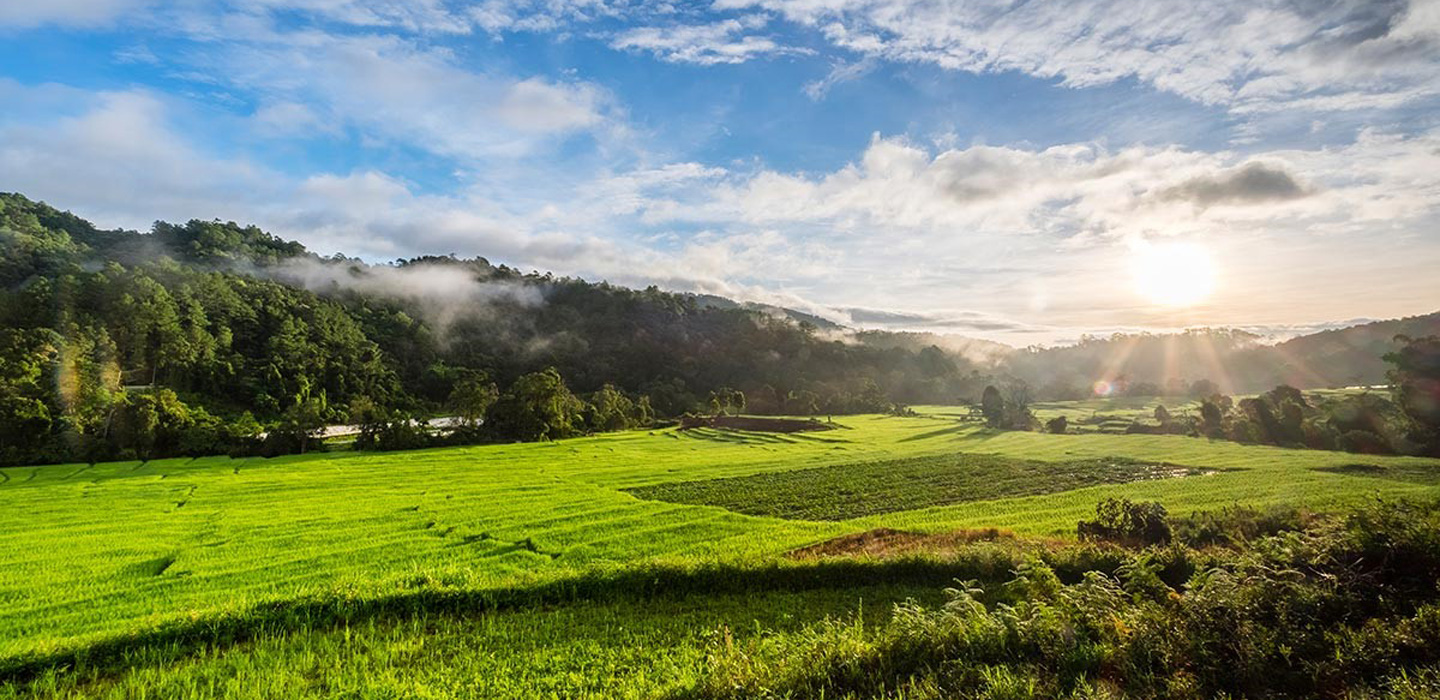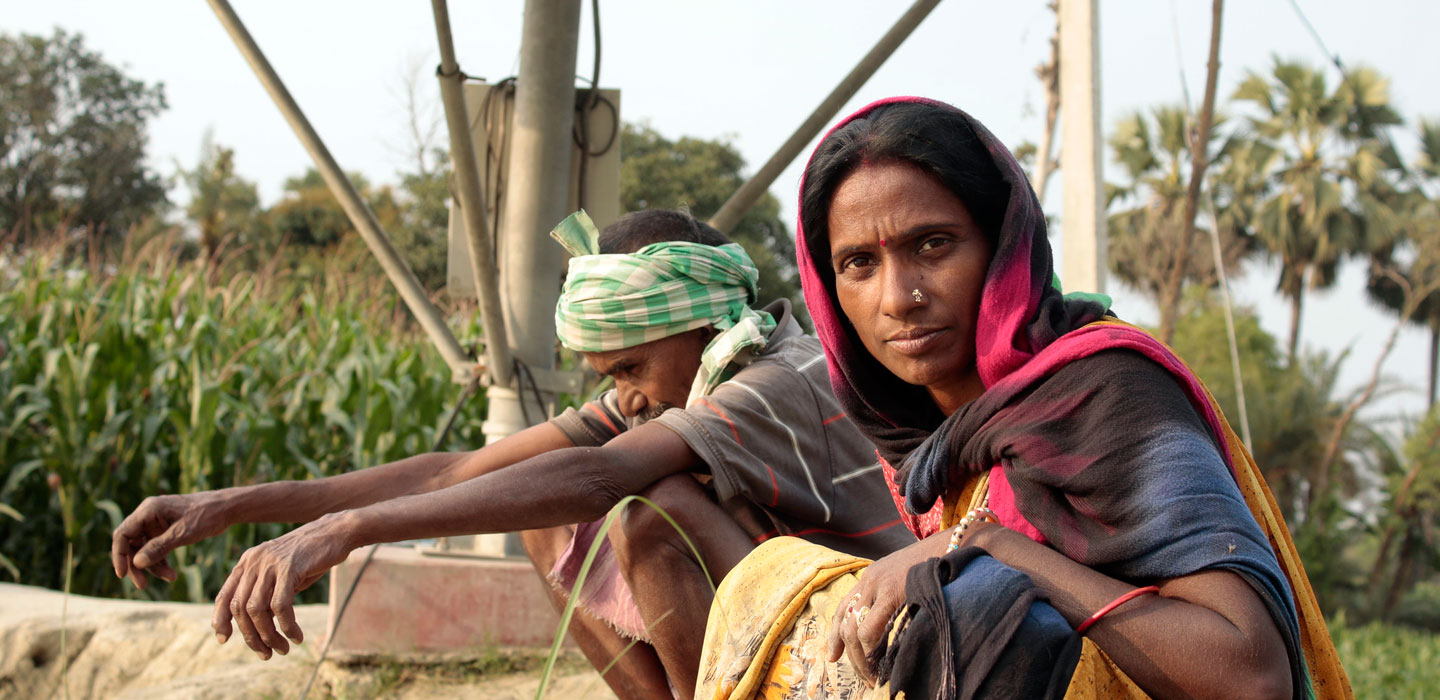Latest
Latest

Latest
Manual Submenu Topics
Search Results Filters
Search Results
Meet the women closing the digital divide in rural China
Investing in women's digital empowerment can foster prosperity not just for them, but for entire communities. These three remarkable rural women revitalizing their villages in rural China are living proof of this.
Without gender equity there will be no sustainable development, declares IFAD at launch of the Inter American Decade for the Rights of Rural Women
“Equal opportunities and rights for rural women are essential for building more prosperous and inclusive societies capable of tackling global challenges such as climate change and food insecurity. Without gender equity, there will be no sustainable development,” declared IFAD.
Agriculture’s Indigenous trailblazers – Episode 57
On this episode, Indigenous leaders from Nepal, Mexico and Kenya weigh in on what it means to protect the planet while preserving their cultures, and fighting for the right to land, nutrition and education.
Women shaping sustainable food systems – Episode 55
To mark International Women's Day, we explore how gender inequality and gender-based violence can be overcome to build inclusive, sustainable food systems. From El Salvador to Malawi, hear about how rural women are driving climate adaptation and transforming agriculture – and the world – for the better.
Invest in rural women
Investing in women is the surest way to prosperity – and a world without hunger. That’s why IFAD invests in women. They’re the smartest investment in a sustainable future.
Investing in women and girls makes economic sense and accelerates progress for millions of people
Investing in gender equality and women’s empowerment is not only more urgent than ever but also an incredibly smart investment to generate economic growth, food security, income opportunities and better lives, particularly in rural areas where most of the world’s poorest live. That will be the message tomorrow on International Women’s Day from leaders at the Rome-based United Nations agriculture and food agencies event - Invest in Women: accelerate progress.
Champions of change: Meet the winners of the 2024 IFAD Gender Awards
Visit the five inspiring winners of this year’s Gender Awards and find out how they’re addressing the harmful practices, social norms and economic disparities that keep women from achieving their potential.
In rural China, greenhouses bring new life to the desert
Growing food is a challenge in the harsh desert landscape of northwestern China. But thanks to new greenhouses built by a local cooperative, this village is bursting with fruits, vegetables and mushrooms.
A year of rural stories
For countless people in IFAD-supported projects, 2023 was a year in which their lives changed. Here are some of the stories we told over the past 12 months.
Gender equality in rural areas essential to climate change adaptation, says IFAD President
In the face of escalating climate change impacts on vulnerable rural populations globally, Alvaro Lario, the President of IFAD, emphasized today that promoting gender equality in rural communities is essential to climate change adaptation, with women acting as powerful catalysts of change.
Harvesting equality in rural households - Episode 49
Rural women are at the heart of agriculture – yet they’ve less resources, time and decision-making power than men. So how does IFAD combat gender inequality in rural communities?
Investing in a better future: West and Central Africa
West and Central Africa is as intricate as it is vast. We sat down with Regional Director, Bernard Mwinyel Hien, to better understand the region’s strengths and challenges.
Rural women rising: Investing today for tomorrow’s sustainable future
On International Rural Women's Day, we recognise the tremendous strength of rural women and girls across the globe. These women and girls, the backbone of our rural communities, are not just farmers, entrepreneurs, and caregivers; they are the very heartbeat of the land they nurture and the families they sustain.
IFAD launches #Sing4RuralWomen social media challenge on Rural Women's Day
In celebration of Rural Women's Day on 15 October, IFAD has collaborated with the Grammy-winning Soweto Gospel Choir (SGC) to launch the #Sing4RuralWomen social media challenge. Through a new song composed by IFAD’s Carlo Ladd, and interpreted by SGC, this initiative aims to celebrate the pivotal role played by rural women worldwide and raise awareness through music and dance on social media.
Sing for Rural Women
Women are the driving force behind rural communities, yet they have less resources, time and decision-making power than men. Join us and Soweto Gospel Choir and sing for rural women so more people can hear why they matter.
With the right resources, rural women can change the world
When rural women access finance, the entire world flourishes. Find out how financially empowered women are leading the fight against climate change, achieving sustainable development and ensuring food security for their communities and the planet.
Thriving in Türkiye: meet the women lifting themselves out of poverty
All over the world rural women face numerous challenges that men do not. Find out how an IFAD-funded project in Türkiye is providing them with the tools to lift themselves out of poverty and thrive.
Four questions with IFAD’s new Vice-President
Meet IFAD’s new Vice-President. Gerardine Mukeshimana discusses the importance of investing in rural communities, climate change adaptation and giving women access to resources.
How IFAD promotes peace
Poverty is both a symptom and a driver of conflict. That’s why IFAD supports the poorest and most marginalized people as they contribute to a more peaceful world where everyone can access dignified work that fosters shared economic prosperity.
Why the Sustainable Development Goals matter: your questions answered
As countries meet to evaluate how much progress has been made towards the Sustainable Development Goals, find out more about these 17 objectives and why they’re important for the rural communities we work with.
From bunnies to buffalo, livestock give rural women a living
Meet the rural women who are tending to livestock while earning a living and empowering themselves.
Innovation matters, especially for small-scale farmers
IFAD applies the latest tools and technologies to support small-scale farmers. Here are six examples of innovations proven to work for rural communities all over the world.
Encouraging young women in business in Tunisia
Hayet has a university degree but, like one third of young rural women in Tunisia, she could not find a job and had no means of earning an income.
Her land, her rights: How land ownership can transform the lives of women - and hold back desertification - in Niger
Meet the woman who fought for her right to land ownership and contributed to halting drought and desertification.
Transforming rural futures through digital remittances
Remittances are a lifeline for rural communities all over the world, here’s why we should continue to invest in digital transfers.
Why development is a smart investment even in unstable times
In an age of multiple intersecting crises, only a holistic approach to both humanitarian and development assistance can disrupt the cycle.
A new strategy for a new country: IFAD supports youth in South Sudan
To transform rural lives we must build a strong understanding of the countries we operate in. Find out how IFAD is doing just that in South Sudan.
Behind the scenes of an IFAD project: Your top questions answered
Find out what happens behind the scenes of an IFAD project as we answer our followers’ top questions.
Six proven ways to transform rural communities
After 40 years working with rural people, here are some of the things we have learned to make our work under IFAD13 a success.
From Nigeria to Nepal, going online helps rural women build businesses
Meet the women using digital tools to build successful businesses and stronger communities.
International Women’s Day 2023: Bridging the digital gender divide is essential for unleashing women’s potential in rural areas, say UN food and agriculture agencies
Inclusive access to digital technologies and education is crucial to reducing gender inequalities and empowering rural women and girls – that was the message from three United Nations’ food and agriculture agencies as they marked International Women’s Day 2023.
A digital divide is holding rural women back. Here is what we can do to change this
Many rural women are excluded from digital services. What is causing the digital divide and what can we do to end it?
From tulips to tomatoes: Technology empowers women in Asia
In Pakistan and Bangladesh women are harnessing technology to connect to the world and build a business, one click at a time.
Sénégal : Le FIDA et le CNCR signent un accord de don pour l’amélioration des revenus des femmes et des jeunes entrepreneurs avicoles villageois
Le FIDA et le Conseil national de concertation et de coopération des ruraux (CNCR) du Sénégal, viennent de signer un Accord de don pour améliorer les revenus des femmes et des jeunes entrepreneurs avicoles villageois ayant subi les conséquences des mesures restrictives prises pour faire face à la pandémie de Covid19.
Putting rural people in the development driving seat in Ethiopia
In Ethiopia, community driven development puts small-scale farmers in charge of identifying what they need to prosper and how development funding should be used.
The Tunisian woman who weaved her way to a better life
In rural Tunisia women are breaking free of gender norms and building successful businesses to provide for their families.
2022: Resilience in the face of adversity
As we near the end of 2022, IFAD looks back on some of the themes that defined a year of dramatic change.
Here comes the sun: solar-powered irrigation brings crops back to life in Rwanda
In rural Rwanda, solar-powered irrigation gives women farmers a sustainable alternative to time-consuming and expensive manual and diesel-powered systems.
It’s time to end violence against rural women
Violence against women is one of the greatest barriers to sustainable development. On the International Day for the Elimination of Violence against Women, let's reaffirm commitments to eliminate and prevent gender-based violence.
Small-scale farmers could help fill the global food gap if they irrigate properly – even with growing climate challenges
Small-scale farmers hold the key to feeding the world, its important for them to trust and invest in different types of irrigation systems.
Five ways IFAD is helping to reduce rural poverty in an age of climate change
Even when a world without poverty seems out of reach, here’s how IFAD continues to work in developing countries, amplifying the voices of rural people and integrating them into value chains, so they can earn and save, while feeding the world and conserving the natural environment.
Rural women lead the way
There is no solution to climate change without rural women. It’s time to invest in them. It’s time to let them lead the way.
With the world in firefighting mode, we cannot forget about rural women
As the world faces a myriad of crises, experts fear that the progress rural women and girls have worked so hard for may be reversed. Here is how IFAD is working to prevent this.
From subsistence to self-sufficiency: how women in Sudan are using savings and credit groups to build a better future
Climate change, commercial agribusiness, and societal norms threaten small-scale farmers’ way of life in a small village in Sudan. A women’s savings and credit group is changing this.
As COP15 tackles desertification, here are three ways IFAD is helping farmers in sub-Saharan Africa build their resilience to climate change
Sub-Saharan Africa’s drylands – that is, the areas where more water is lost through evaporation than gained through rainfall – are facing widespread degradation. There are many factors causing this, but one of the most prominent is the use of agricultural practices that aren’t adapted to the land, such as overgrazing and intensive agriculture.
In rural Morocco, one woman’s efforts transform the lives of many
When Fatima-Zohra first arrived in her new home, a rural village in the Moroccan highlands, she discovered the local women didn’t have many job opportunities. But they were enthusiastic about the idea of going into business for themselves – and so Fatima-Zohra got to work.
IFAD Vice President to meet Prime Minister Edouard Ngirente and ministers in Rwanda
The Vice President of IFAD, Dominik Ziller, will meet with Edouard Ngirente, Prime Minister of the Republic of Rwanda, as well as other high-level government officials during a visit starting 9 May.
Closing the Social Justice Gap – Episode 31
This episode is all about closing the social justice gap in rural communities and developing countries.
Meet some of the women leading sustainable development around the world
Sustainable development can only be achieved with the contributions of rural women, yet they face many challenges. Let’s meet three women who have transformed their lives with the help of the JP RWEE initiative.
Empowering Rural Women: UN Joint Programme’s new phase to target countries in Africa, Asia and the Pacific
Four United Nations agencies today announced the forthcoming launch of a new phase of a joint programme that aims to secure rural women’s livelihoods, rights and resilience to advance sustainable development.
IFAD and UN Women join hands for rural women’s empowerment in China
IFAD and UN Women were each working in rural China, helping women access new opportunities and gain an equal say in their communities. Then the two agencies decided to collaborate, opening up new ways to fulfil their respective mandates – rural development on one hand, and women’s empowerment on the other.
Digital Technology and Homeworking help rural women in Guatemala recover from COVID-19
COVID-19 lockdowns meant Juana could no longer go to her job in rural Guatemala. But thanks to a loan from her local rural savings bank and IFAD’s Rural Poor Stimulus Facility, Juana started her own business at home.
Driving Miss Babli: Young women in Bangladesh get the chance to learn new skills
Thanks to driving lessons provided by the Haor Infrastructure and Livelihood Improvement Project - Climate Adapation and Livelihood Protection (HILIP/CALIP), a group of young rural women in Northern Bangladesh now have careers as drivers—a typically male-dominated profession.
UN Food Agencies Call for Climate Adaptation Solutions that Include Women and Girls
As climate extremes become more frequent and intense, women and girls - who are at a higher risk than men and boys of experiencing the devastating effects of the climate crisis - including food insecurity, need to be front and centre when planning and implementing climate change adaptation solutions, said three United Nations' food agencies at their joint International Women's Day event today.
On International Women’s Day, IFAD and Govt. of Maharashtra boost commitment to empower 1 million rural women
Ahead of International Women’s Day, IFAD and the Government of Maharashtra in India agreed to invest an additional US $12 million, to socially and economically empower 1 million rural women in the state through the Nav Tejaswini project.
From Guatemala, to India, to the sun and back: indigenous women are securing a brighter future with solar power
Marta had never left her community before and was nervous to travel. Many told Carmelina not to go, saying India was too far and six months was too long to be away. But despite their concerns, the two women embarked on their journey, determined to bring electricity to their communities.
Why rural women need land rights: A conversation with Steven Jonckheere
This International Women’s Day, we sat down with Steven Jonckheere, IFAD’s Senior Technical Specialist on Gender and Social Inclusion, for a conversation on why women’s land rights matter – and what IFAD is doing about it.
To tackle climate change, we need to empower rural women. Here are four ways to do that
Rural women already know what needs to be done to help their households and communities adapt to climate change and build resilience. Here are four ways to empower them for a climate-safe future.
These numbers prove that rural women are crucial for a better future. But they're not getting what they need to succeed
Despite being largely responsible for the food on our farms and on our tables, women don’t have access to the same resources as men. Without access to land, finance, training, inputs and equipment, women can’t produce effectively, achieve financial stability or food security, or grow their businesses.
Why must we wait another generation to close the gender gap? Women are long overdue a seat at the table
Last year, the World Economic Forum revised its estimates for closing the gender gap. Shockingly, rather than reaching equality sooner, the gap has increased a generation. At IFAD, we work to achieve a more equitable rural world, one where women’s participation in decision-making is no longer an exception.
5 questions you should be asking about climate change and rural women
Women and girls all over the world are more strongly affected by climate change. For International Women’s Day, we’re taking a look at why that is and how women and girls can lead the way in adapting to the new environment.
2021 Gender Awards: Five IFAD-supported projects transforming women’s roles in rural communities
Every year, we recognize a project from each of our regions that empowers rural women and girls. Here, we present the winners of the 2021 Gender Awards.
Gender Equality Today for a Sustainable Tomorrow – Episode 29
This month, in anticipation of International Women’s Day 2022, our focus is on gender equality.
In rural Ghana, soapmaking brings success for women living with disabilities
Many persons with disabilities face barriers to accessing education, training and employment – and for women with disabilities, those barriers are even higher. Fortunately, there are a growing number of programmes designed to help rural-dwellers with disabilities find decent jobs and fully participate in their local societies.
In rural Montenegro, women gather to share their successes
In north-eastern Montenegro, an IFAD-funded project is helping women start their own businesses and gain greater representation in their communities. Recently, many of these women gathered to share their successes and teach and learn from each other.
Disability rights matter for the world’s rural-dwellers
Our vision of inclusive, sustainable, green, and resilient rural economies can’t be accomplished without the inclusion of persons with disabilities. We are committed to finding ways for persons with disabilities to participate fully in society and realize their potential as contributors to vibrant rural economies.
Tipping the scales of equality in the Philippines
"Before, these women were just waiting at home. Now, we are more educated. We are empowered to be more independent," says Ruperta Gagarin, a businesswoman from the Philippines.
Oysters and honey: The perfect combination for Senegal’s Delta of Saloum
The Delta of Saloum’s mangrove forest is rich in beauty and biodiversity, but it has suffered from years of deforestation, disrupting the area’s ecosystem and threatening the livelihoods of the area’s farmers and fishers. Recently, a collaborative project has begun to tackle both problems by funding a restoration of the mangrove and supporting local farmers’ associations.
Women are protagonists of change in Nicaragua’s rural areas
One after another, women who received support from the NICAVIDA project, repeat like a mantra: “I’m a protagonist”.
Leading from the front - How rural women across South Asia are inspiring their communities
From the fields they sow to the harvest they reap and the cattle they raise – women are the backbone of farming in South Asia. Yet, their contributions often remain invisible, and they are denied access to resources and a voice in decisions.
Invest in gender equality to reduce climate change impacts on world’s poorest, says IFAD President on the International Day of Rural Women
We need a significant boost in investments to close the gender gap otherwise rural communities will never bounce back from the impacts of climate change, warned Gilbert F. Houngbo, the President of IFAD, on the International Day of Rural Women.
Changing lives by transforming gender norms
Women are major contributors to the rural communities where IFAD works but they continue to face barriers that inhibit their – and their families’ – livelihoods. Compared with men, women have less access to resources and services – including land, finance, training, inputs and equipment. In addition to their agricultural work, they are overburdened with domestic chores and caring tasks.
The woman who walks with llamas
Thousands of Bolivian families, particularly in the Altiplano, the high-plateau region of the Andes where Chaquilla is located, depend on breeding camelids for their livelihoods.
Celebrating rural women's voices - Rural women speaking out for change through community radio in Nepal
On the International Day of Rural Women (IDRW), 15 October, we celebrate rural women and girls worldwide and recognize the crucial role they play in contributing to sustainable food systems and rural development.
Meet the rural women helping Paraguay’s communities and food systems flourish
Ten years ago, in Paraguay’s Capiíbary district, a group of women came together to form an association of market-sellers. Today, with the support of an IFAD-financed project, they’re thriving – and their association is now integral to local food systems.
Raising hope and opportunity in rural Tajikistan: Obidova’s story
Obidova is busy these days. Whether she’s setting up a new shelter for her birds or going to the markets to sell, her days are filled with taking care of her family and her poultry business. But just a year ago, things looked very different.
Investing in the foundations of Gambian agriculture
Roots are the essence of farming: they erect healthy plants and help grant a predictable and generous harvest. The IFAD-supported ROOTS project seeks to promote exactly that strength in The Gambia.
The labour market dynamics of COVID-19
Over a year and a half into the COVID-19 pandemic, there’s still a lot to learn about how the labour market in developing countries is reshaping itself – especially in terms of gender dynamics. Our latest study tracks employment trends in Nigeria with both pre- and post-pandemic data.
Empowering rural women with Agroecological Logbooks
The video presents the main results of using the Agroecological Logbook methodology in projects supported by IFAD in Brazil.
Gender-focused solutions for the post-COVID return to rural areas
The COVID-19 pandemic has given rise to waves of internal migration as urban workers return to rural areas. IFAD must identify solutions to the challenges this phenomenon has created, and will continue to create, for rural agricultural development. This is especially critical from a gender equity perspective.
Restoration takes root: Nasreen’s story
Nasreen’s family was struggling to make ends meet. Now, thanks to an IFAD-supported project, she runs her own ecological farm that produces high-quality, chemical-free vegetables – all while it restores the local ecosystem.
Rural Youth Innovation Award honours youth leaders fighting COVID-19
IFAD believes in the tremendous innovative capacity of rural youth – and we take seriously our responsibility to support young people in their constant search for change and innovation. That’s why this year’s Rural Youth Innovation Award in Latin America and the Caribbean, a project financed by the China-IFAD SSTC Facility, focused on initiatives led by young people fighting the pandemic.
Responding to the challenges of a year like no other: IFAD’s 2020 Annual Report
IFAD’s Annual Report provides a concise, compelling and interactive discussion of how we addressed the challenges of the last year.
Bold actions for gender equality and women’s empowerment in food systems
What does a gender just and equitable food system practically look like? A just and equitable food system is one in which women’s roles change from being invisible to being visible.
The potential and unknowns of gender transformative approaches
With less than a decade left to meet the Sustainable Development Goals, the sobering current global trajectory is one in which it will take roughly 170 years to achieve gender equality. The current global pandemic has both made gender inequalities more visible and worsened them, including in food systems.
Seeing the invisible, doing the impossible: A young Nigerian entrepreneur’s journey to success
Dorothy Chia Vandefan is nothing if not insightful. She describes herself as a serious-minded agricultural entrepreneur who can create opportunities where there seem to be none – and she’s right.
In Moldova, new frontiers for the honeybee business
Thanks to an IFAD-supported grant, Ecaterina’s honey business is taking off – and now she and her fellow entrepreneurs have a bigger market reach than ever before.
A platform to take household methodologies to scale
The Empower@Scale platform helps organizations to address the root causes of gender inequality by incorporating household methodologies (HHMs) into their projects, which address the embedded gender biases and discrimination against women at the household level.
Reflections on improving rural people’s nutrition: A conversation with 2021 World Food Prize winner Dr Shakuntala Thilsted
Nigel Brett, Director of IFAD’s Asia and the Pacific Division, interviews Dr Shakuntala Thilsted, Lead for Nutrition and Public Health at WorldFish.
The community bakery empowering Egypt’s rural women
In a country where artisanal bread is the rule rather than the exception, the Qena community bakery stands out among the rest – and it’s run entirely by rural women.
How to change a life: Household mentoring makes a difference in northern Uganda
They say that leaders aren’t born, but made. That’s certainly true for Molly Ajok.
Struggle, strength and wisdom: Snapshots of Bangladesh’s women farmers
The story of agriculture in Bangladesh is also a story of the resilience of Bangladeshi women. If women have the chance to participate in decision-making, the whole community benefits.
IFAD-BRAC collaboration empowers rural people to build their climate resilience
People in rural areas, especially small-scale farmers, are among those most affected by climate change. The shifting climate has made weather patterns more unpredictable and weather-related events more extreme.
The promises the olive grove holds: Fadieh’s story
Growing olive trees in Jordan, one of the driest countries in the world, isn’t easy. Every day, Fadieh and her family spend hours tilling the soil and tending to the trees, but the most demanding task is keeping the trees hydrated.
The power of options
Like other women on Santiago, the largest island of Cabo Verde, Maria Lizita Varela used to rely on sand extraction as a source of income. It was thankless, dangerous work.
Empowering women and girls is crucial to ensure sustainable food security in the aftermath of COVID-19, say UN food agency heads ahead of International Women’s Day
Hunger and famine will persist and there will be unequal recovery from the impacts of the COVID-19 pandemic unless more women in rural and urban areas hold leadership positions with increased decision-making power.
Promoting women’s economic empowerment in West and Central Africa
A growing number of reports are demonstrating what many development professionals already know about the impacts of COVID-19: women and girls are more vulnerable to the negative health and socio-economic effects of the crisis.
Big dreams come true in Turkey’s smallest district
Meltem Gözel’s day begins at 07.00 each morning. Before the sun has risen, she’s already at work in her greenhouses, tending to her mushrooms.
Upholding cultural traditions in Tonga
An old Tongan proverb says that a successful village lives together, works together, and helps one another. This is especially true for handicrafts, an integral part of traditional Tongan culture.
Celebrating Women in Leadership Across the Globe - Episode 17
In this episode, we celebrate International Women’s Day (IWD), a global day of observance that celebrates the social, economic, cultural and political achievements of women.
The first woman camel farmer in North Africa: Imen’s story
Benguerdane is a small town in the desert plain of El Ouara, a region in the extreme south-east of Tunisia, just a few kilometres away from the Libyan border. The climate there is forbiddingly arid, and the main source of livelihood is raising livestock like sheep and goats.
International Day for the Elimination of Violence against Women
Each year, to raise public awareness of gender-based violence across the world, the United Nations recognizes 25 November as the International Day for the Elimination of Violence against Women.
16 days of activism against gender-based violence: Building a brighter future for women and girls
Violence against women is far more than a violation of human rights. It undermines women’s physical and mental health, as well as their ability to be happy and productive members of their societies.
Supporting rural women’s land rights
In many parts of the world, full participation in society – including the ability to earn an income – is still dependent on owning (or having the rights to) land.
Three reasons to invest in land tenure security
For rural people, especially low-income rural people, land and livelihood are one and the same.
Rural women in Latin America take control of food production – and their own development
All across Latin America, rural women are taking charge of their communities’ food production – and their own economic and personal development.
Governments need to halt the disproportionate impact of COVID-19 on rural women, says IFAD President on International Day of Rural Women
Our food supply is at risk if we don’t start prioritizing rural women during this pandemic, said Gilbert F. Houngbo, President of IFAD in a strong call to governments to increase their investments in rural women.
Rural women: The key to building back better in a post-COVID world
In times of crisis, rural women are the key that holds families and rural communities together – and in times like these, they need our support more than ever.
IFAD-supported projects help women come back to the countryside
Life in the countryside isn’t always easy – especially for rural women, whose contributions and successes have only recently begun to receive the attention they deserve.
Nigeria: From Rice to Riches
On 1 October 2020, the UN marks 25 years since the Beijing Declaration and Platform for Action – a blueprint to advance women’s rights. But according to the Gender Equality report there’s still a long way to go.
Lesotho and IFAD join to improve the livelihoods of the most vulnerable small-scale farmers
160,000 poor rural households in Lesotho will benefit from new financing for a project that will boost food security and nutrition, mitigate the impact of climate change and strengthen livelihoods for greater income.
Women as changemakers for nutrition in the hills of Lao PDR
The rural uplands of the Lao People’s Democratic Republic are home to generations of proud family farmers who depend on small-scale agriculture, with many still using traditional farming techniques.
Un total de 25 organizaciones impulsan una campaña para empoderar a las mujeres rurales, indígenas y afrodescendientes frente a la pandemia de COVID-19
58 millones de mujeres viven en zonas rurales de América Latina y el Caribe; una parte importante de ellas juega un rol central en la producción y abastecimiento de alimentos
Free-range chicken farming a success in remote Viet Nam
At first, when Nguyen Thi Bich decided to try her hand at highland chicken farming, she didn’t quite know what to expect.
The red gold of Azilal: How thyme and saffron empower women in Morocco's High Atlas
Fatima Amaguar came home from university with an idea.
India: Radiant Women
"Tejaswini" means “a woman who is radiant”. And the one million Indian women who are part of the Tejaswini Rural Women’s Empowerment Programme, are indeed radiant.
Building up family farmers’ resilience through nature-based solutions in Latin America and the Caribbean
Resilience has become the talk of the town in the development community.
Planting seeds in the new normal: Rural women in Pakistan amid COVID-19
In rural Pakistan, women are important partners in agricultural development. They perform a variety of crucial tasks, including weeding and tilling land, planting seeds, collecting farmyard manure and harvesting. They are also responsible for cleaning, drying and storing grains.
In Brazil, a “quiet revolution” for rural women makes the invisible visible
In north-eastern Brazil, as in so many other places, rural women's work is often invisible. But a revolution is taking place – and IFAD is a part of it.
Stay at home! Savings, contingencies and electronic wallet use
Without initially knowing it, last year more than 13,000 young women in Colombia began to prepare for the current economic and social impacts of the COVID-19 pandemic.
The making of a turning point: A rural Chinese women’s cooperative joins the COVID-19 fight
In 2016, the IFAD-funded YARIP project had partnered with the Qujing Zhanyi District Women’s Federation to transform traditional embroidery art into a new source of income and employment. Qujing, located in the ethnically diverse Yunnan province, is home to the Yi, an ethnic group with a population of about 300,000.
Empowering and protecting rural women in the time of coronavirus
The April morning sun beats down on Kontagora, a lively market town in central Nigeria. Generators hum as milling machines husk the brown bran from rice grains, revealing glistening white kernels. COVID-19 is on everybody’s mind. But the thriving Tudun Wada South Rice Processors women’s cooperative is open for business.
Six ways investing in rural communities makes people healthier
Malnutrition causes health problems and losses in economic productivity. Over the course of their lifetimes, malnourished individuals can earn 10 per cent less than those who are well-nourished.
Indigenous Peoples in the Farming Front Seat - Episode 5
In IFAD's Podcast Episode 5, we’re focusing on indigenous peoples and the challenges they face when it comes to agriculture.
Scaling-out gender transformation for climate change
Development approaches must address structural barriers and power imbalances for women and other marginalized groups to adapt to climate change.
